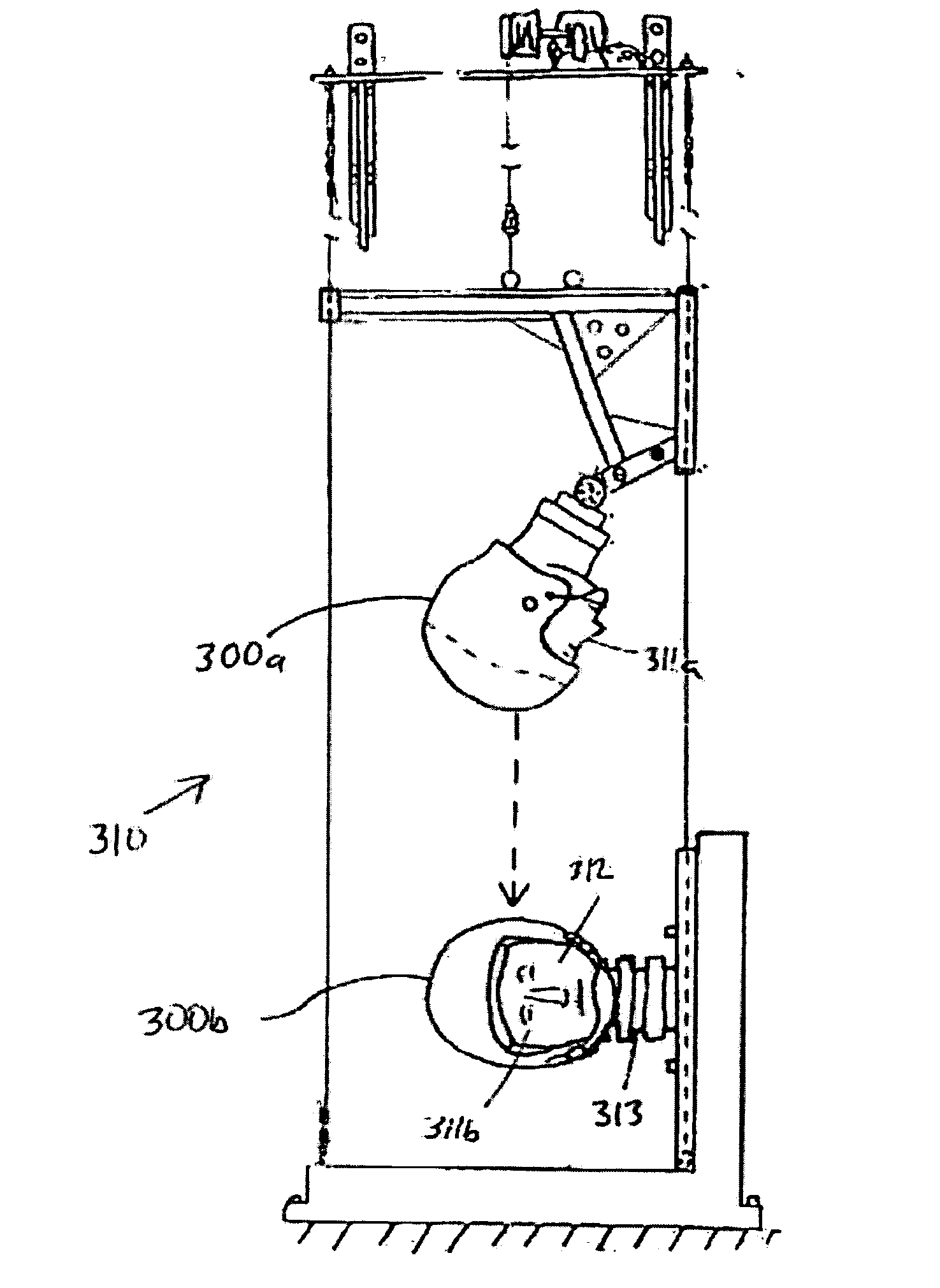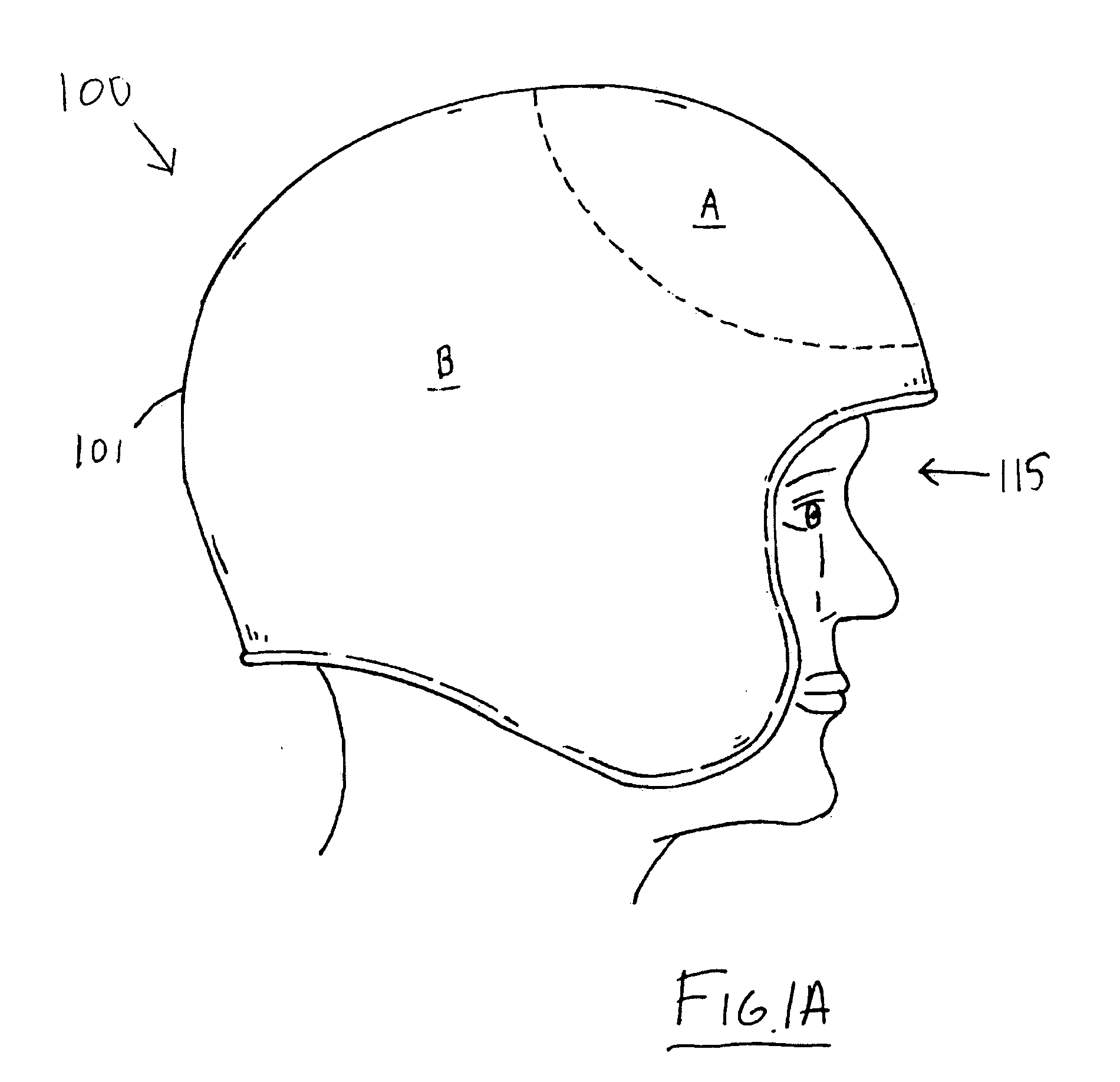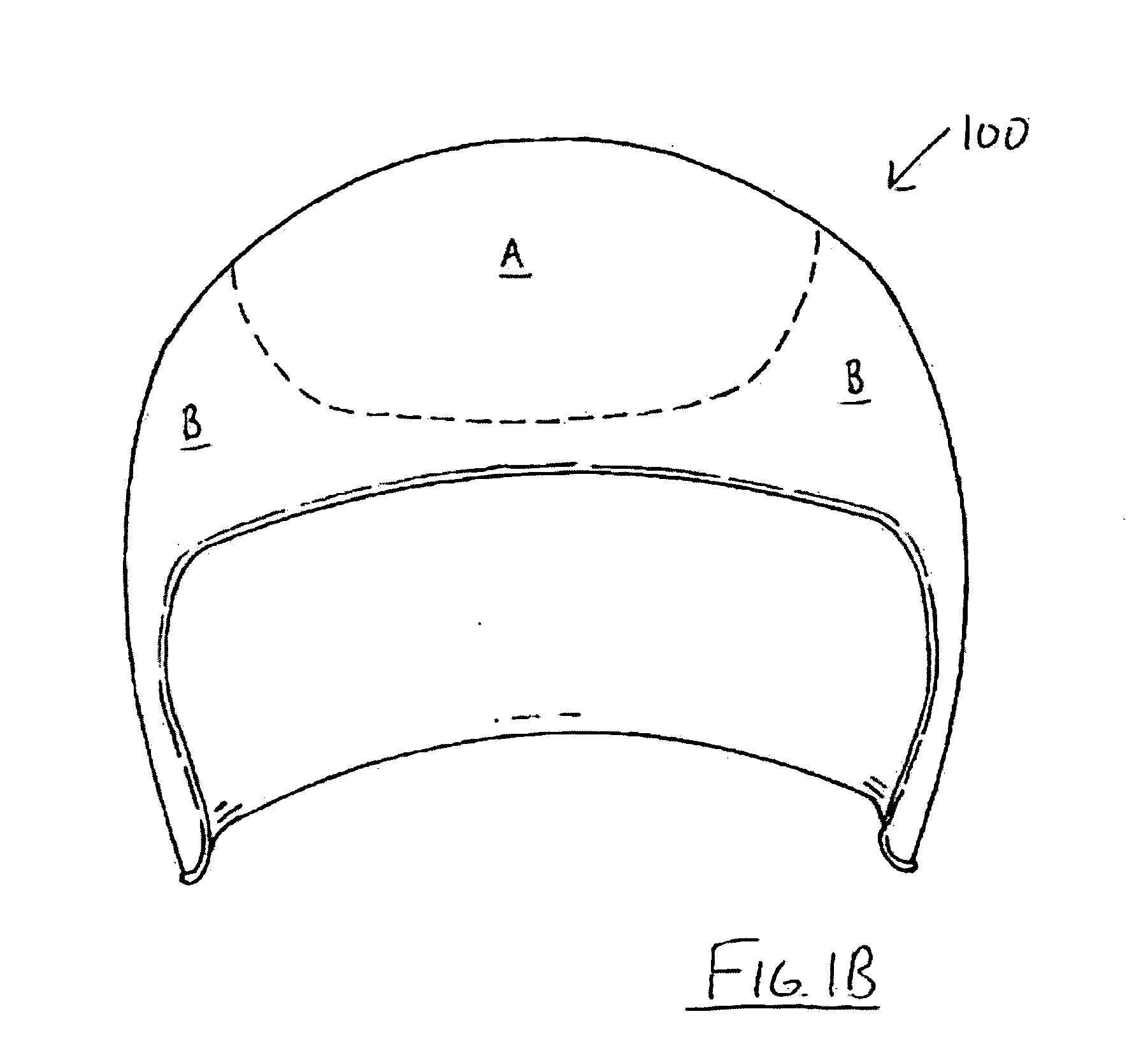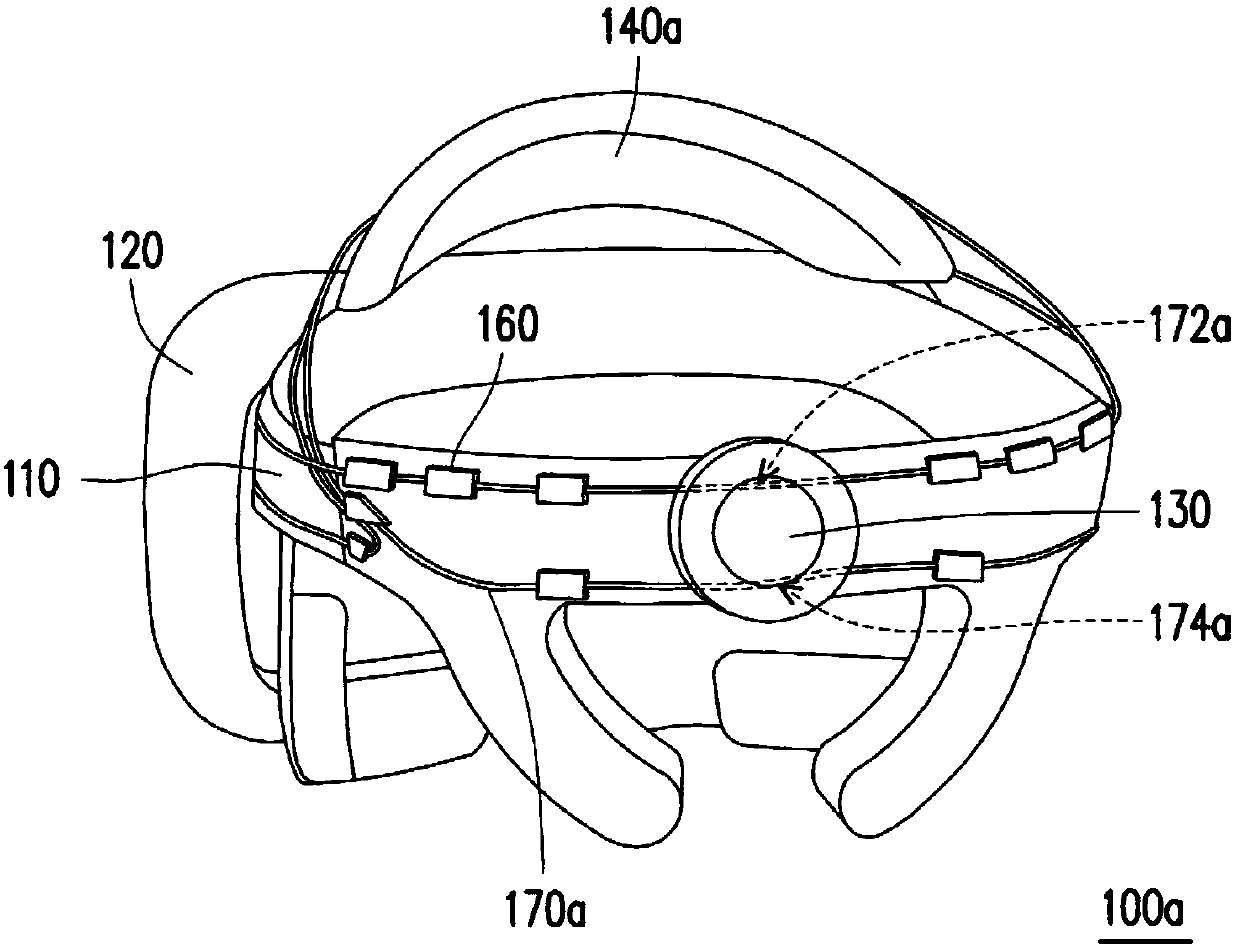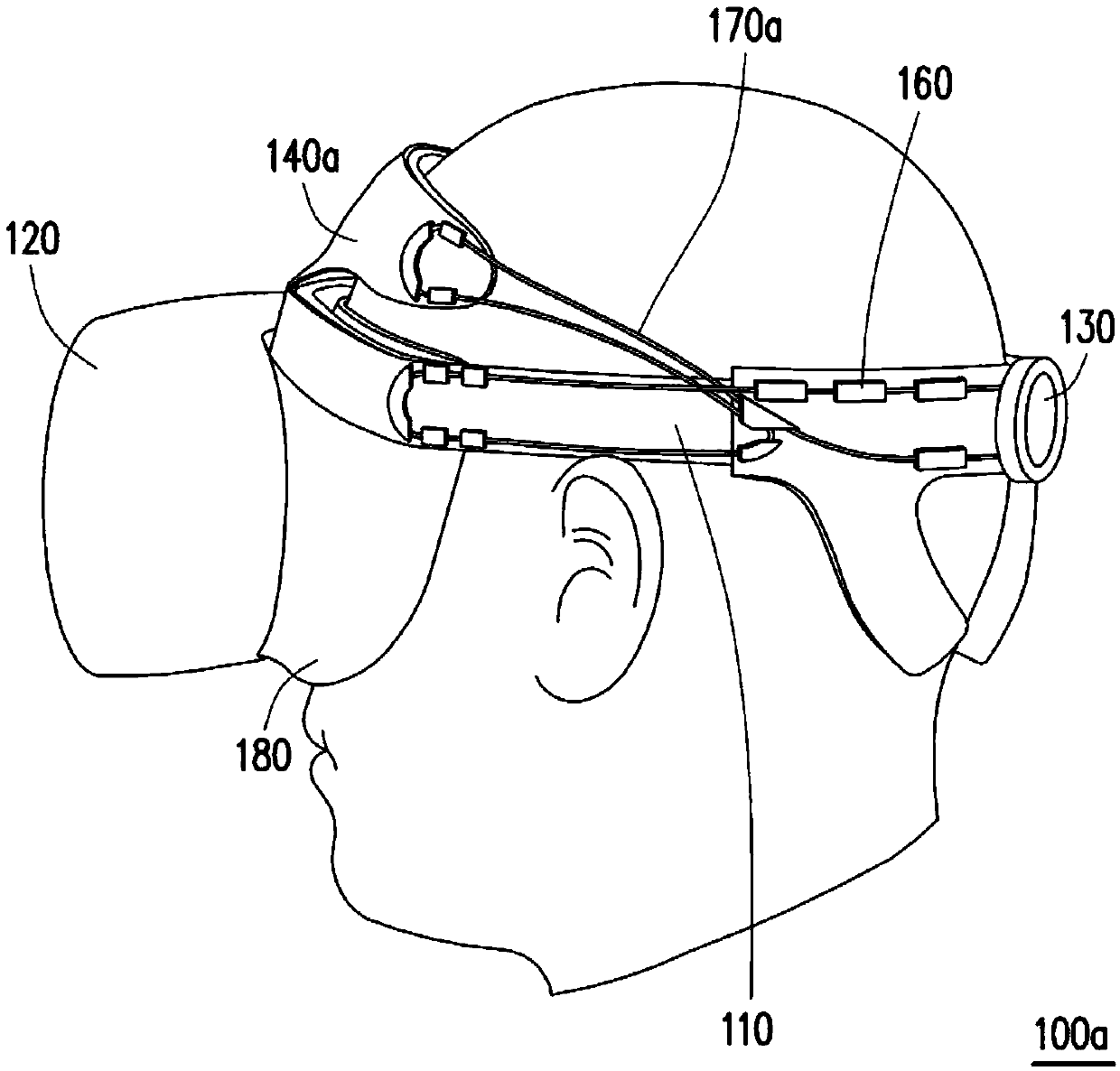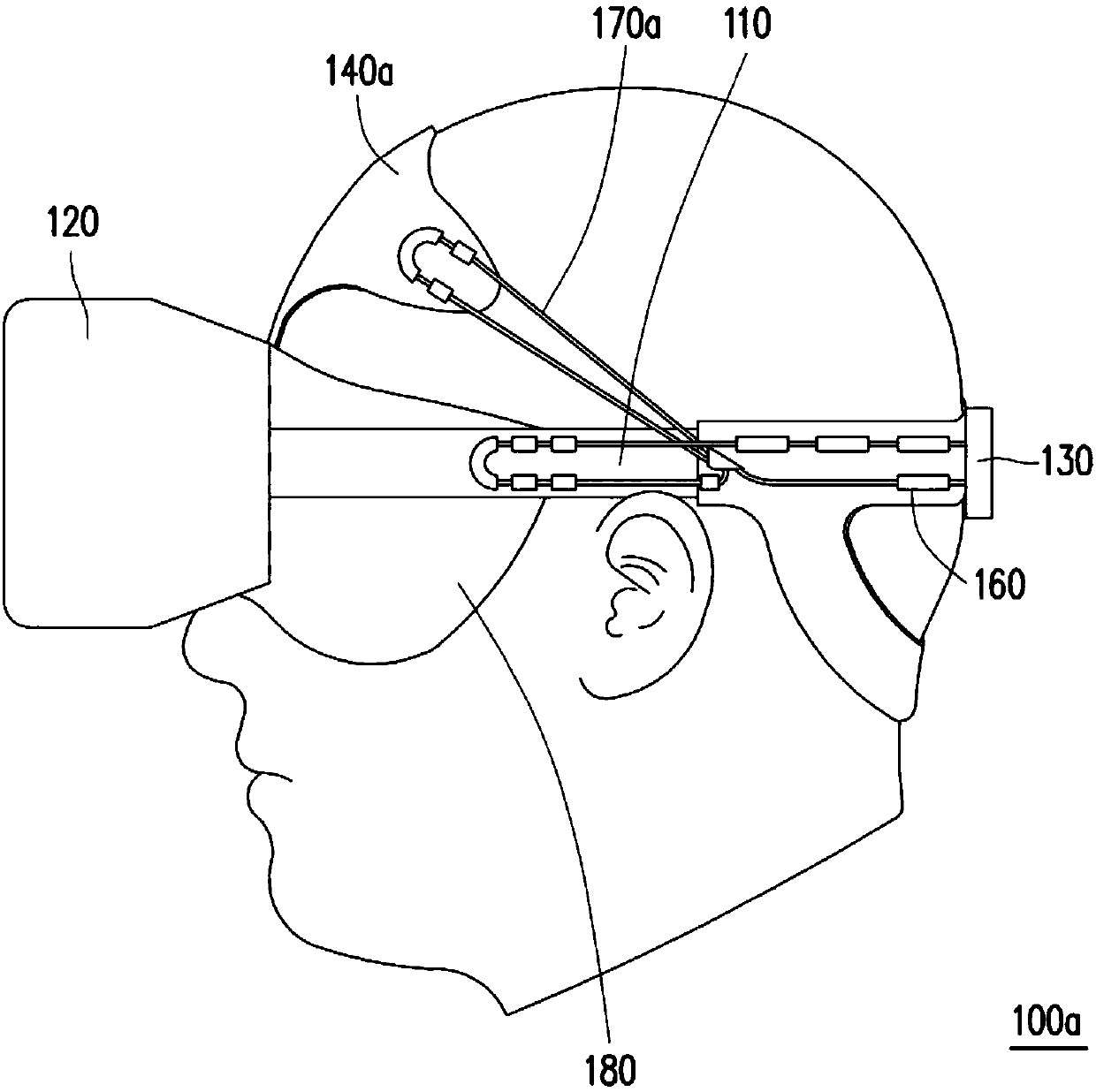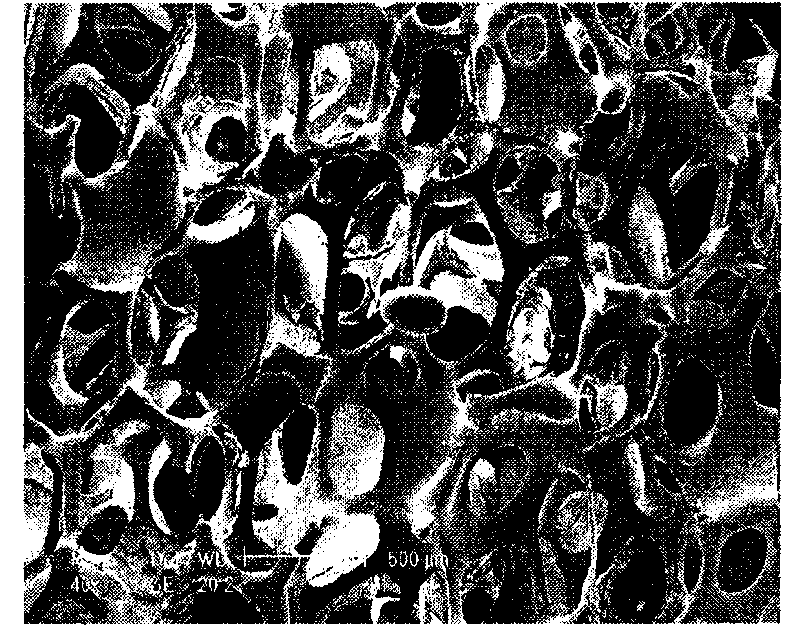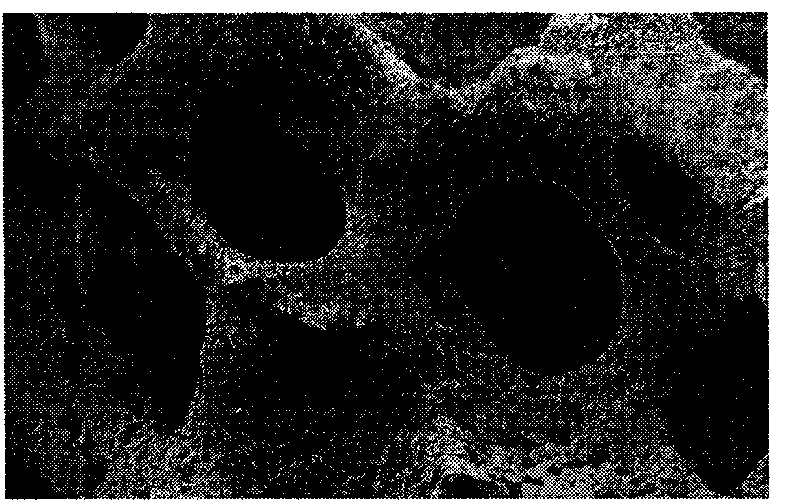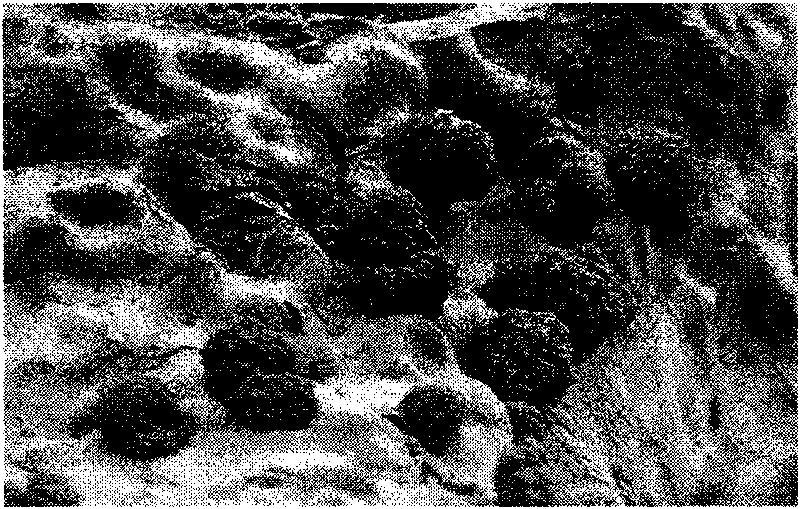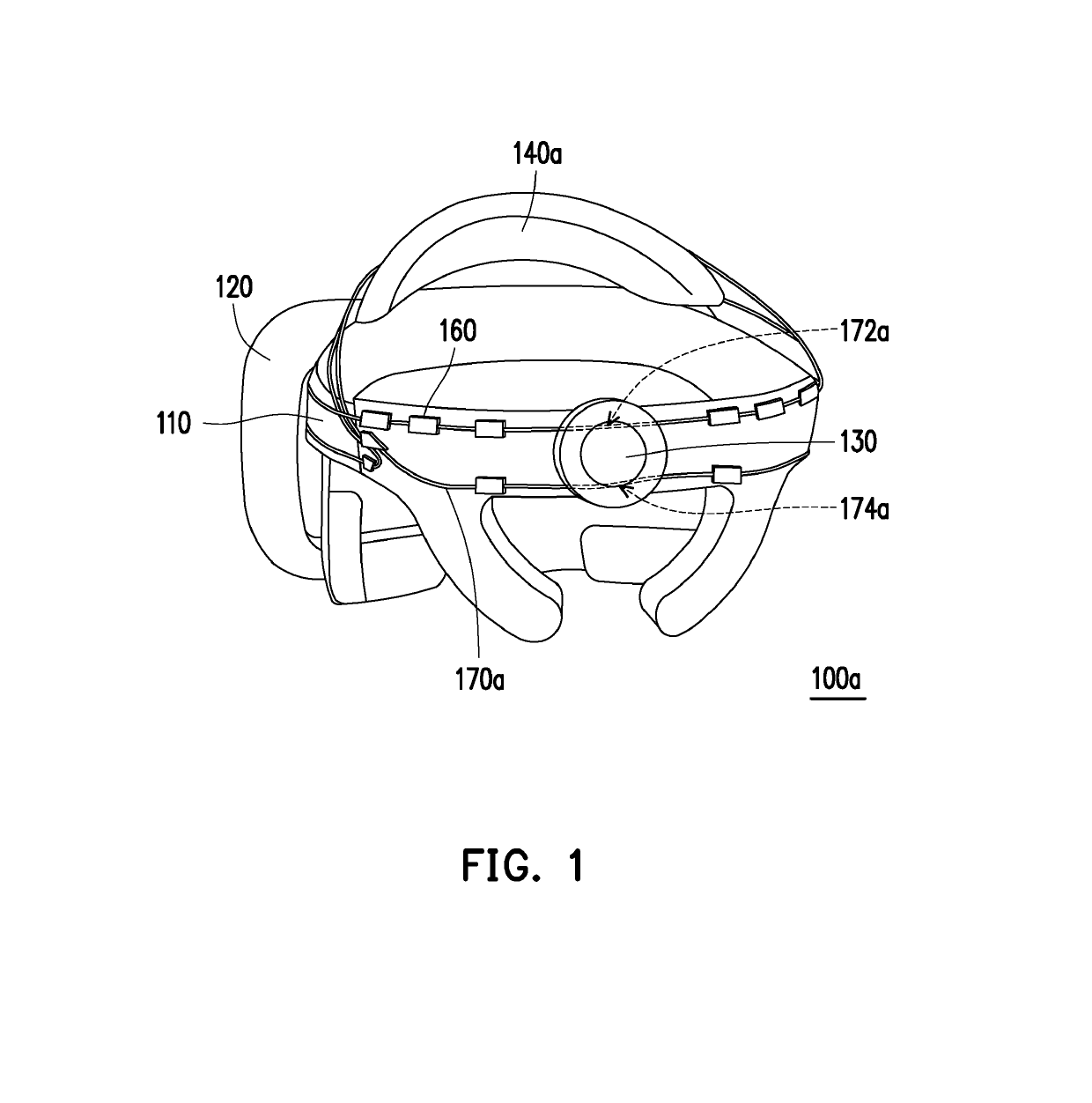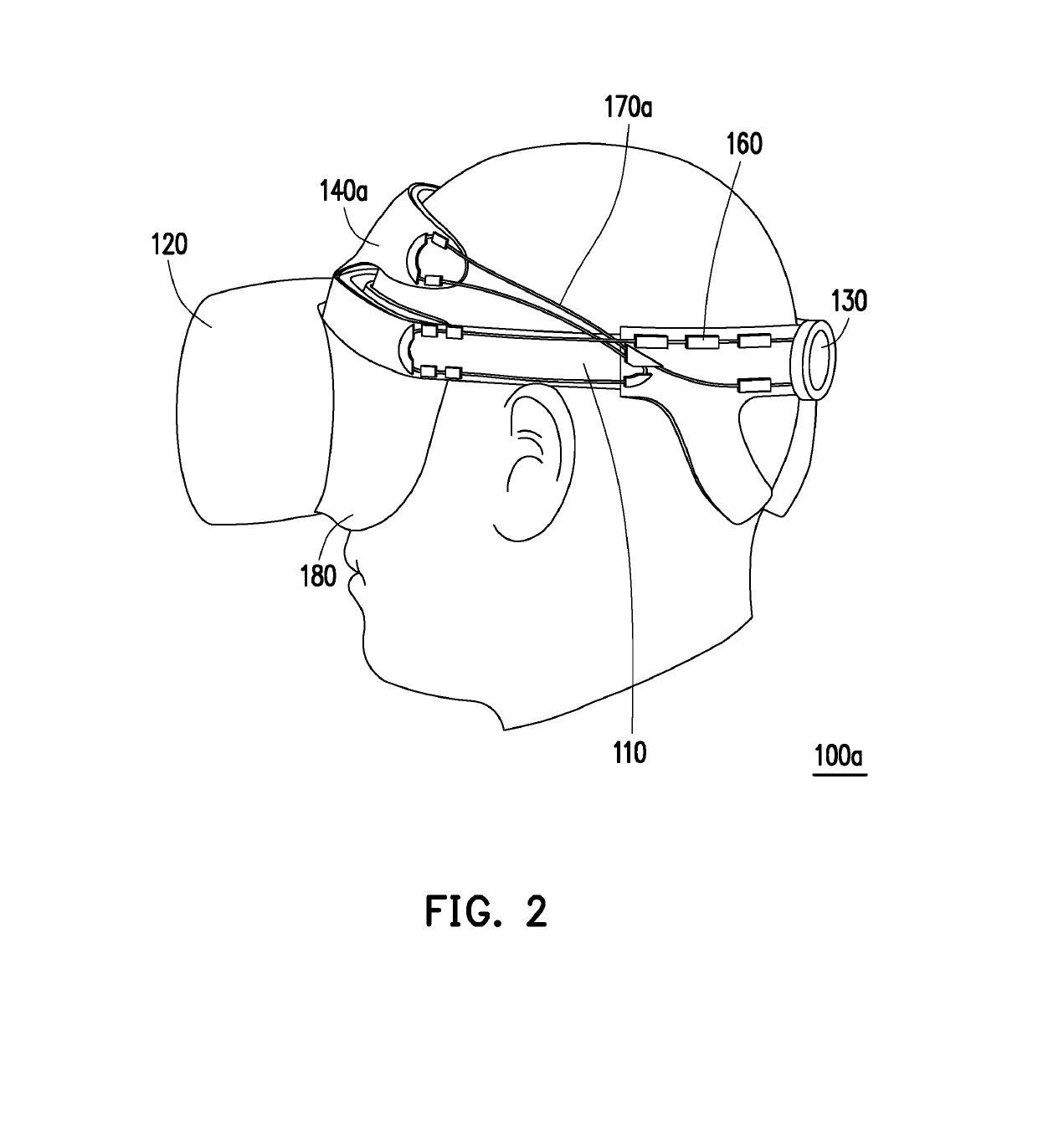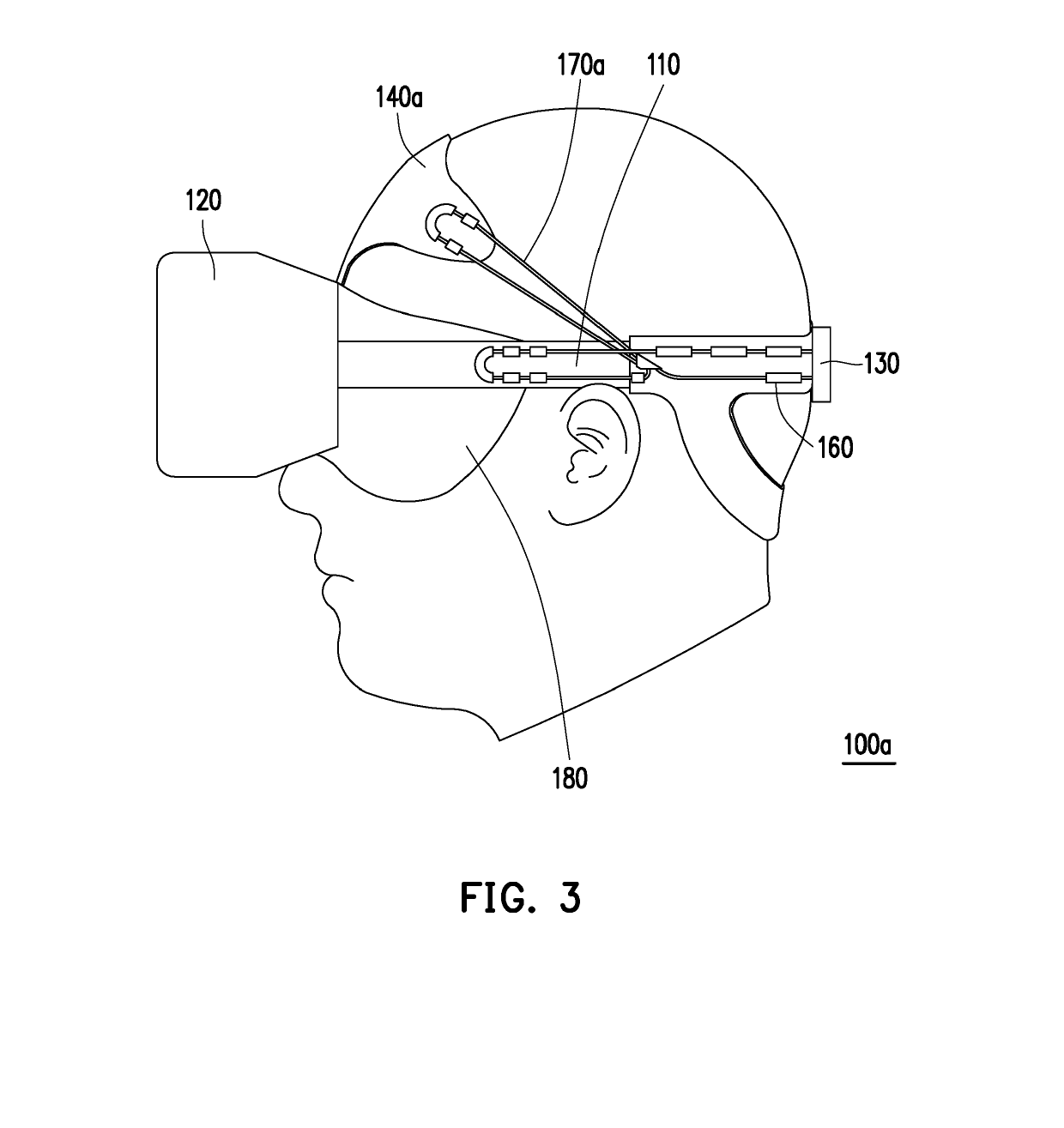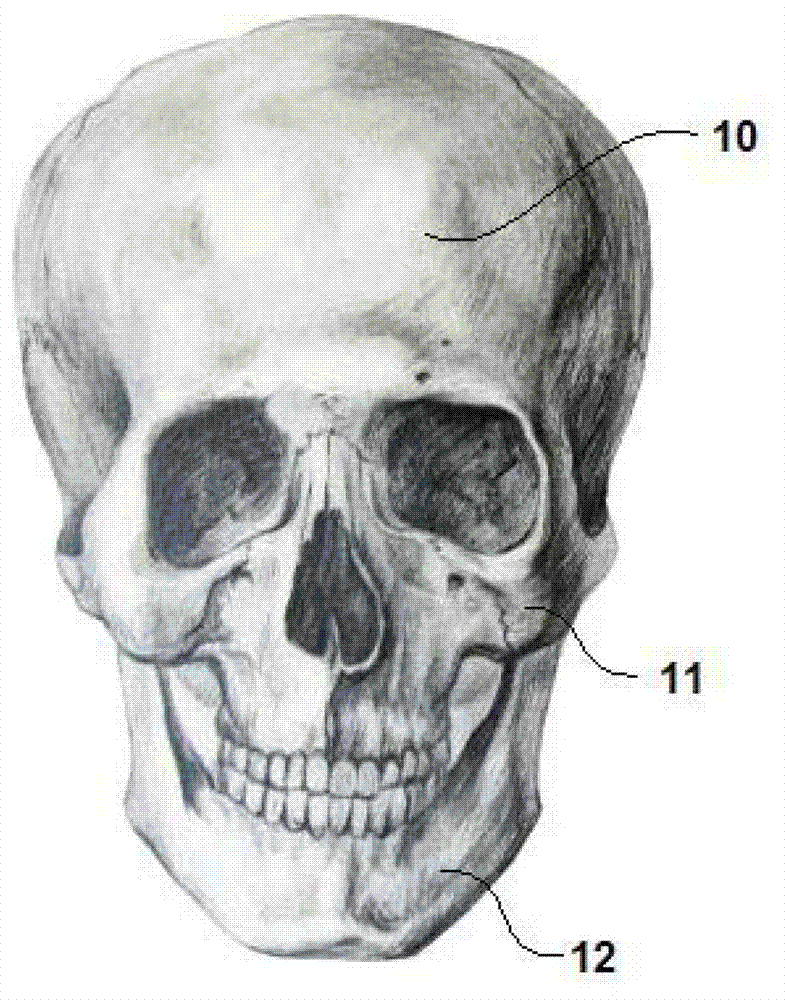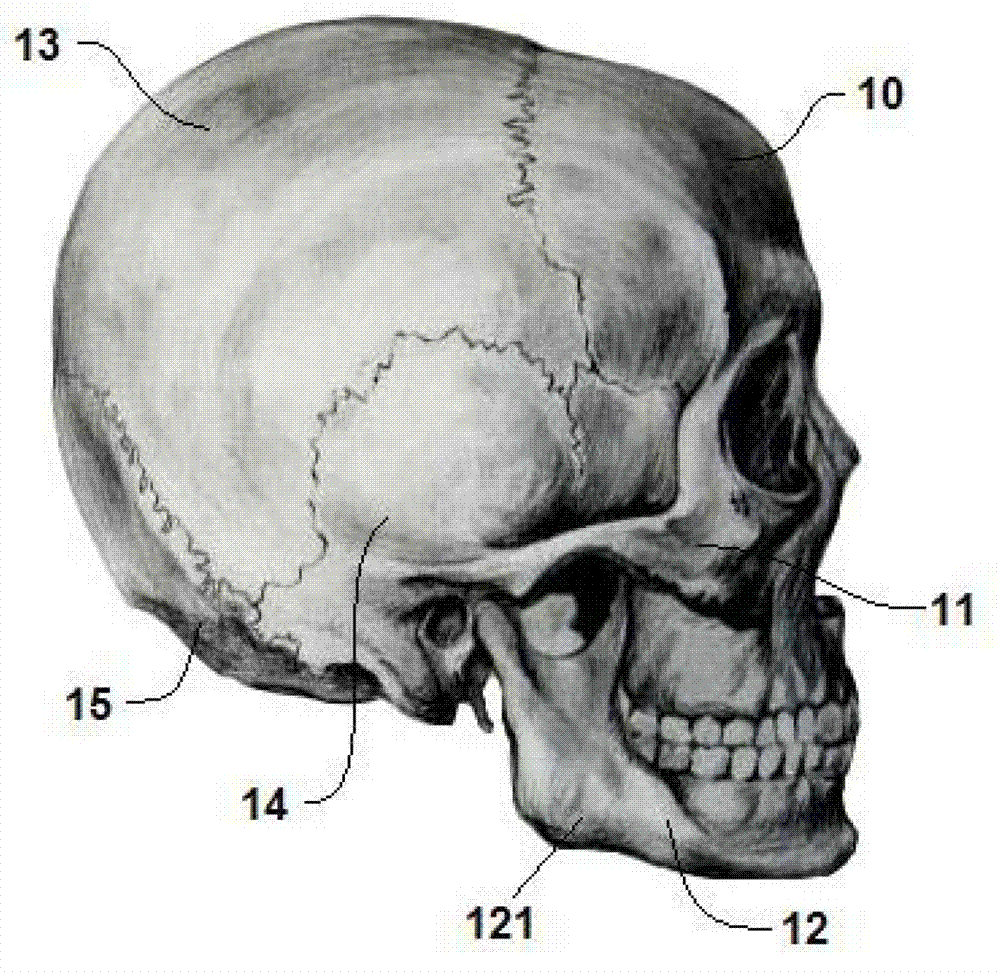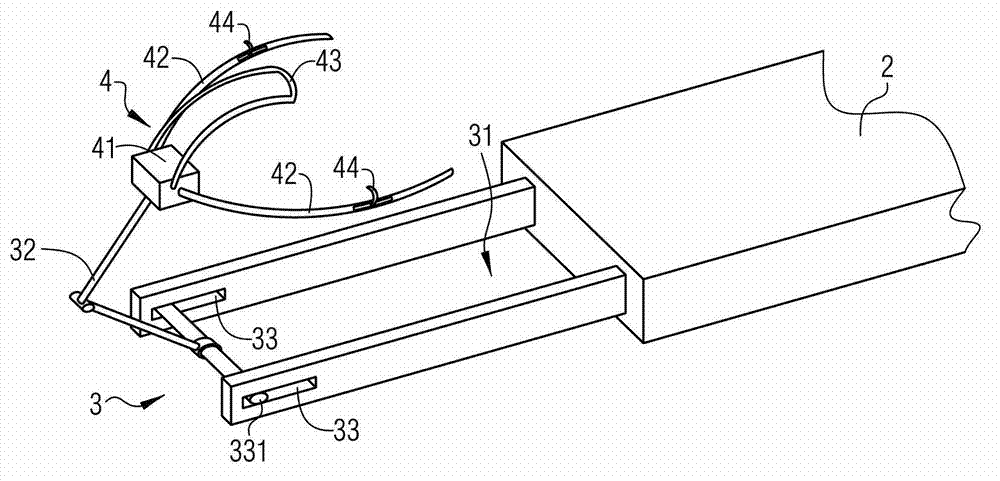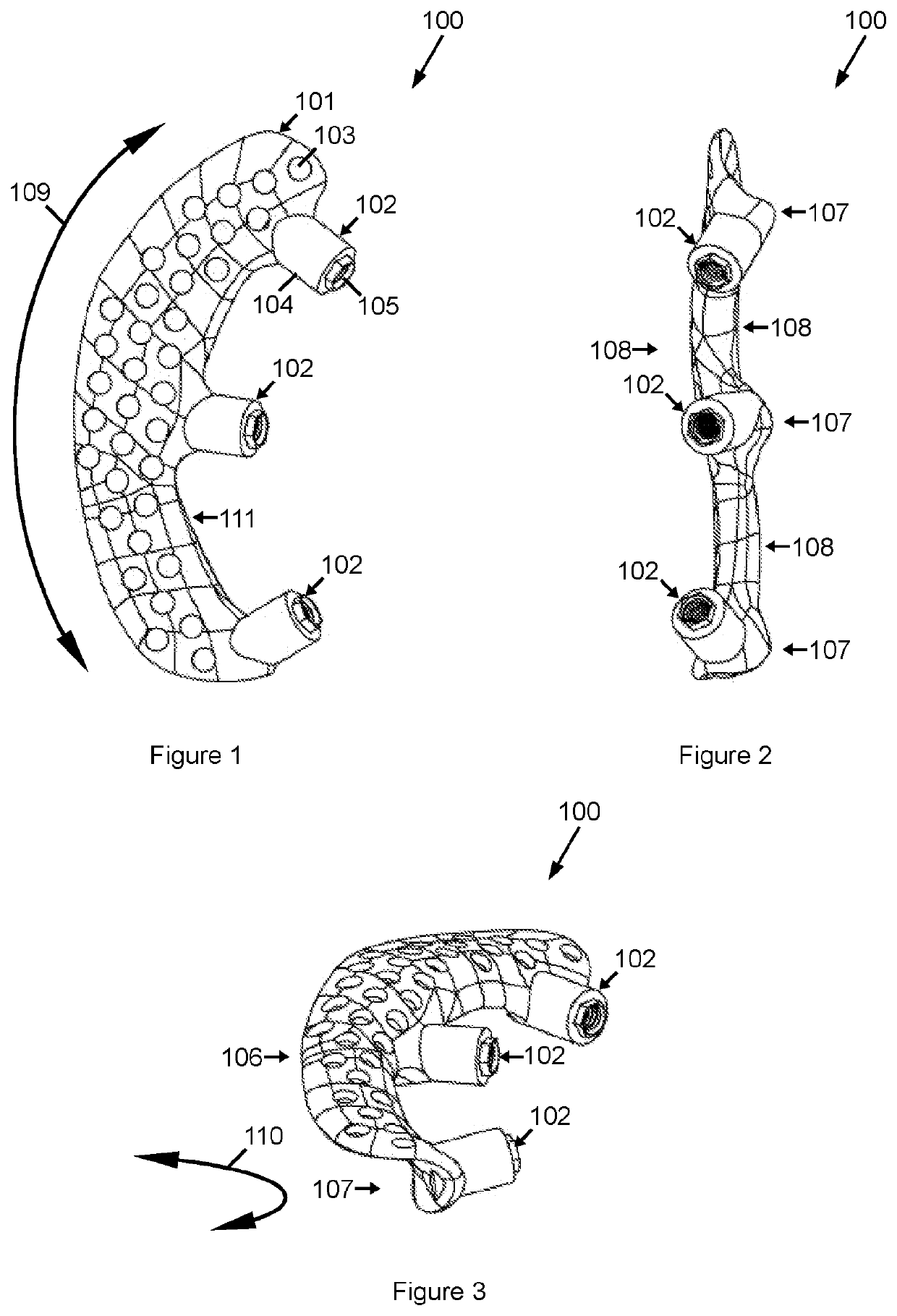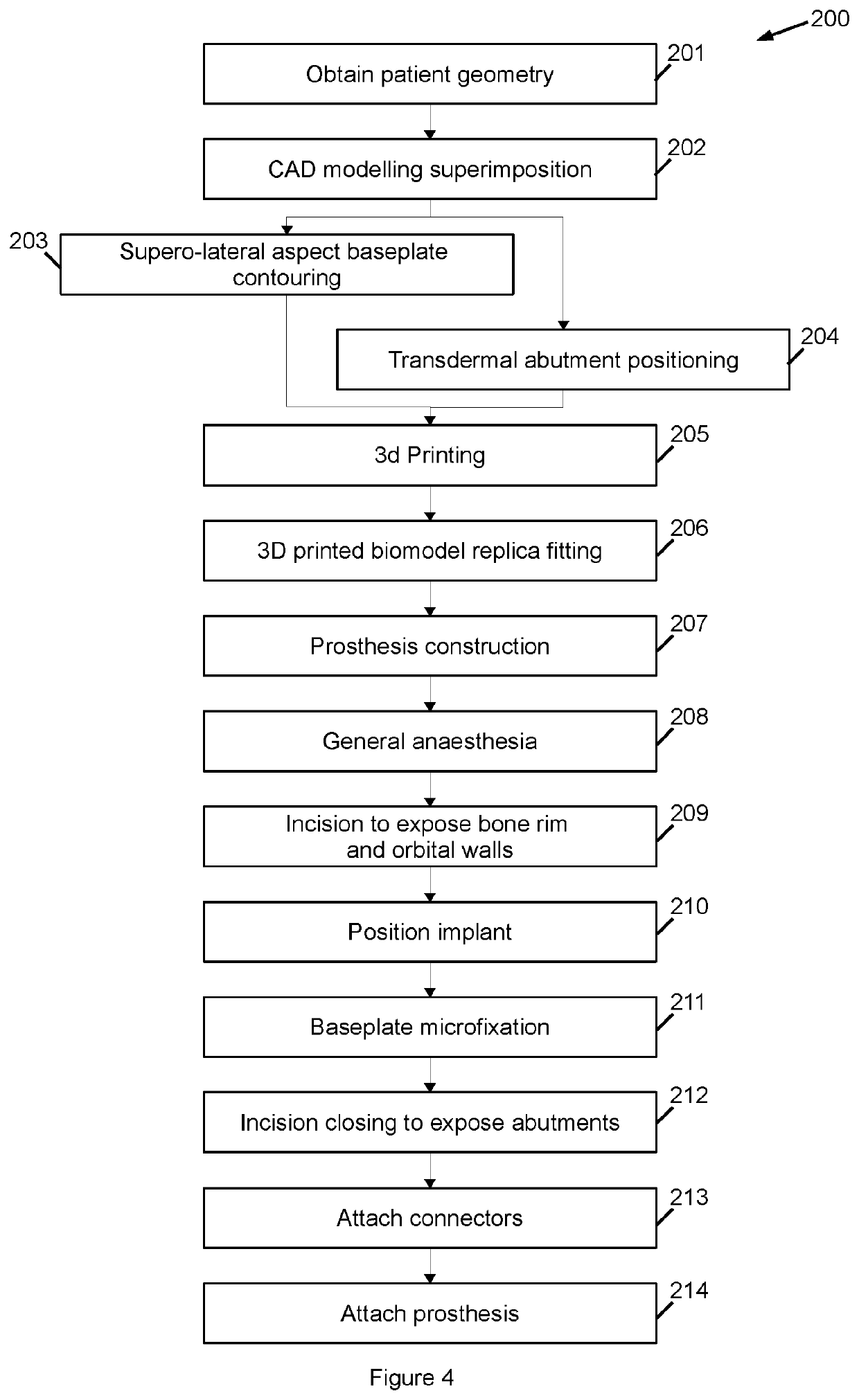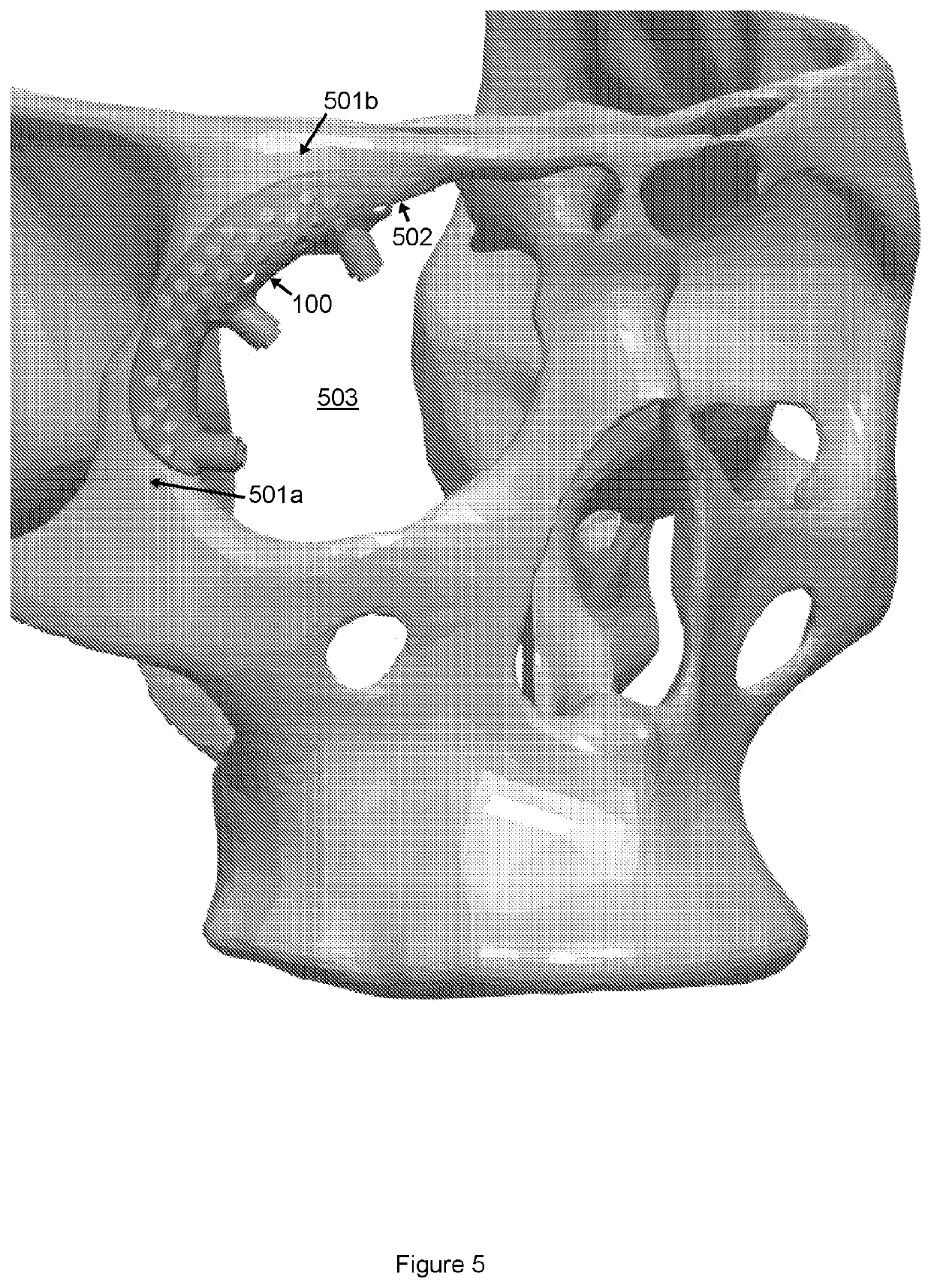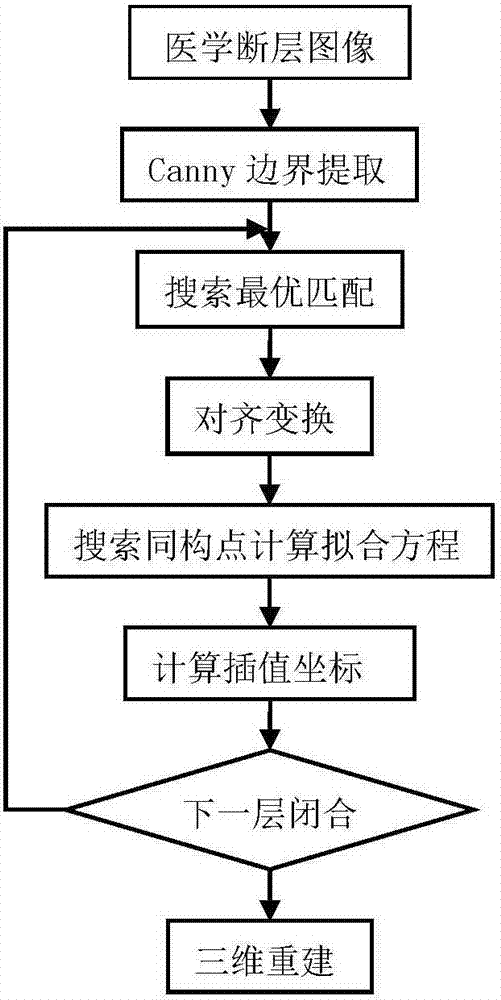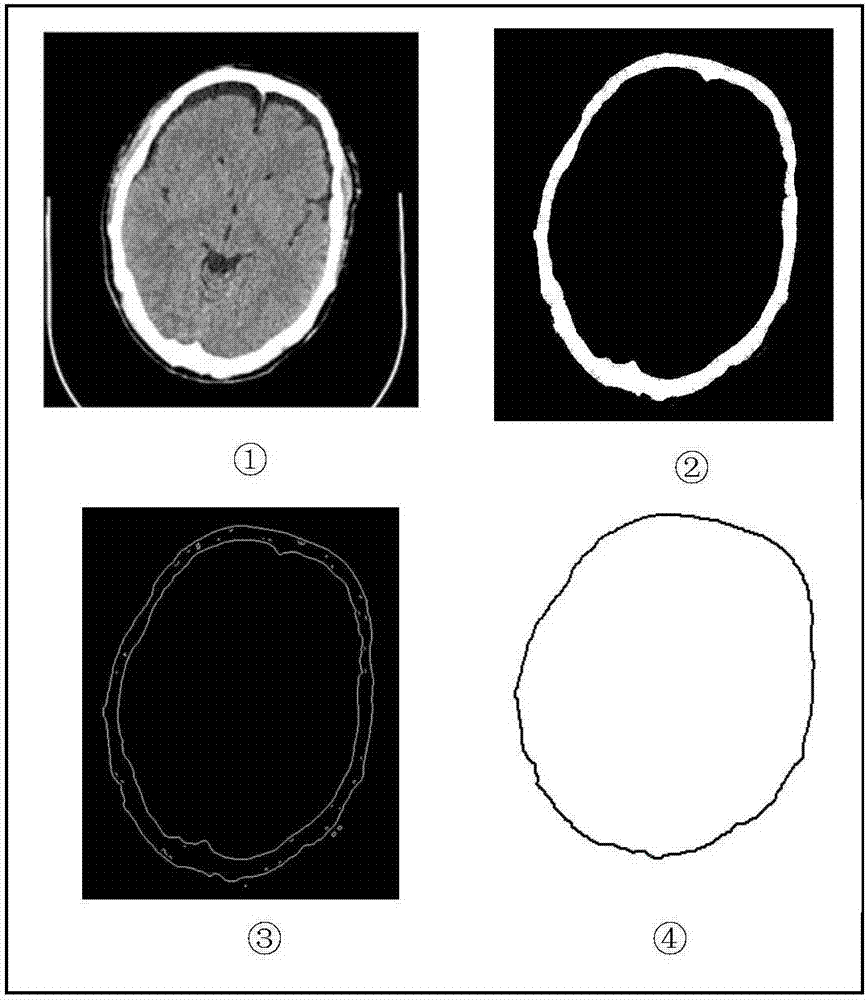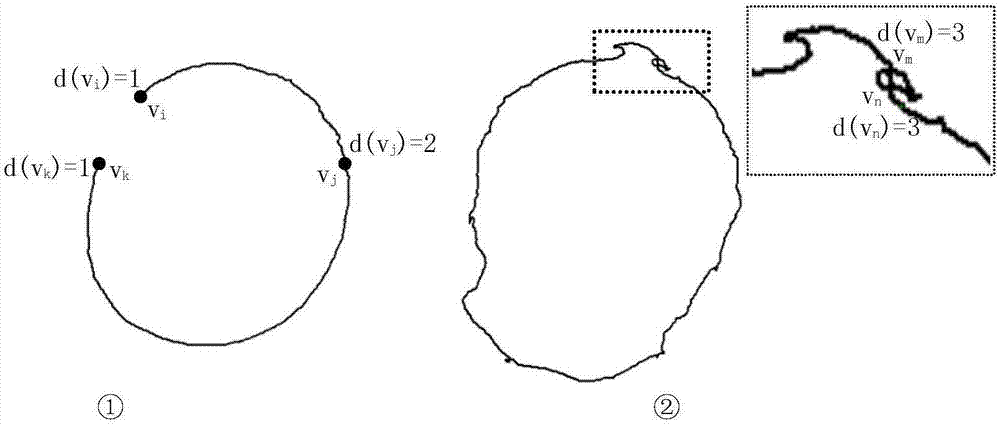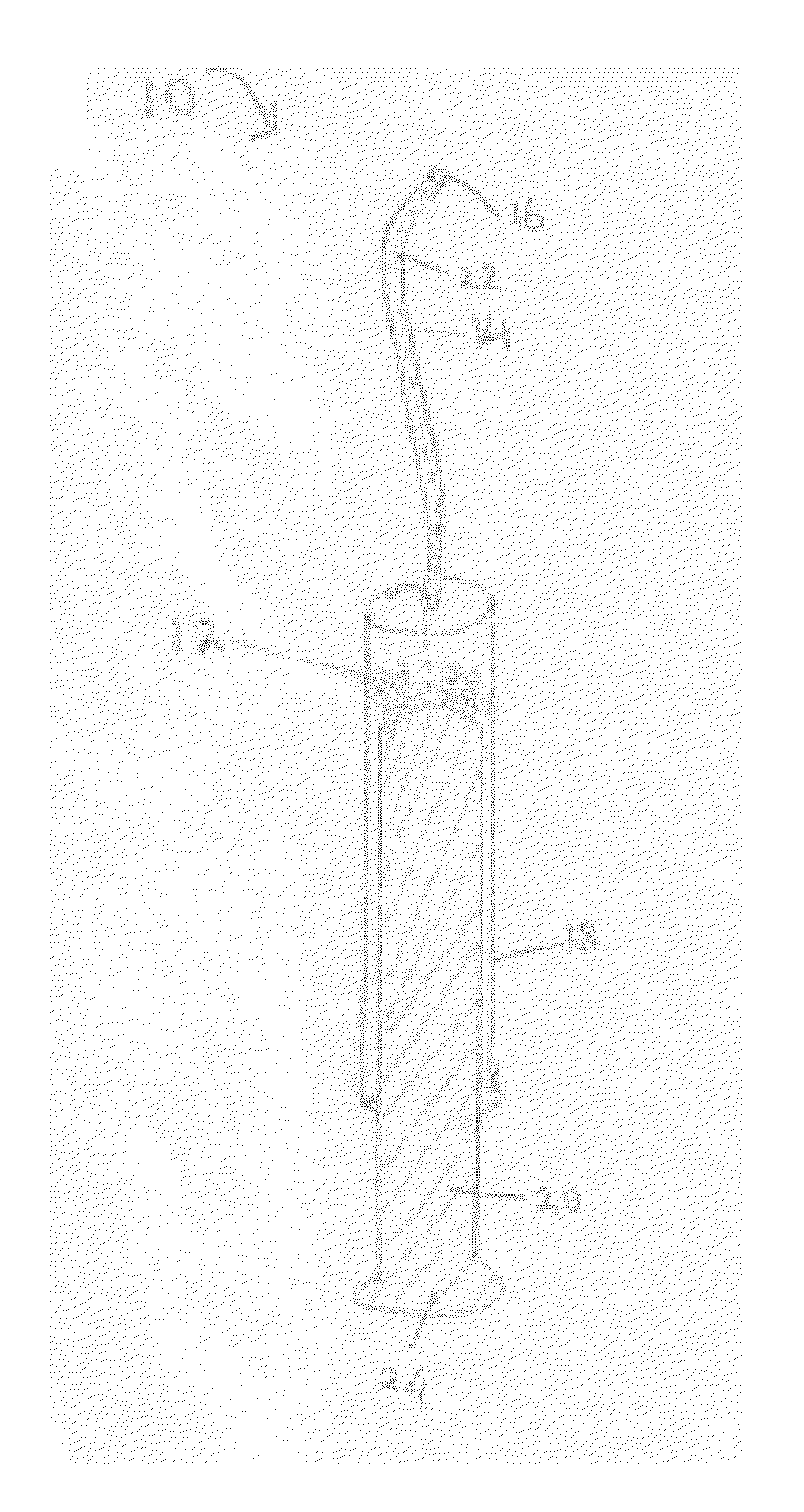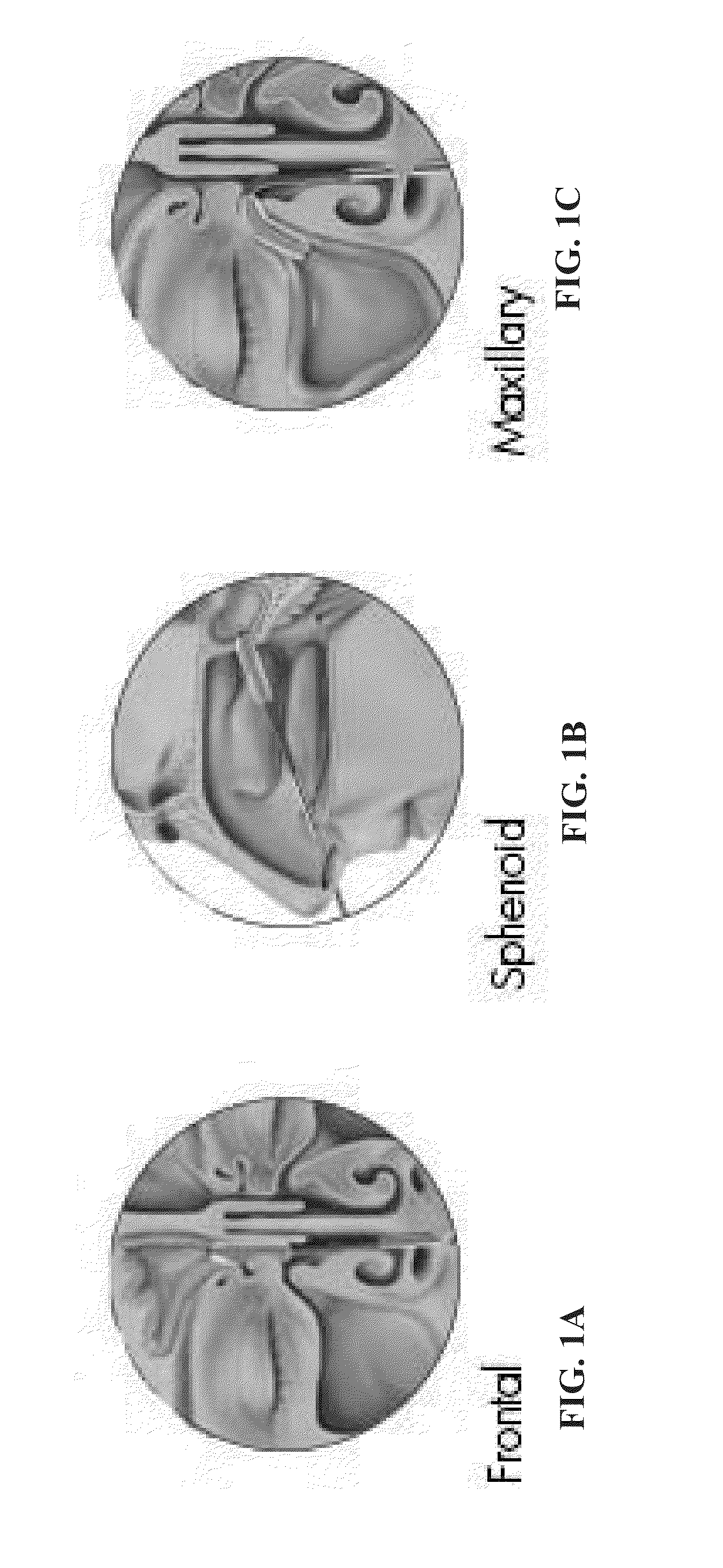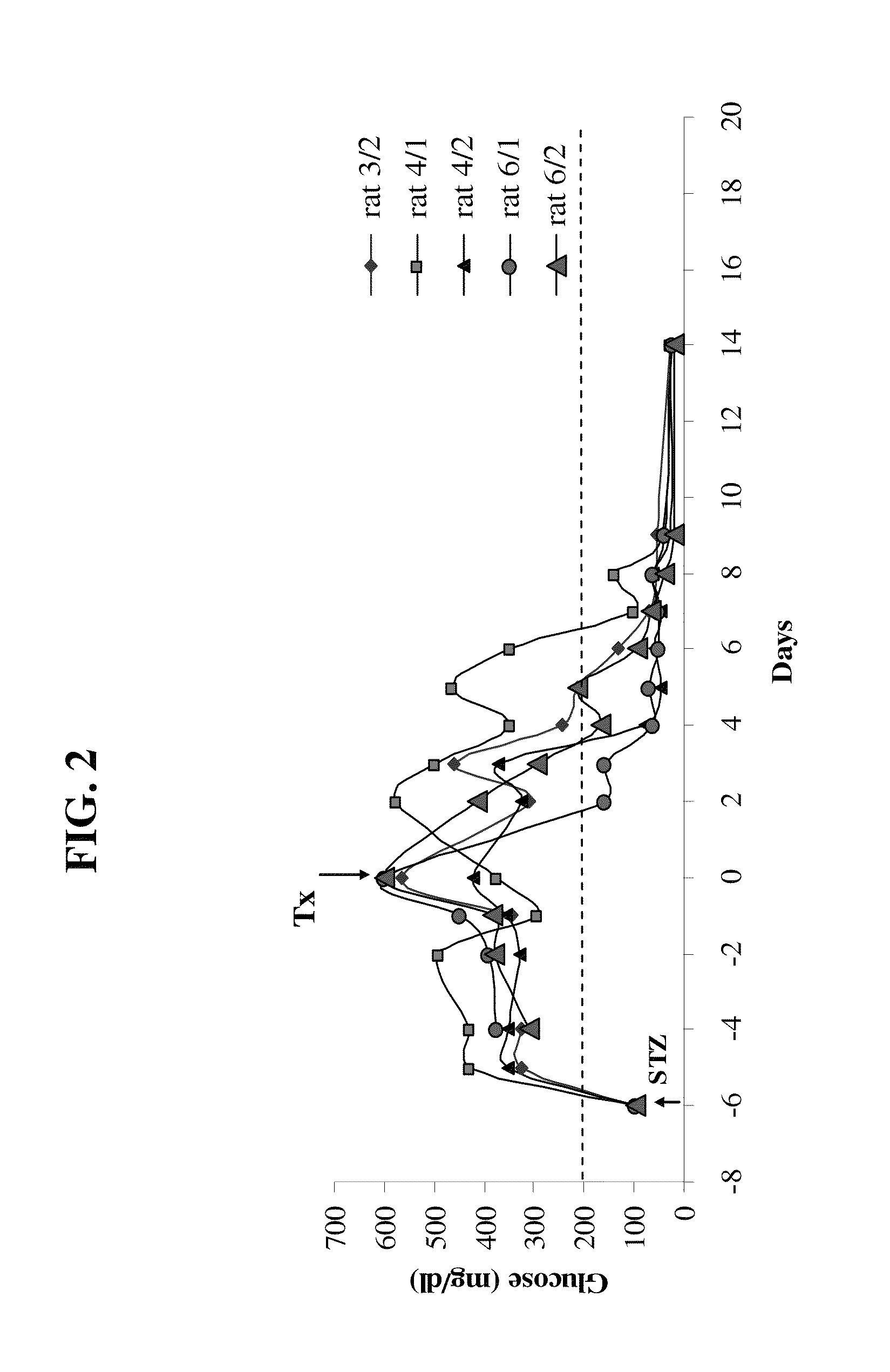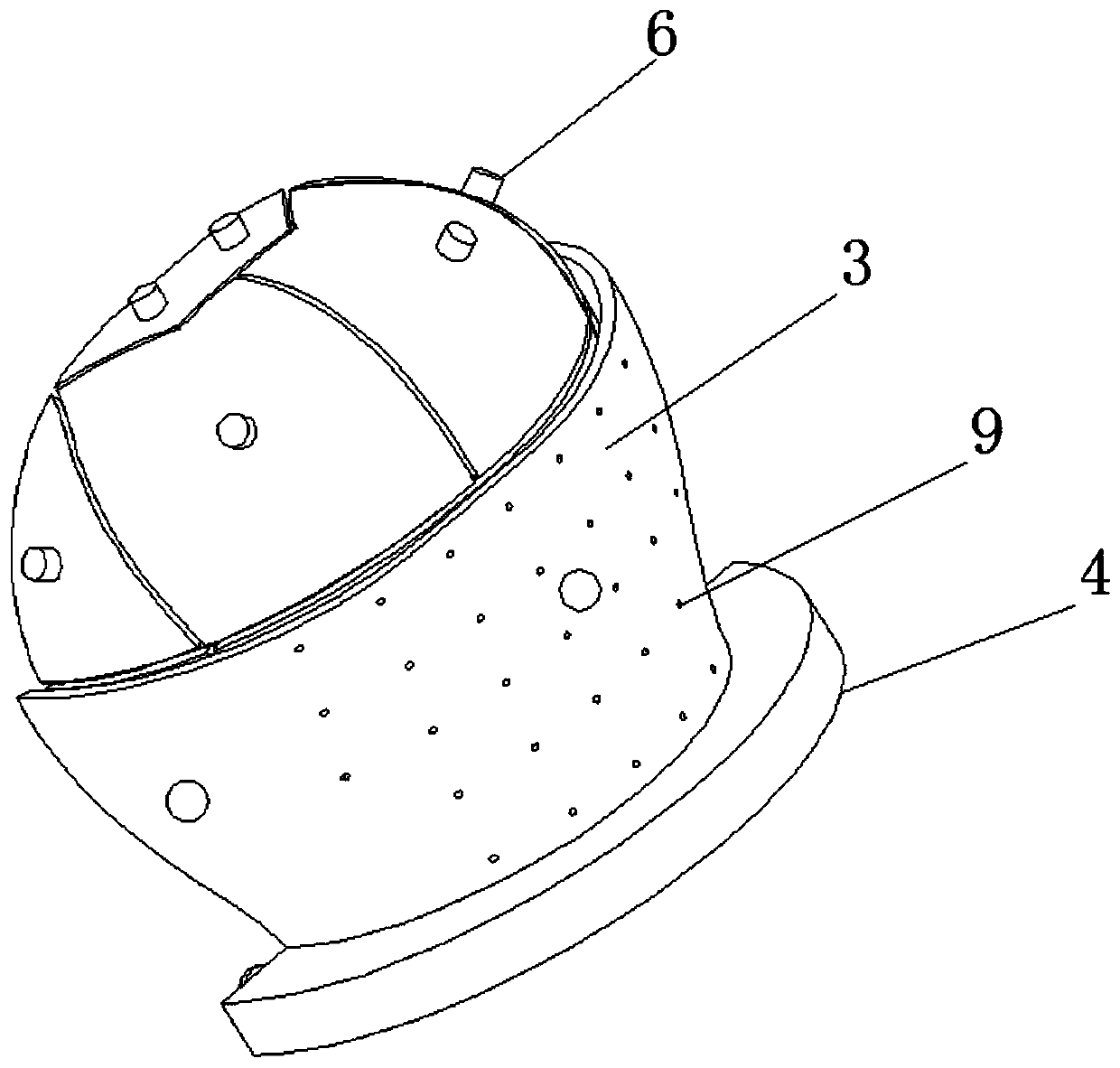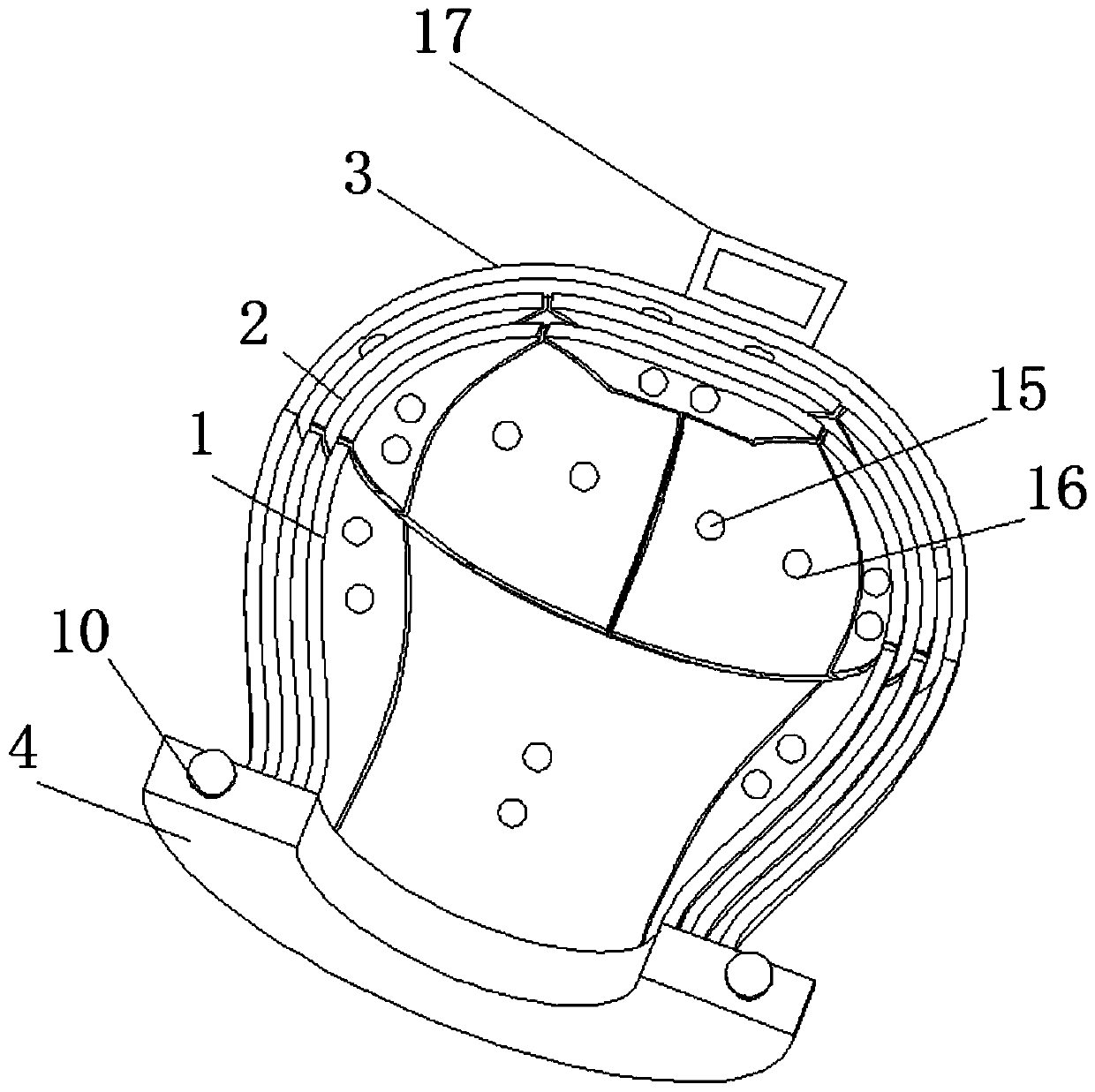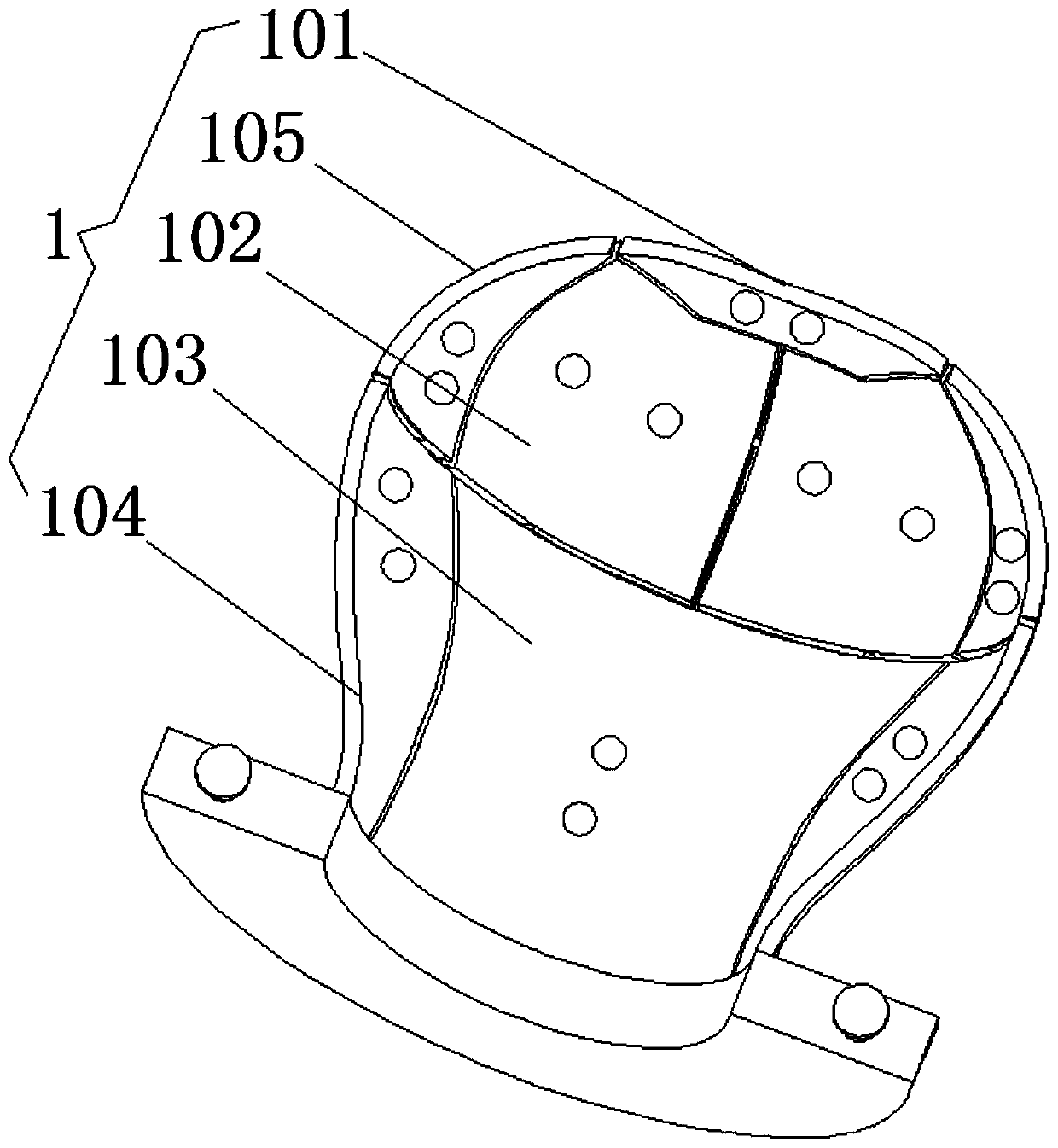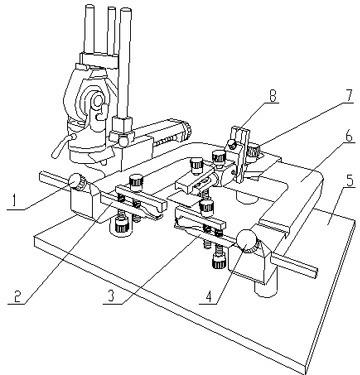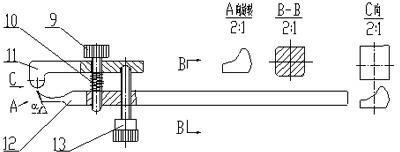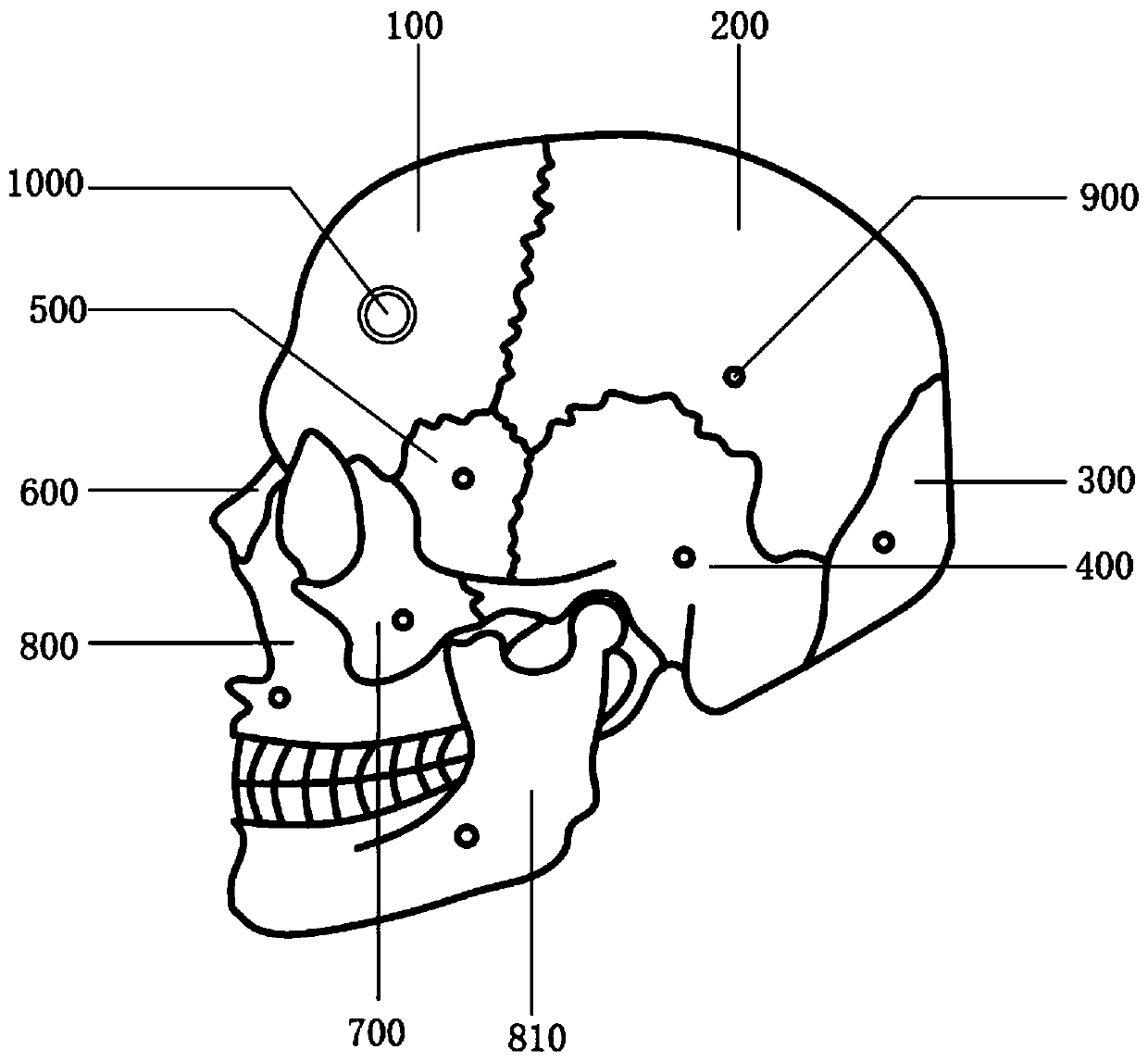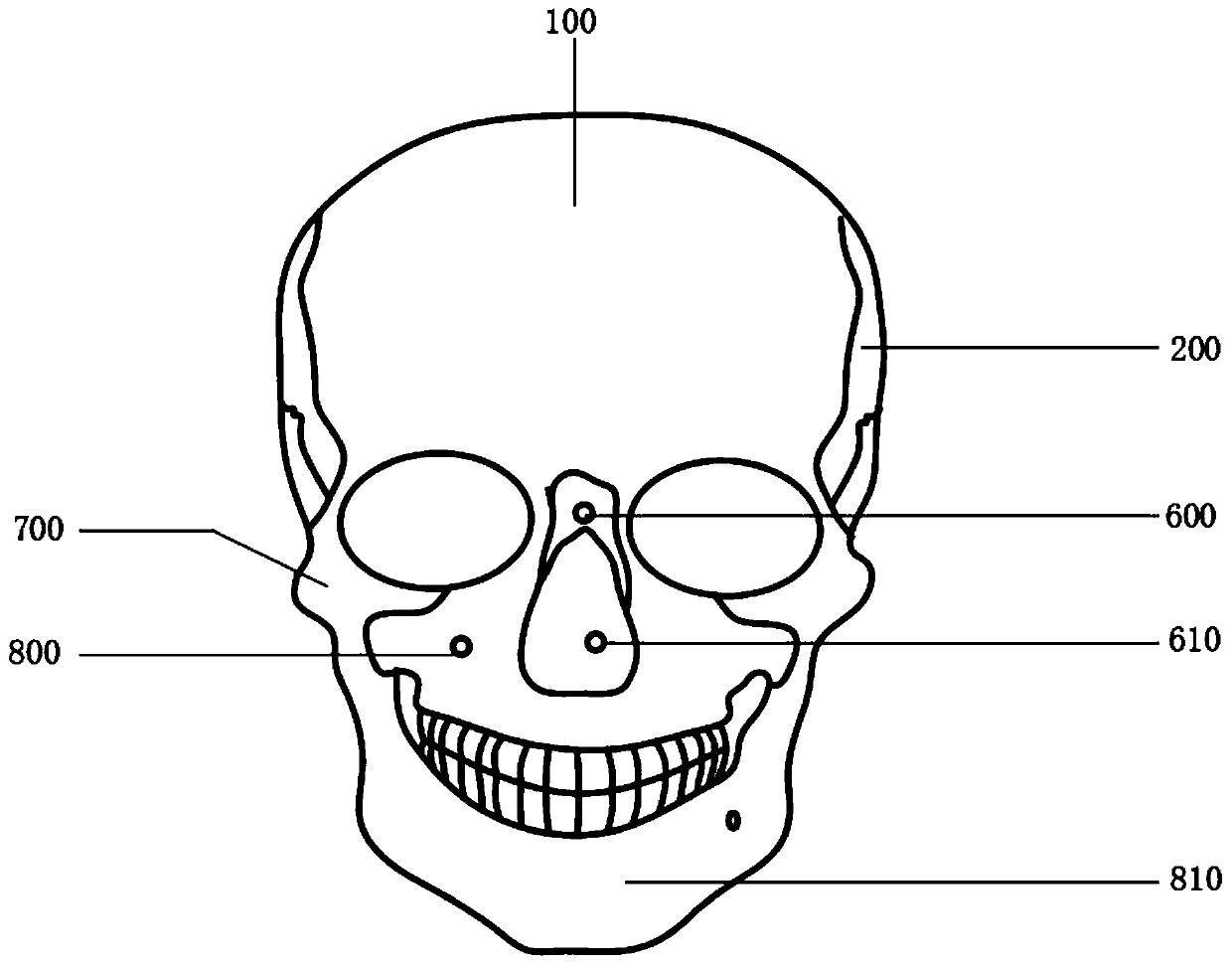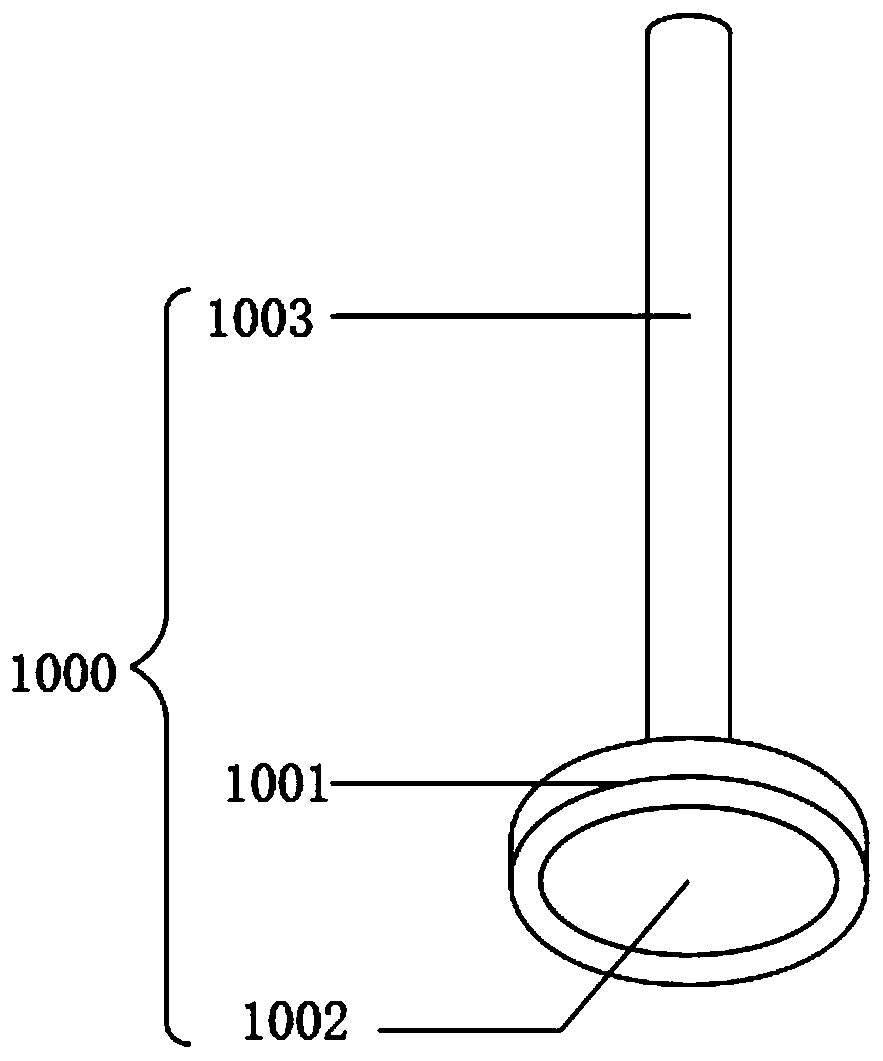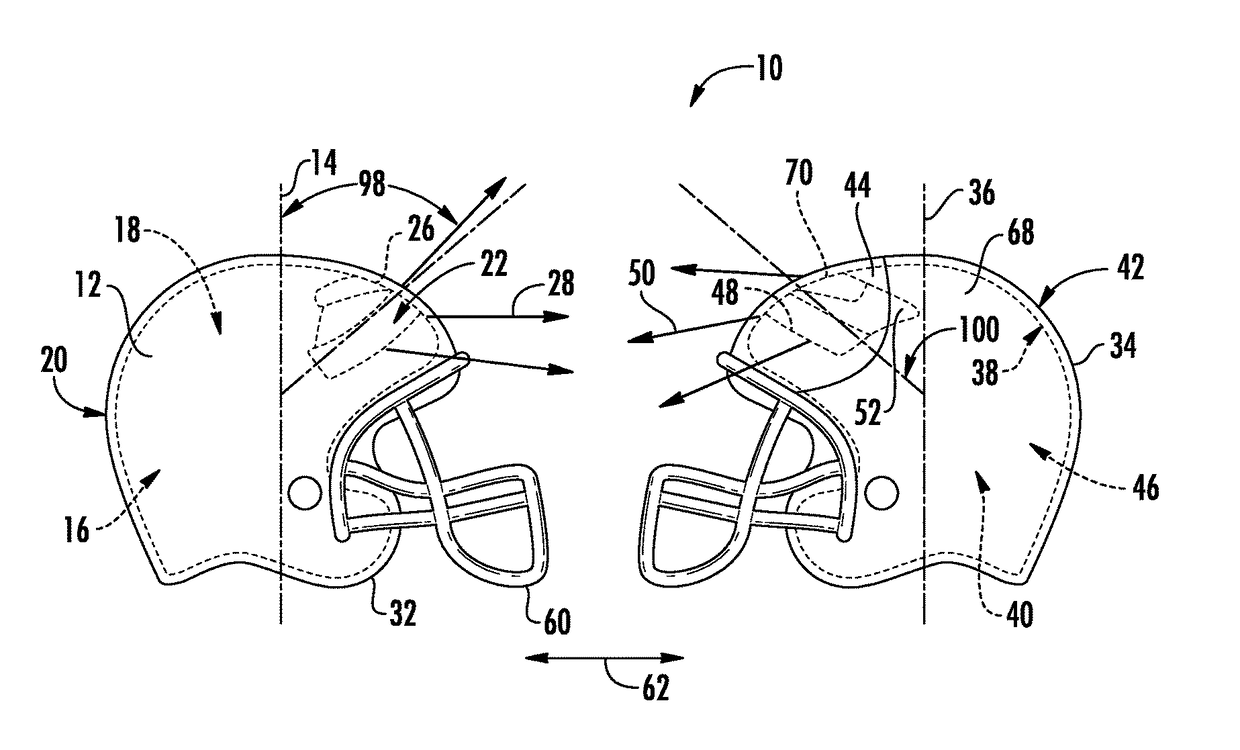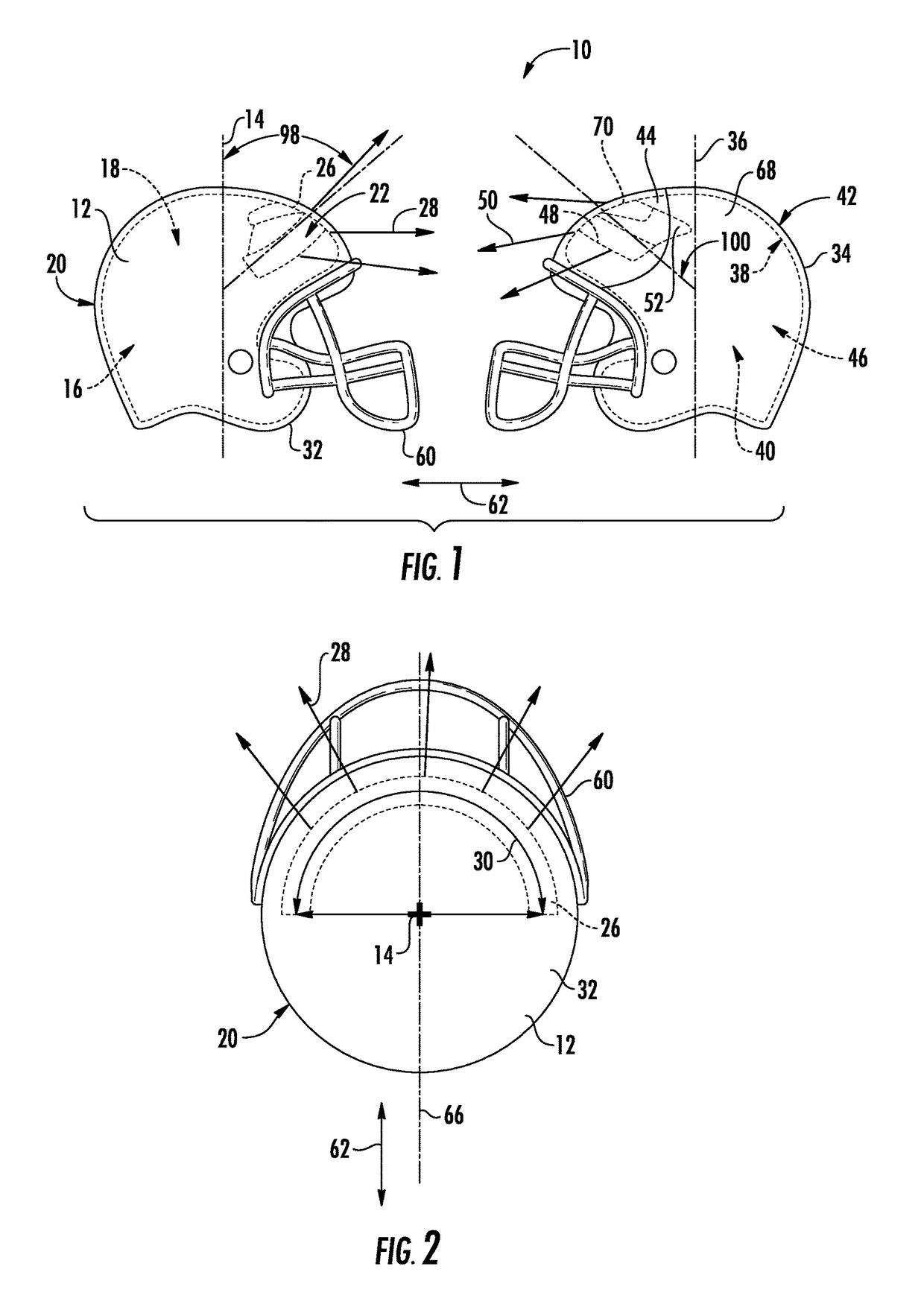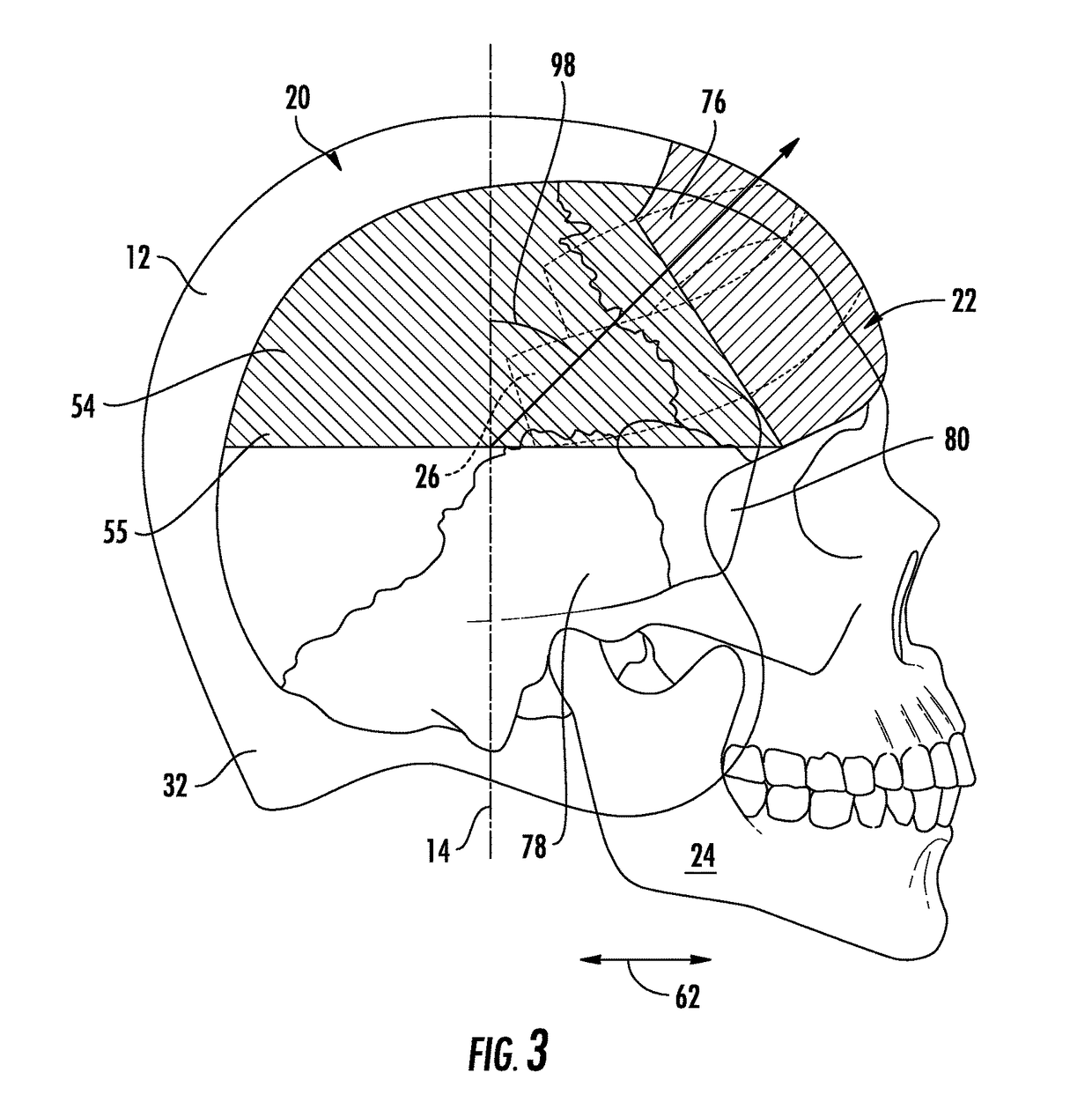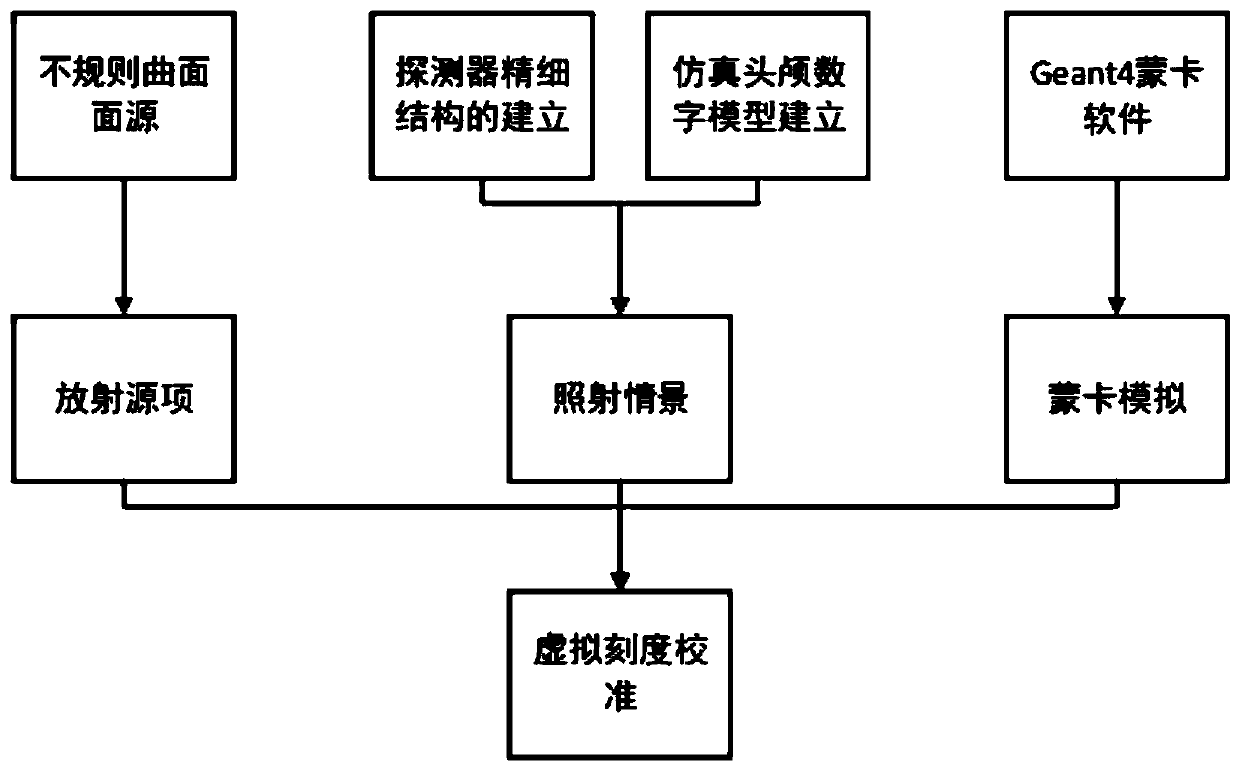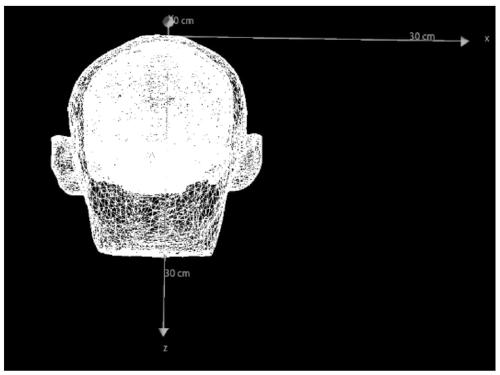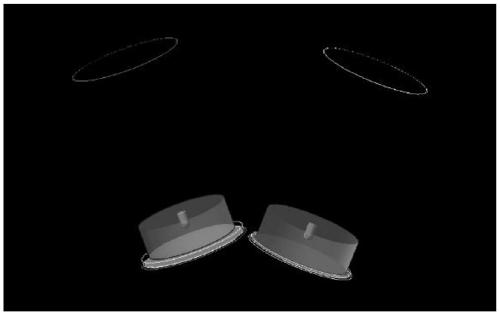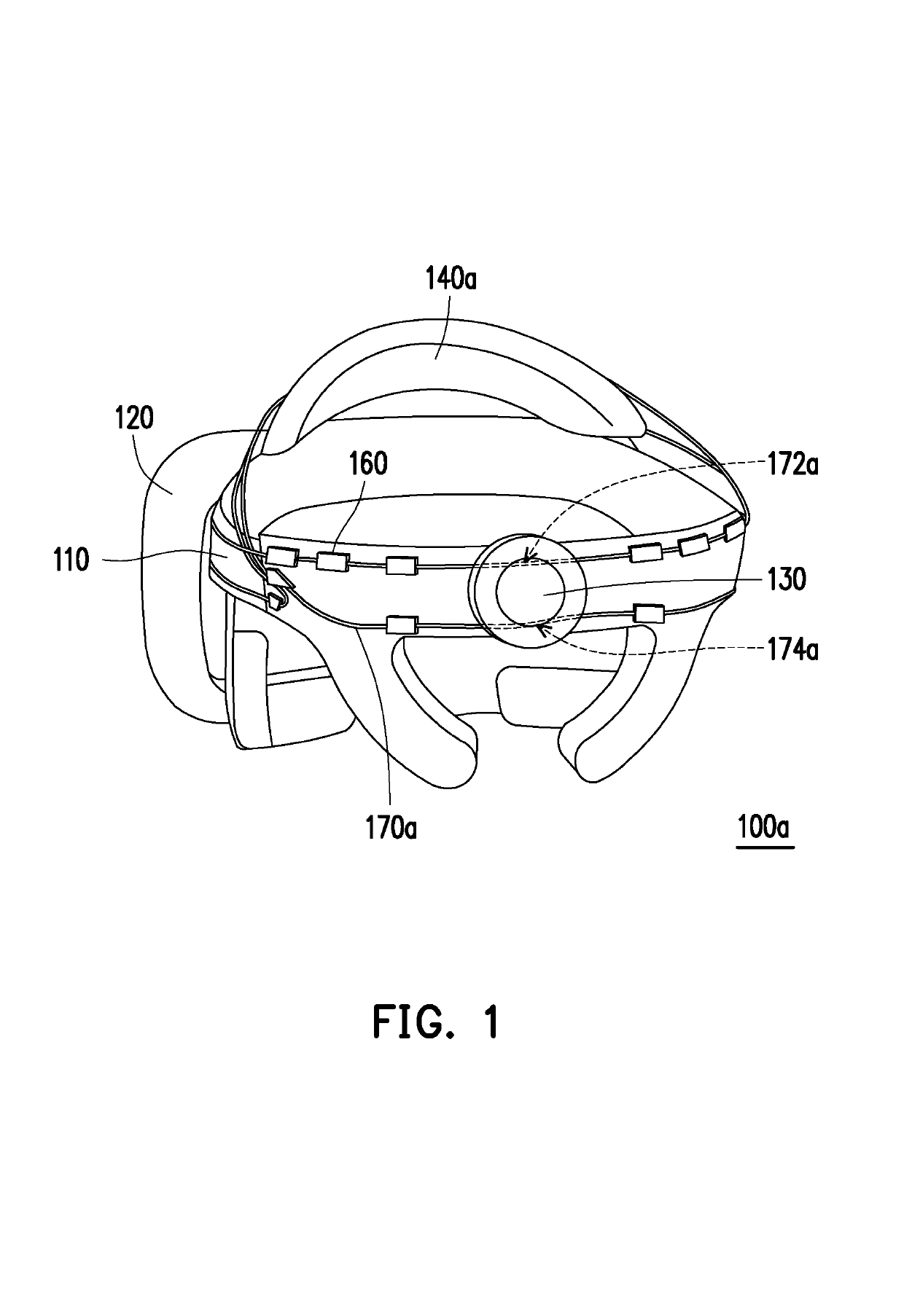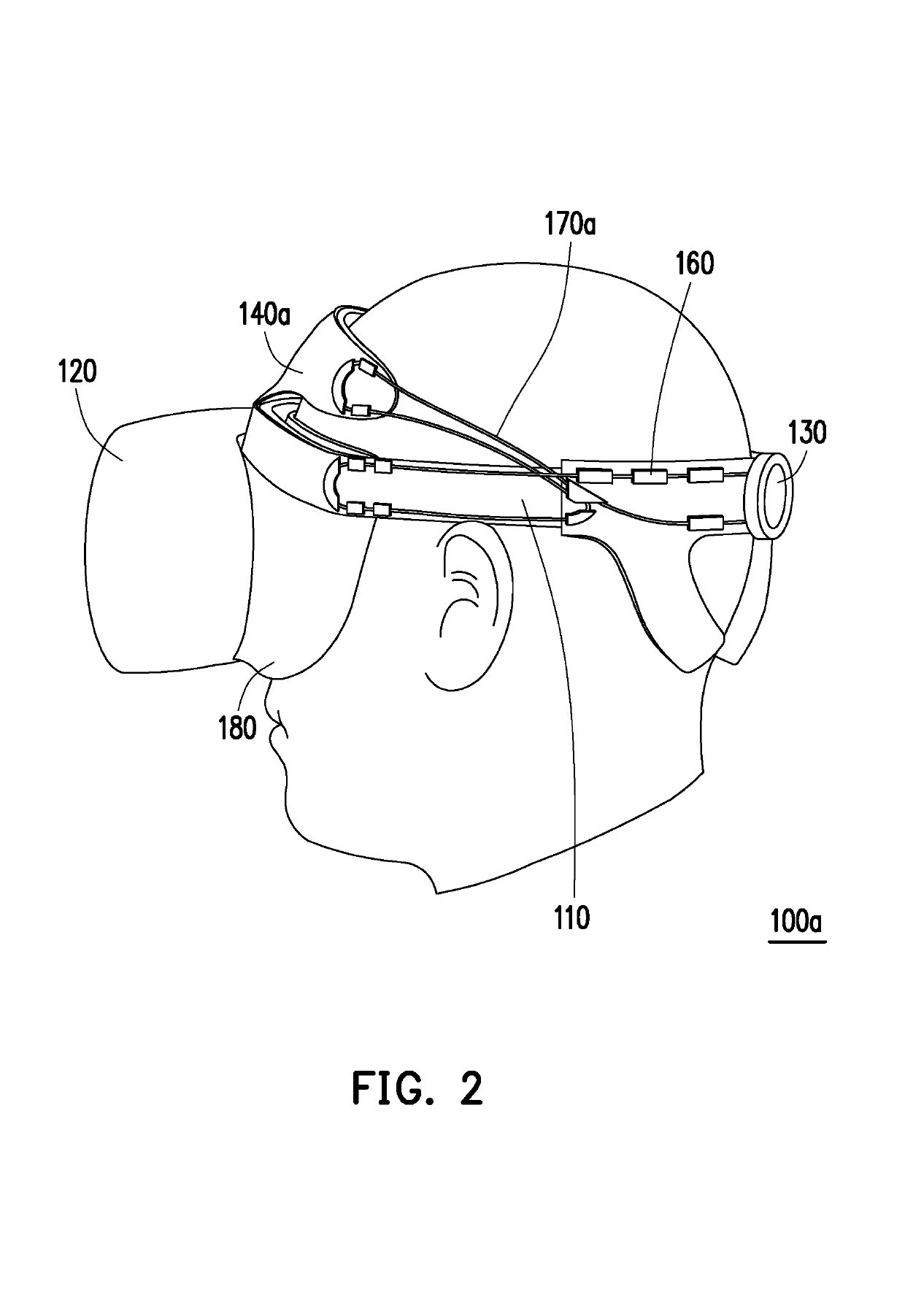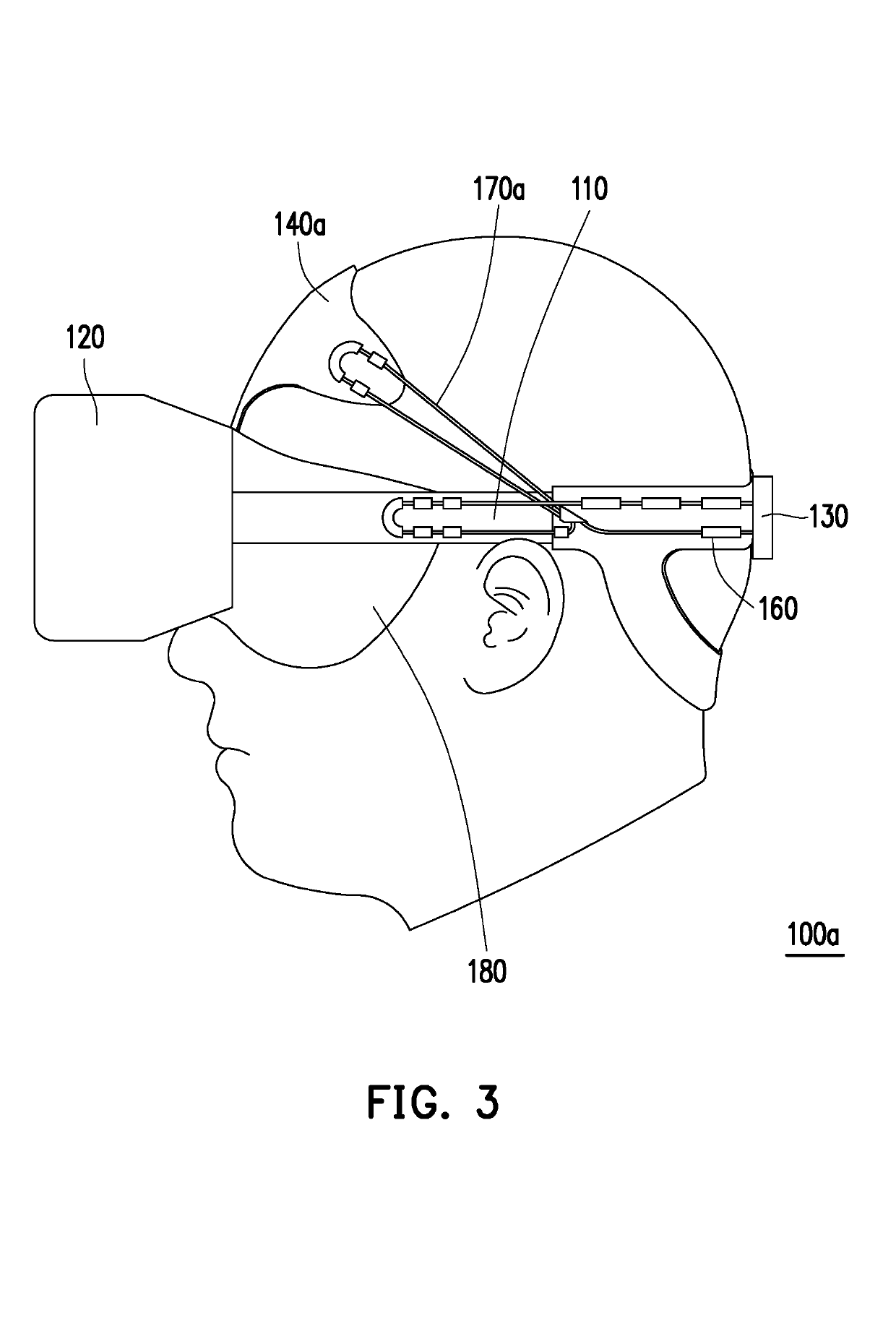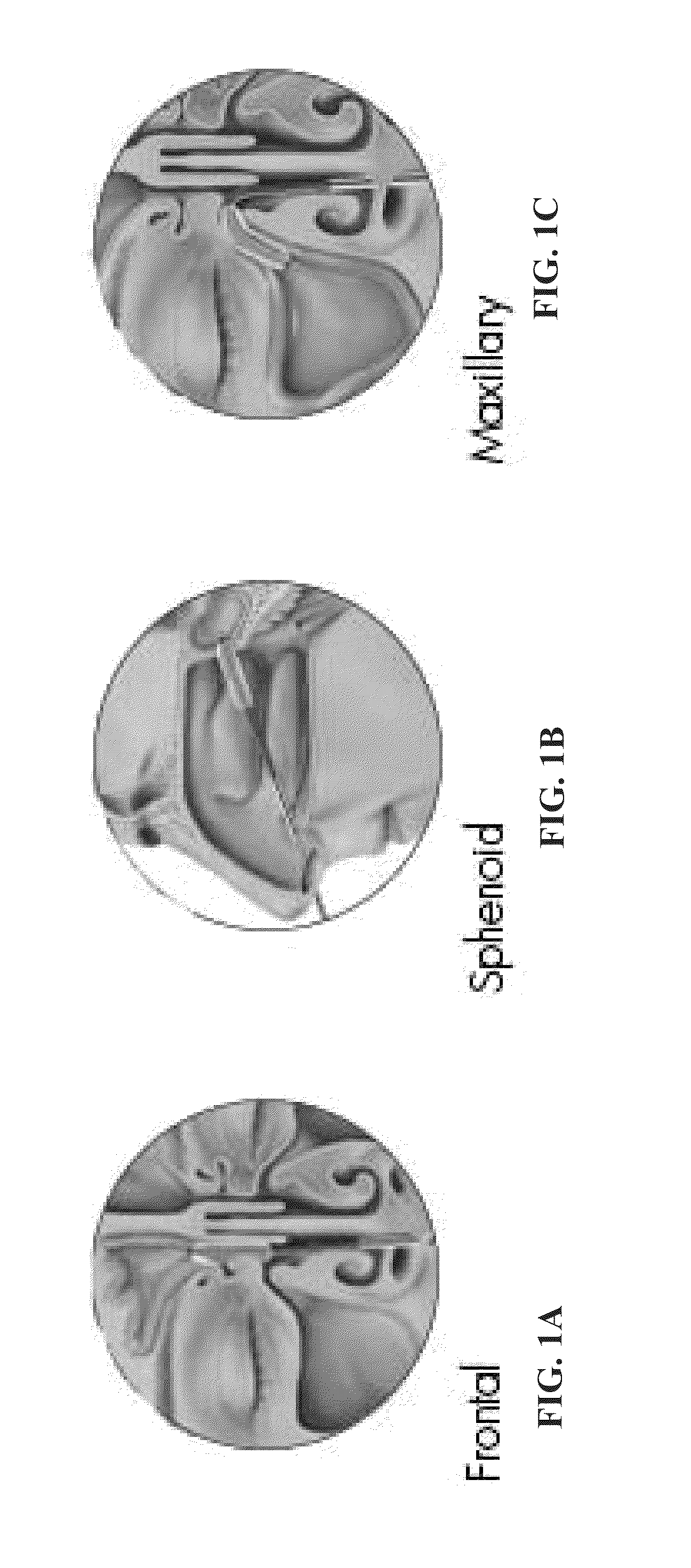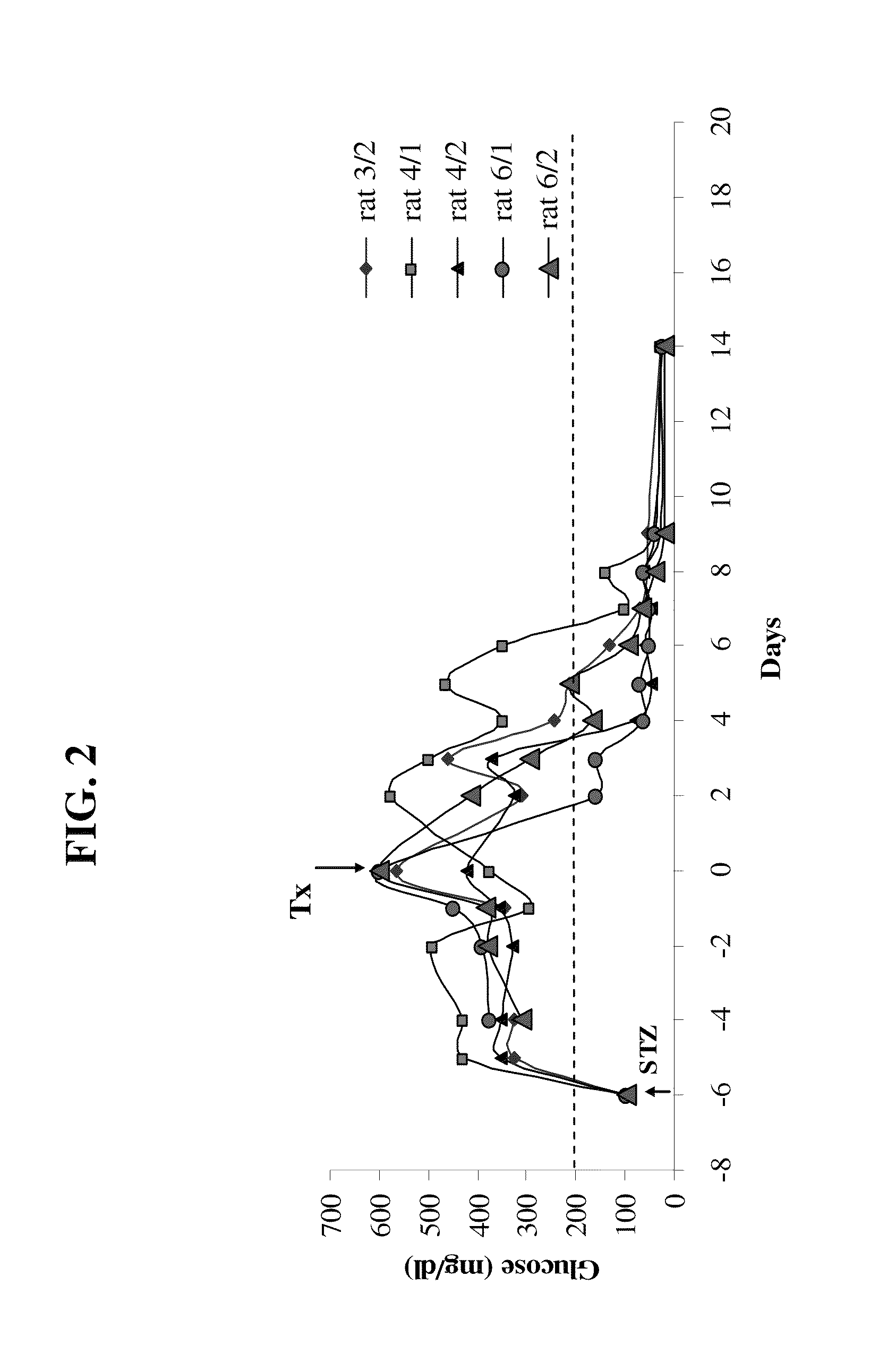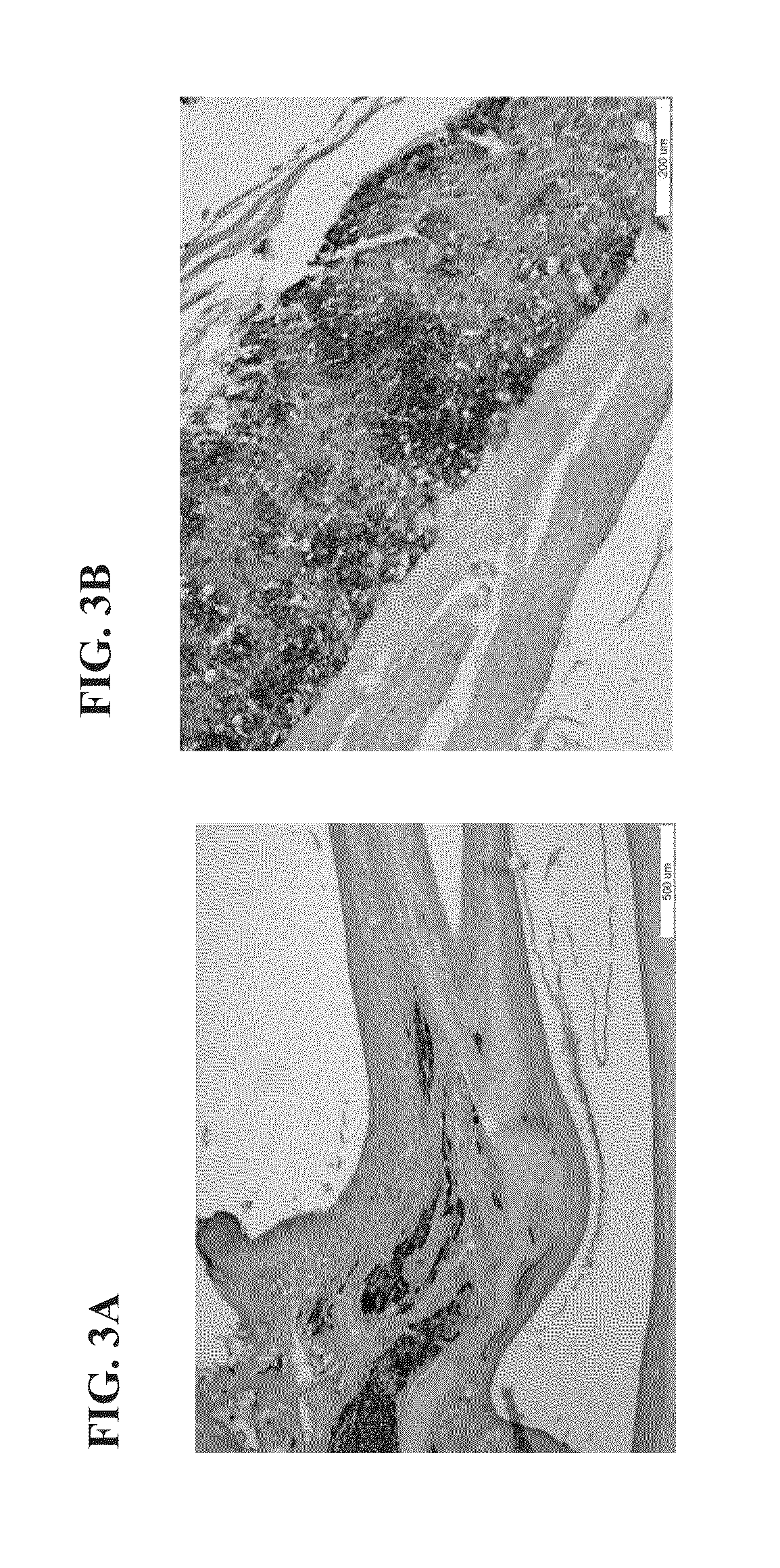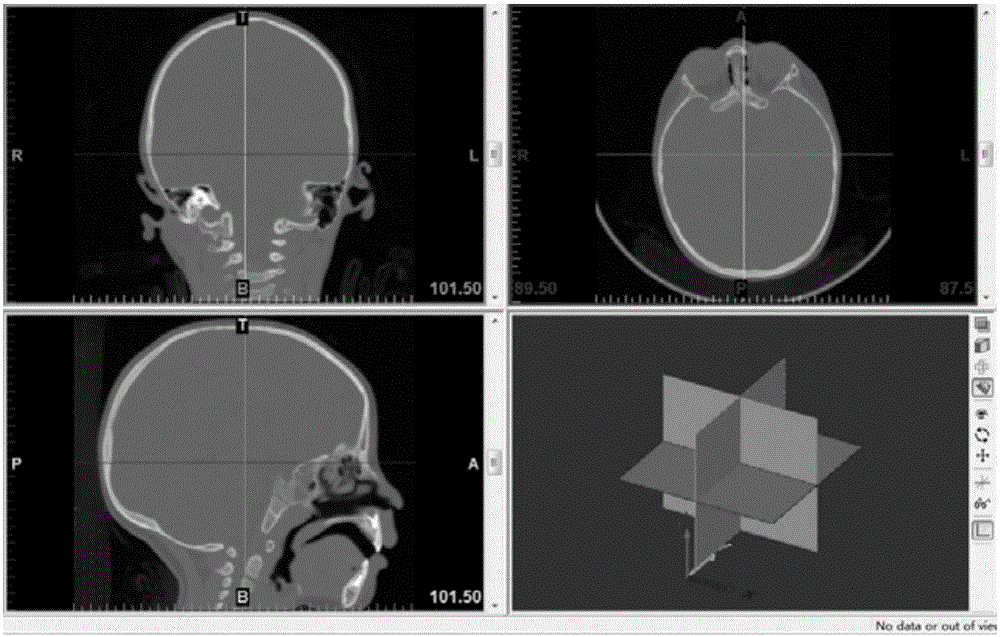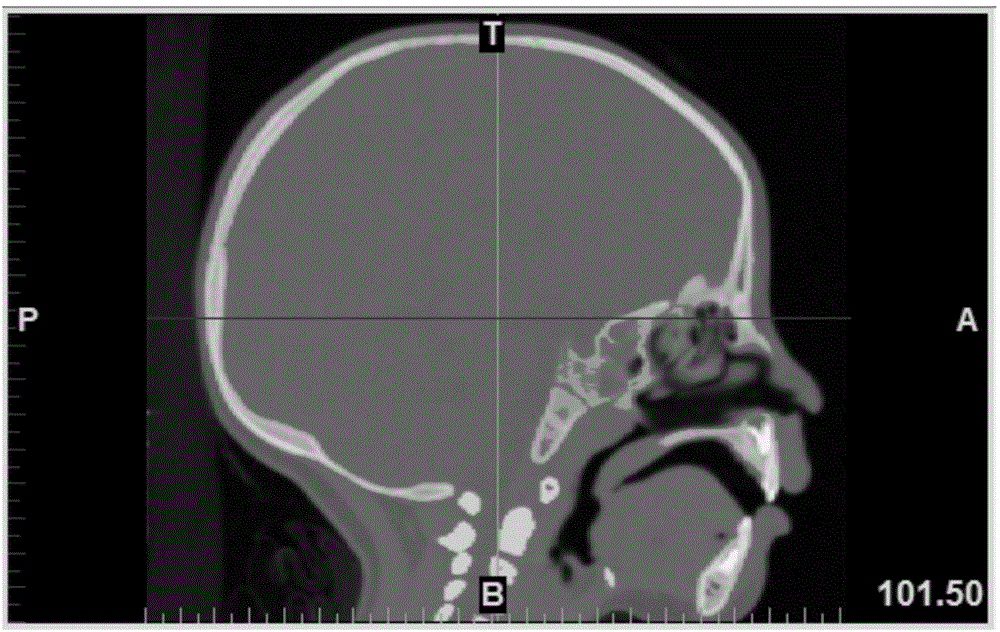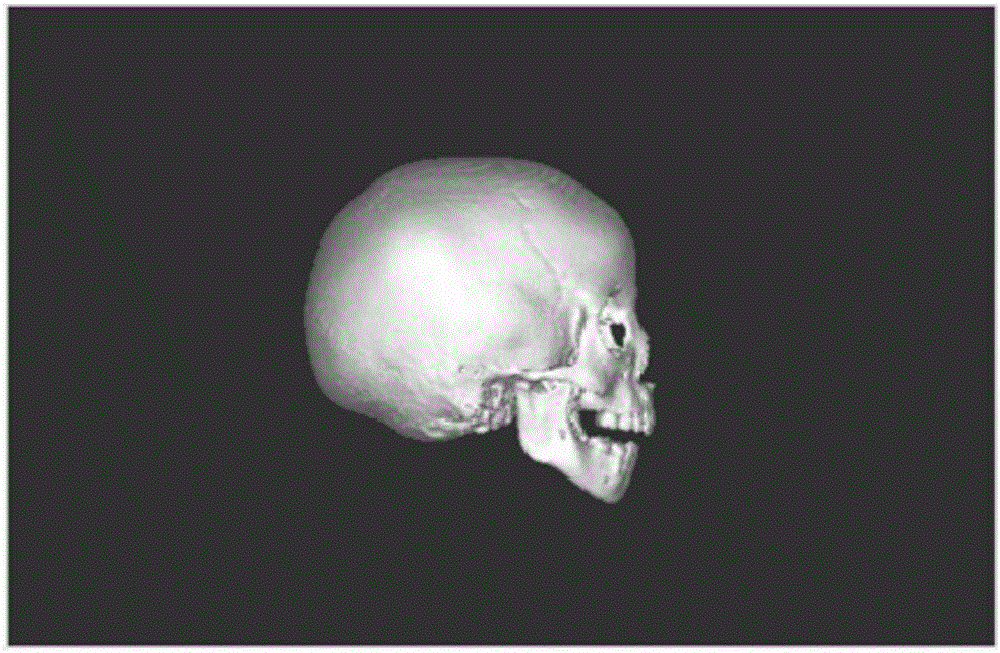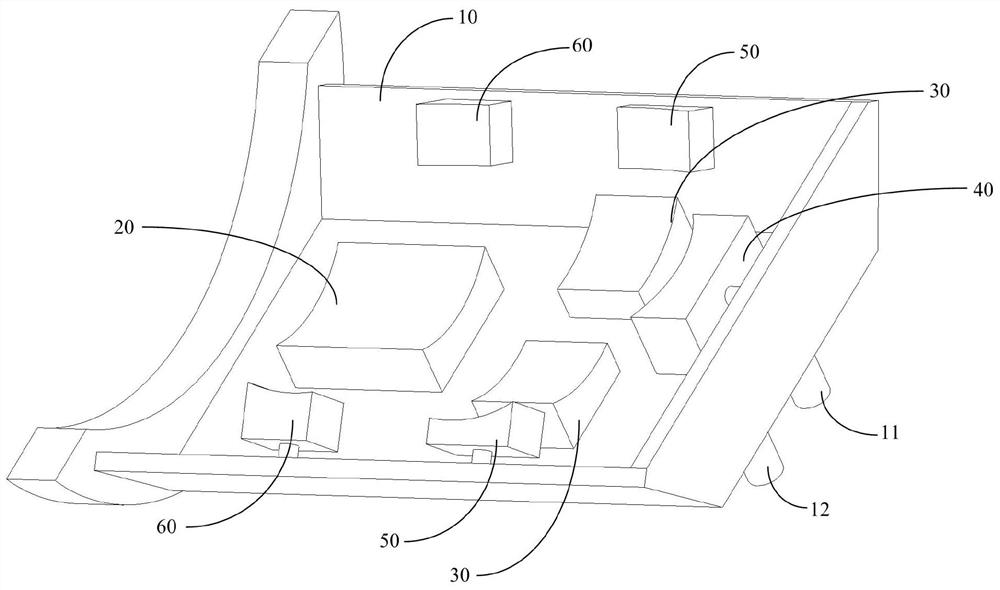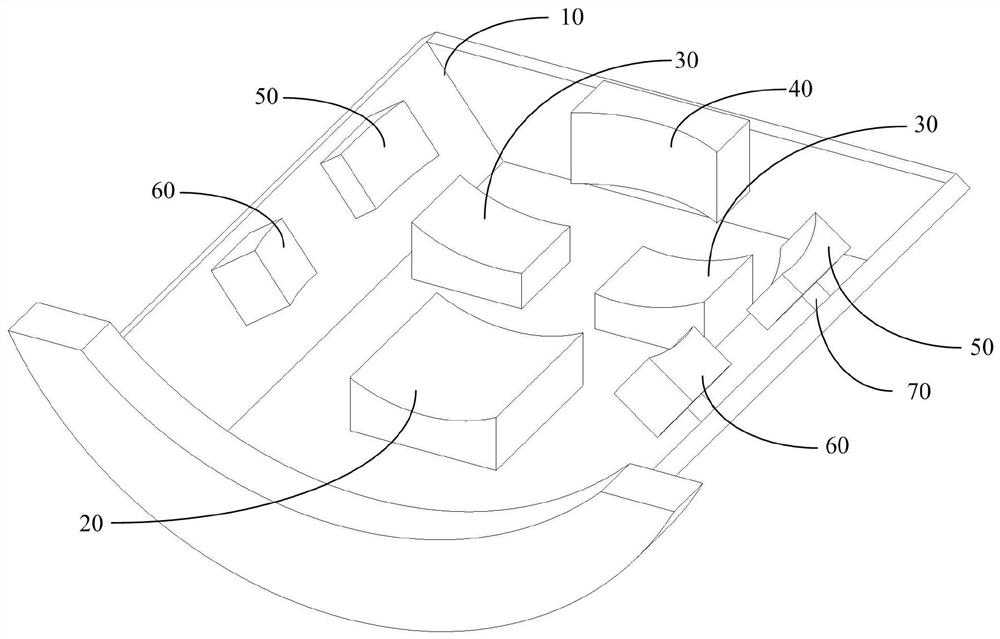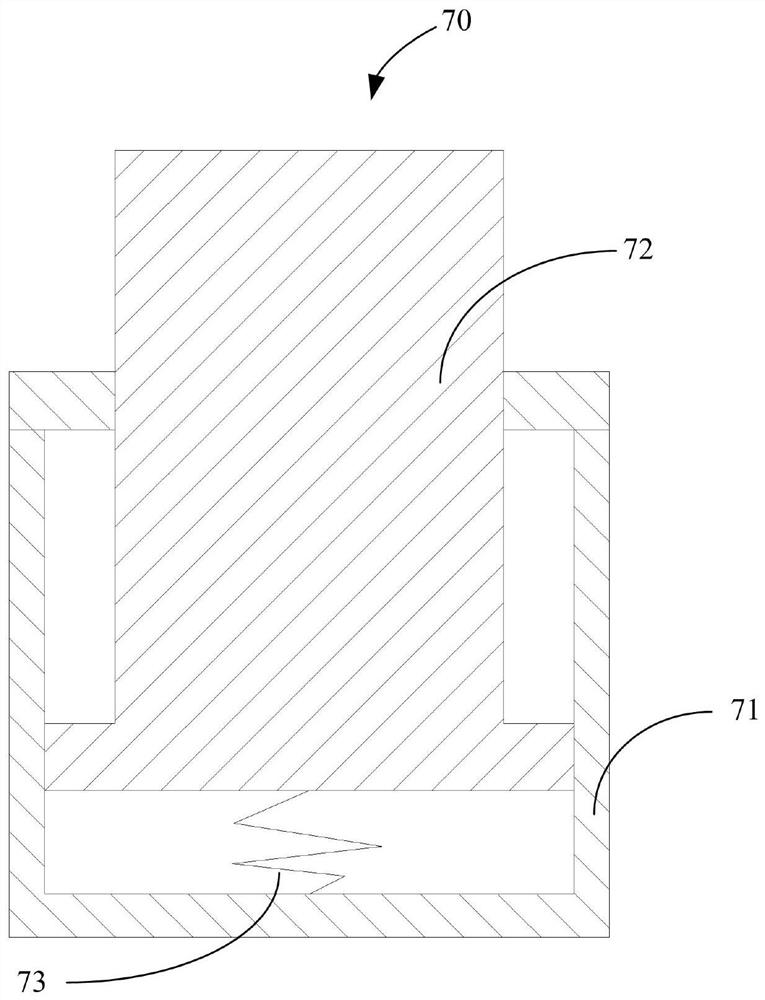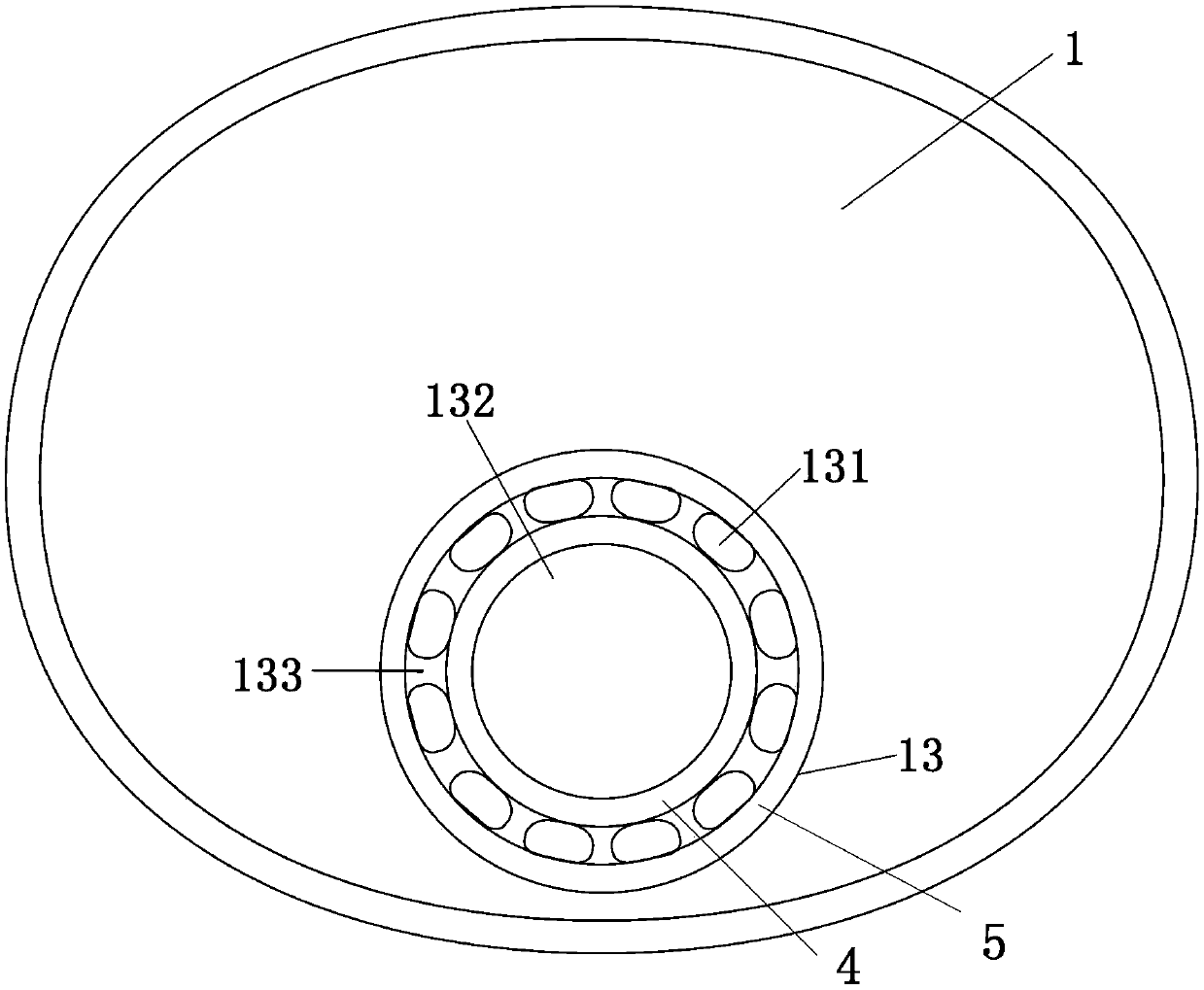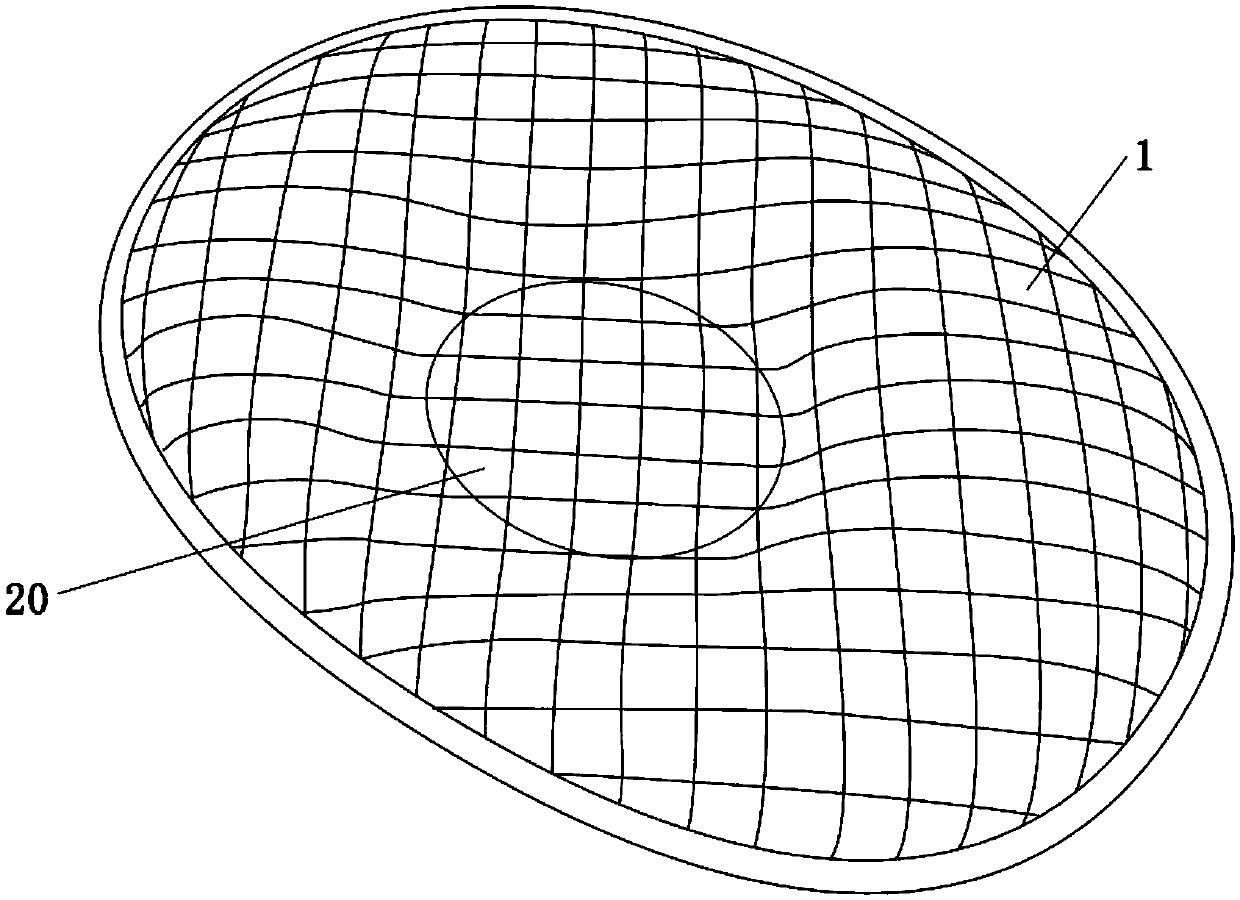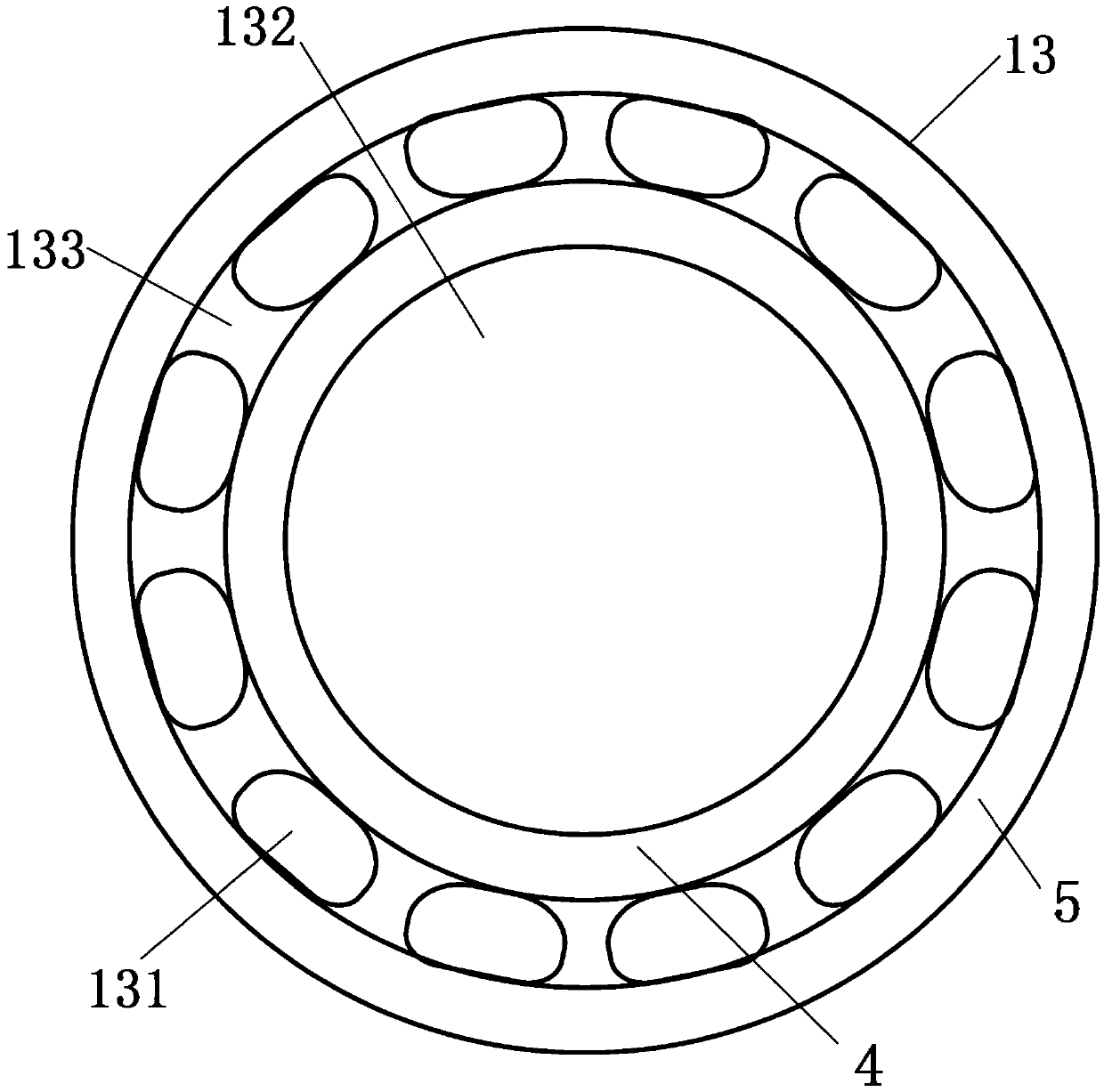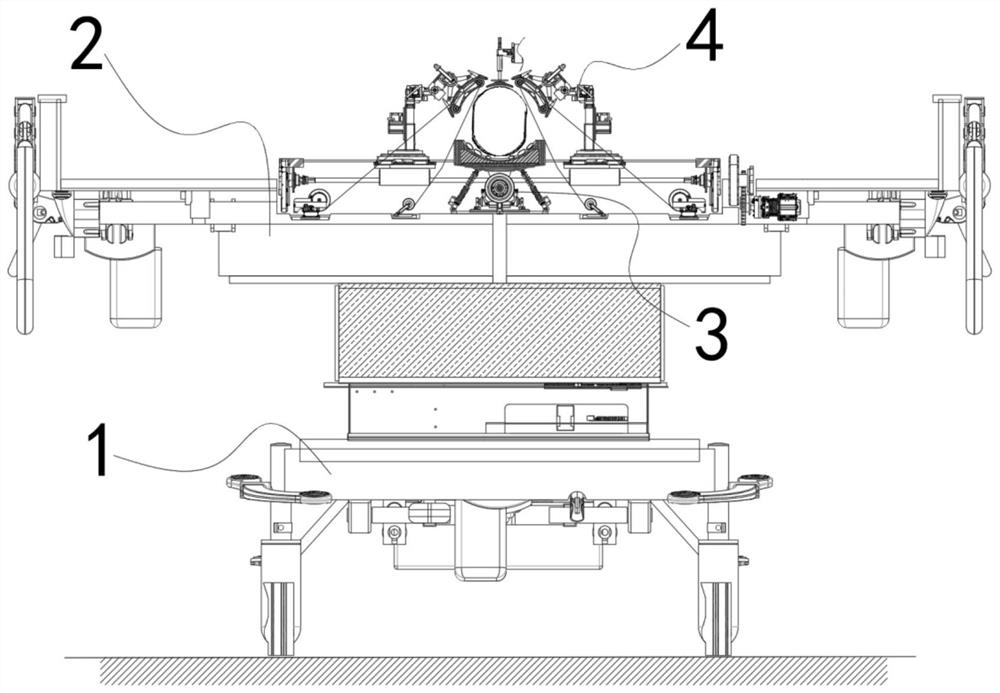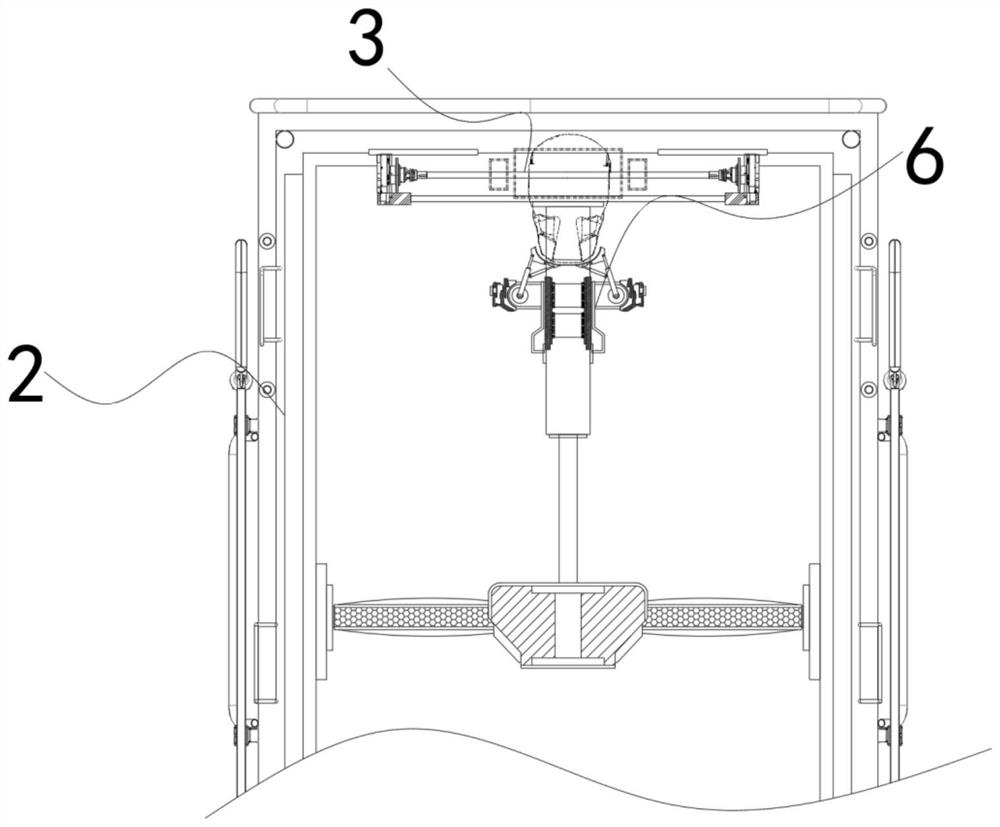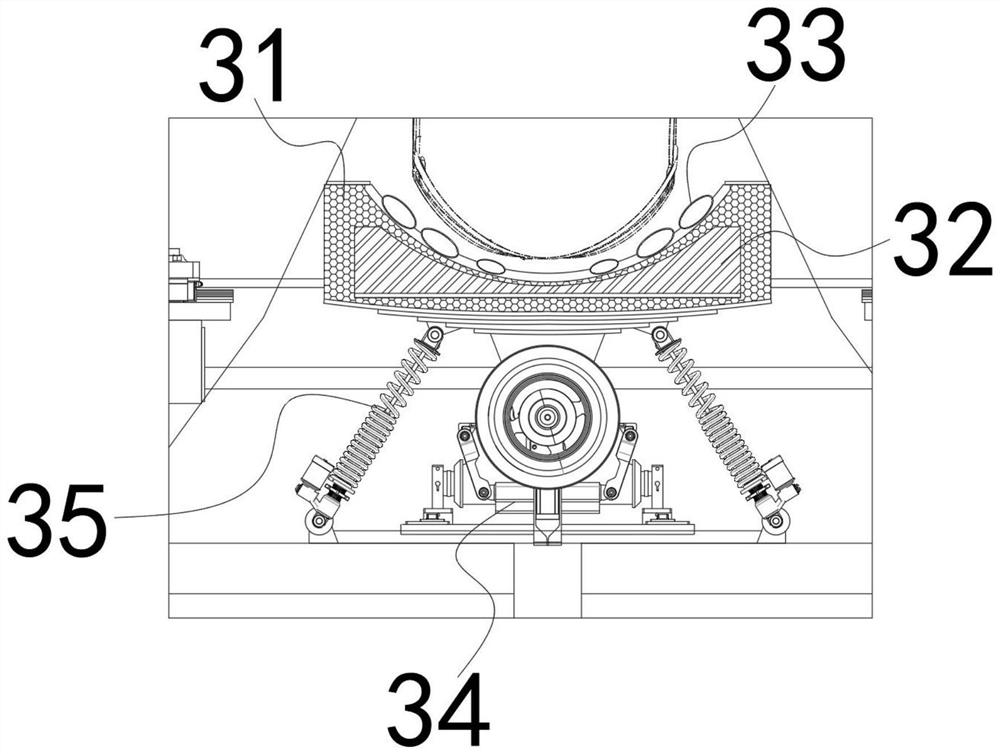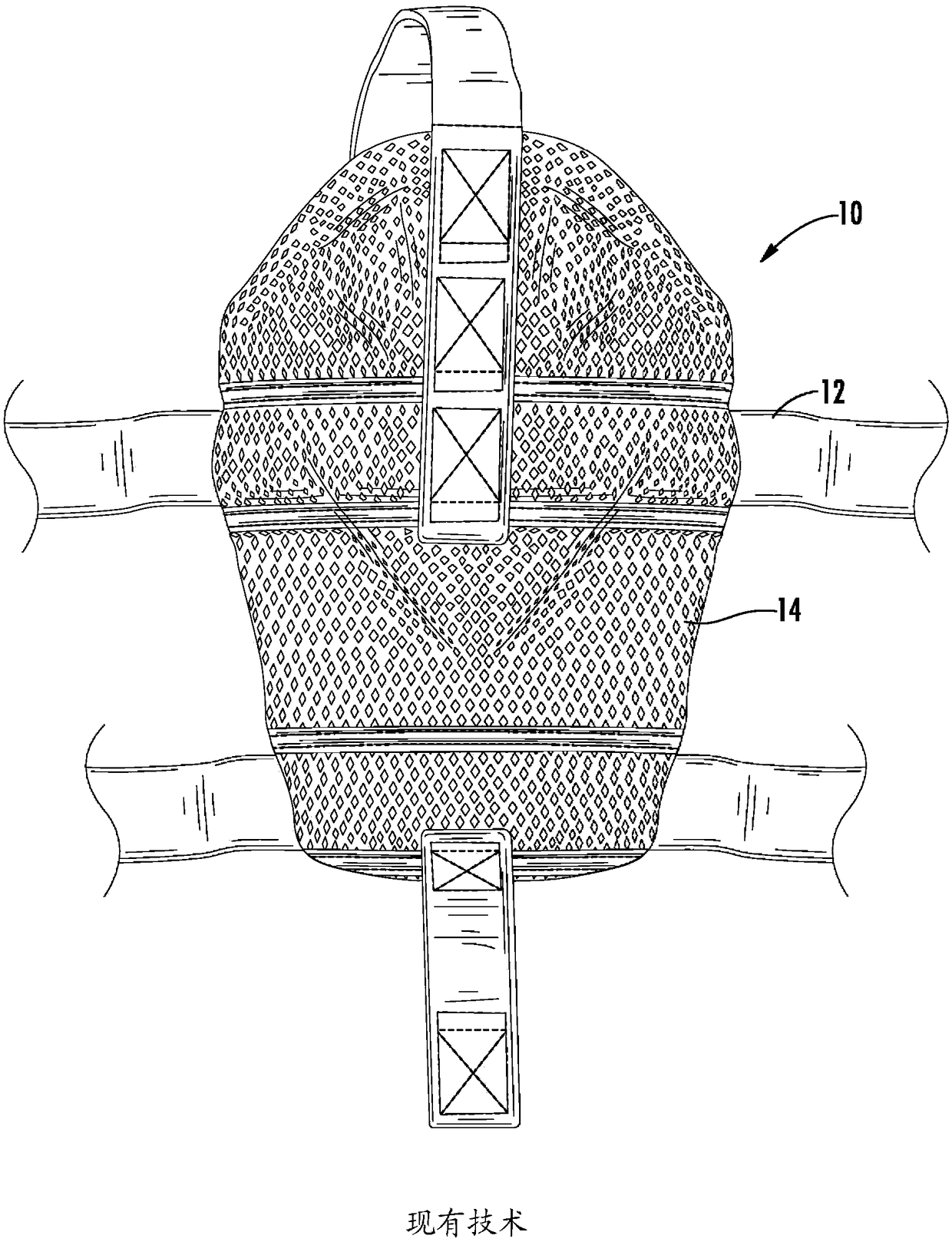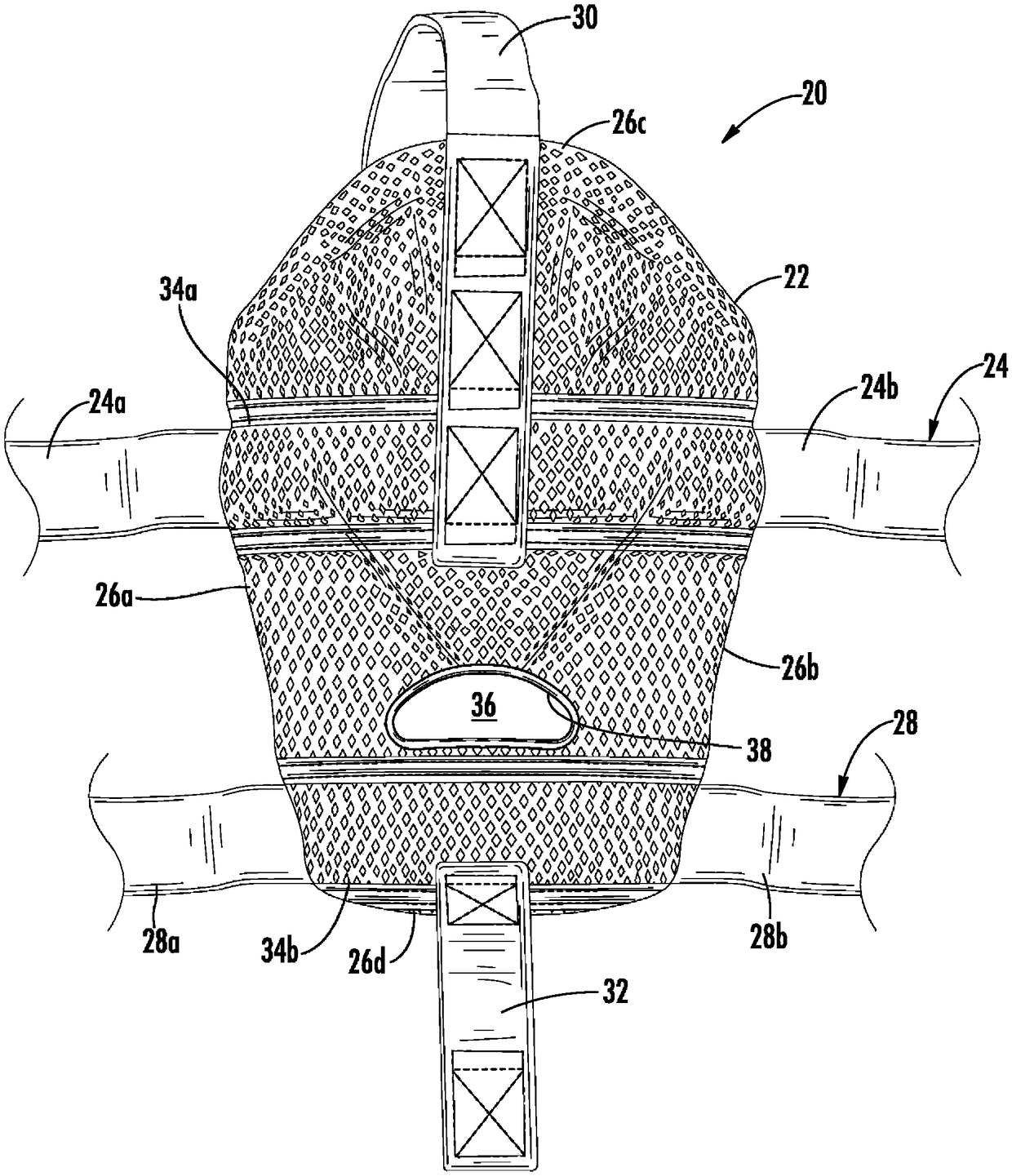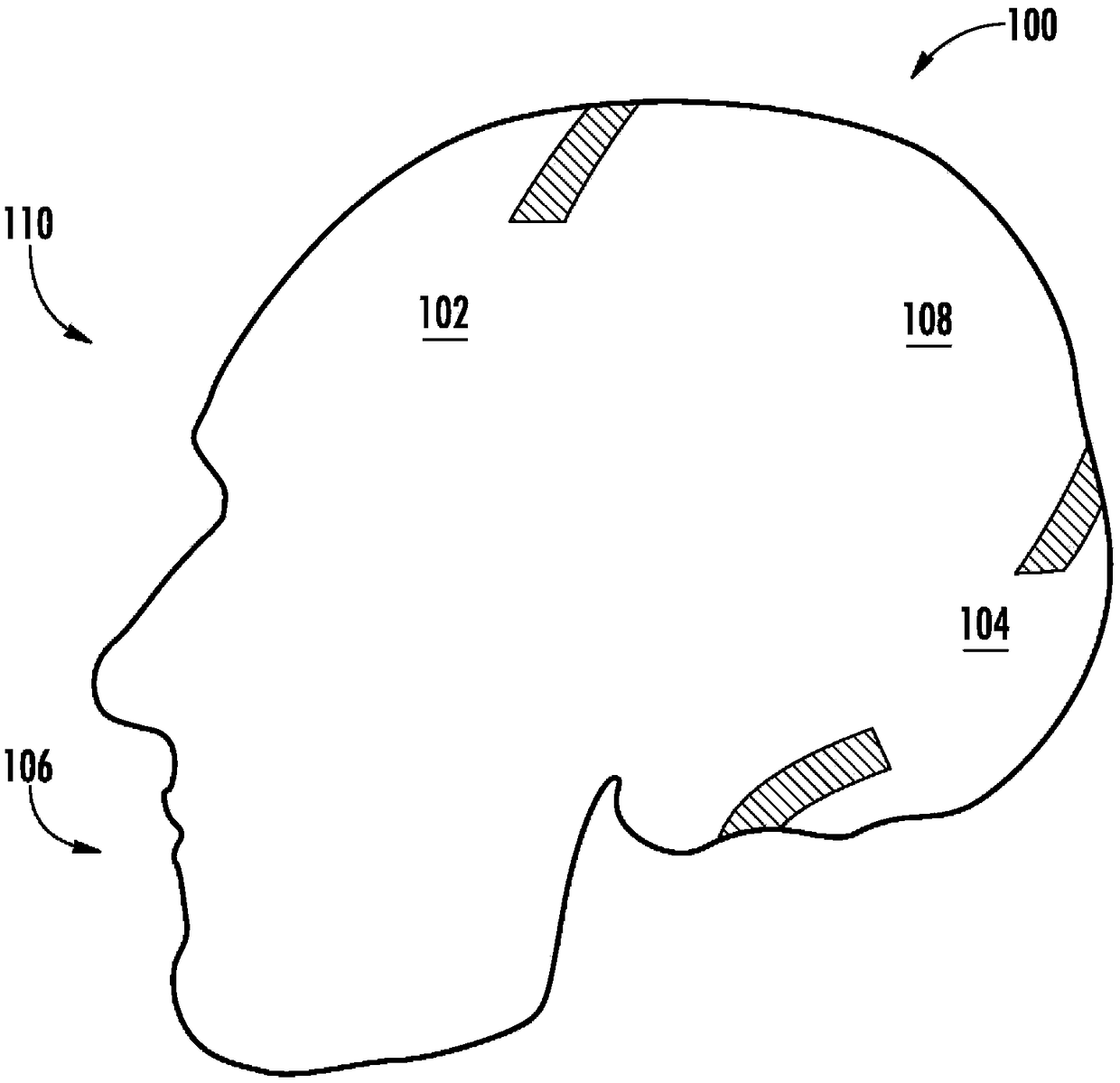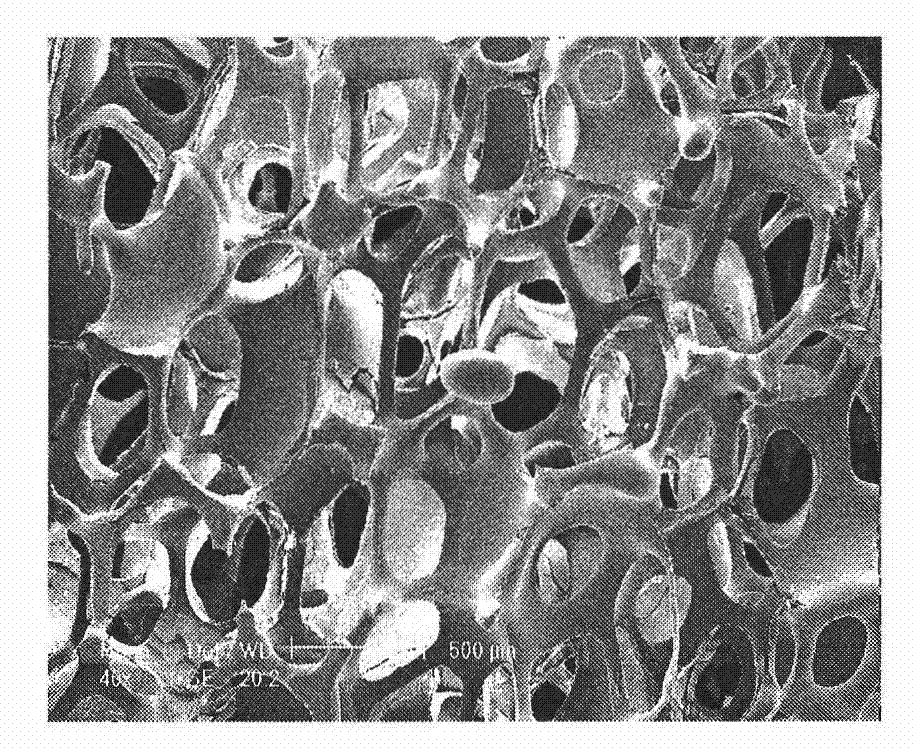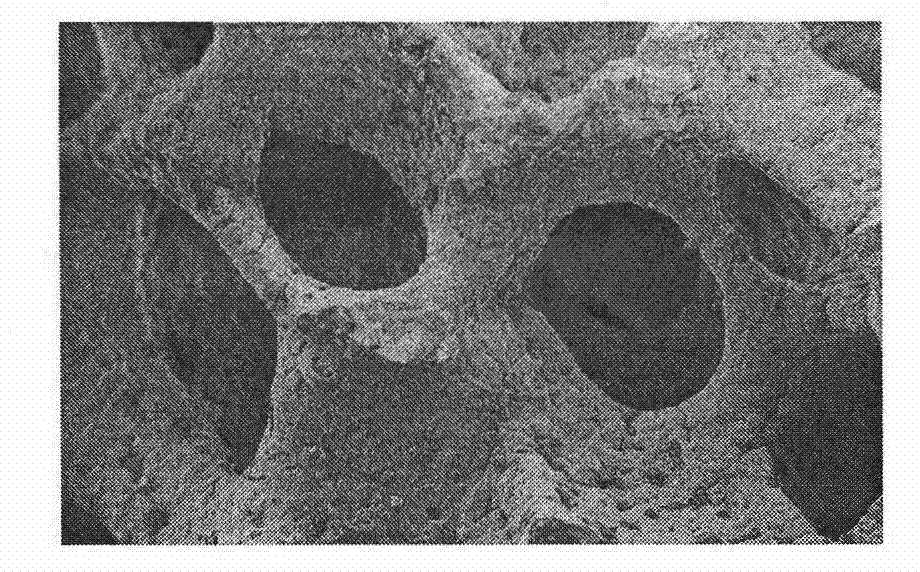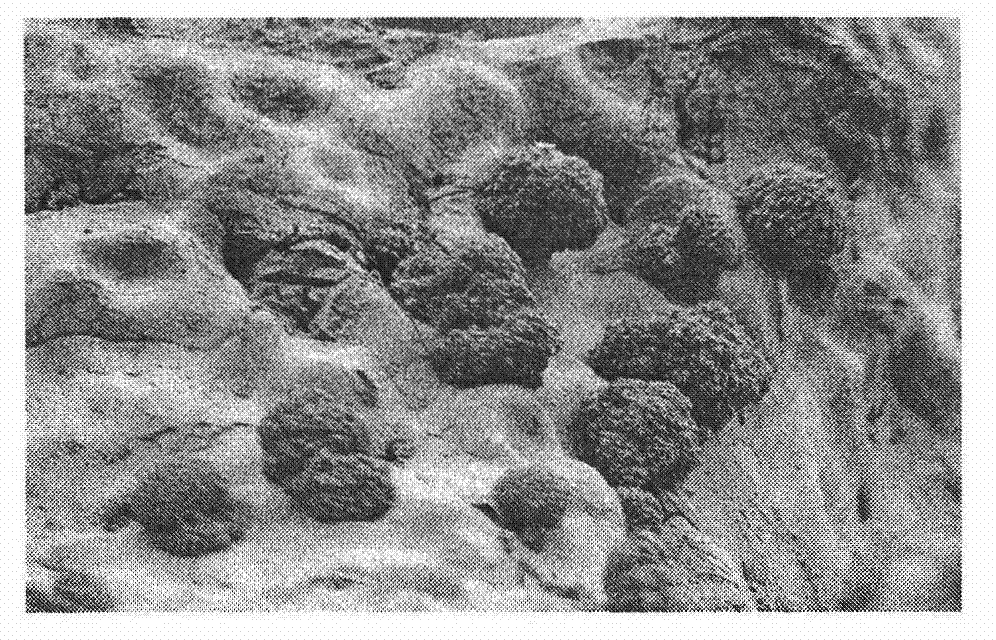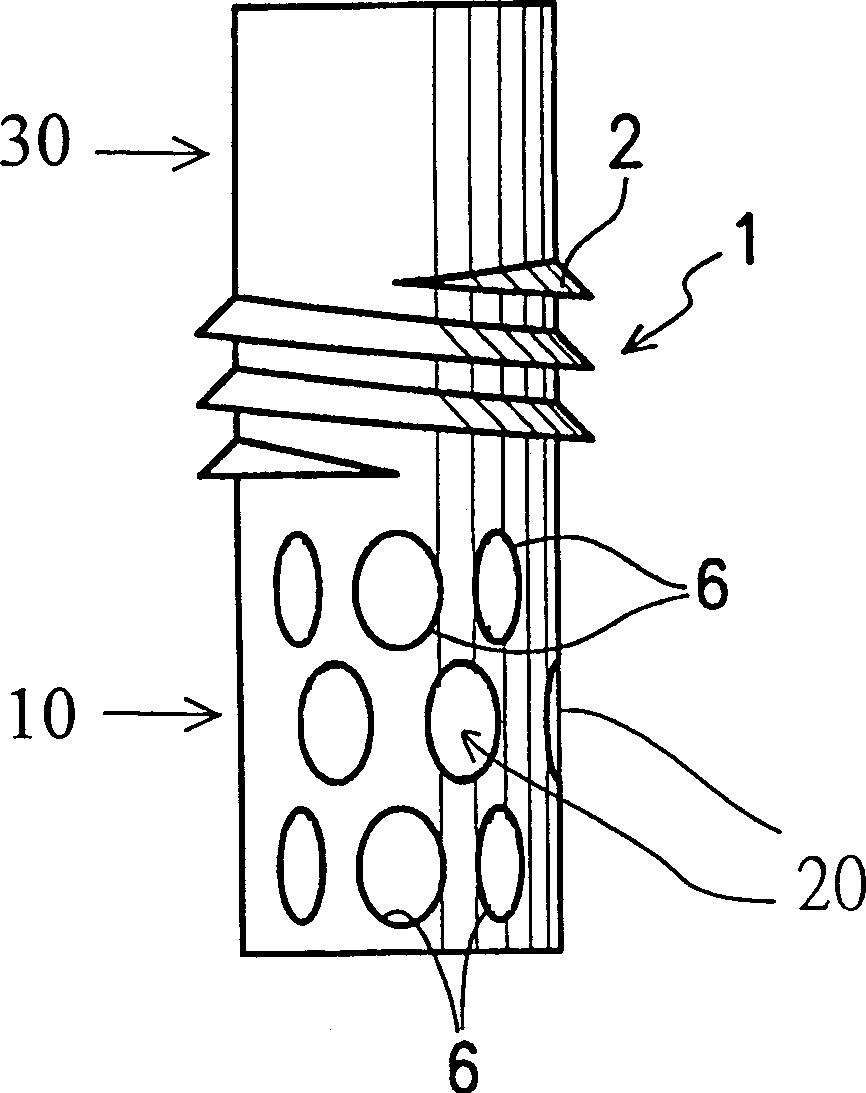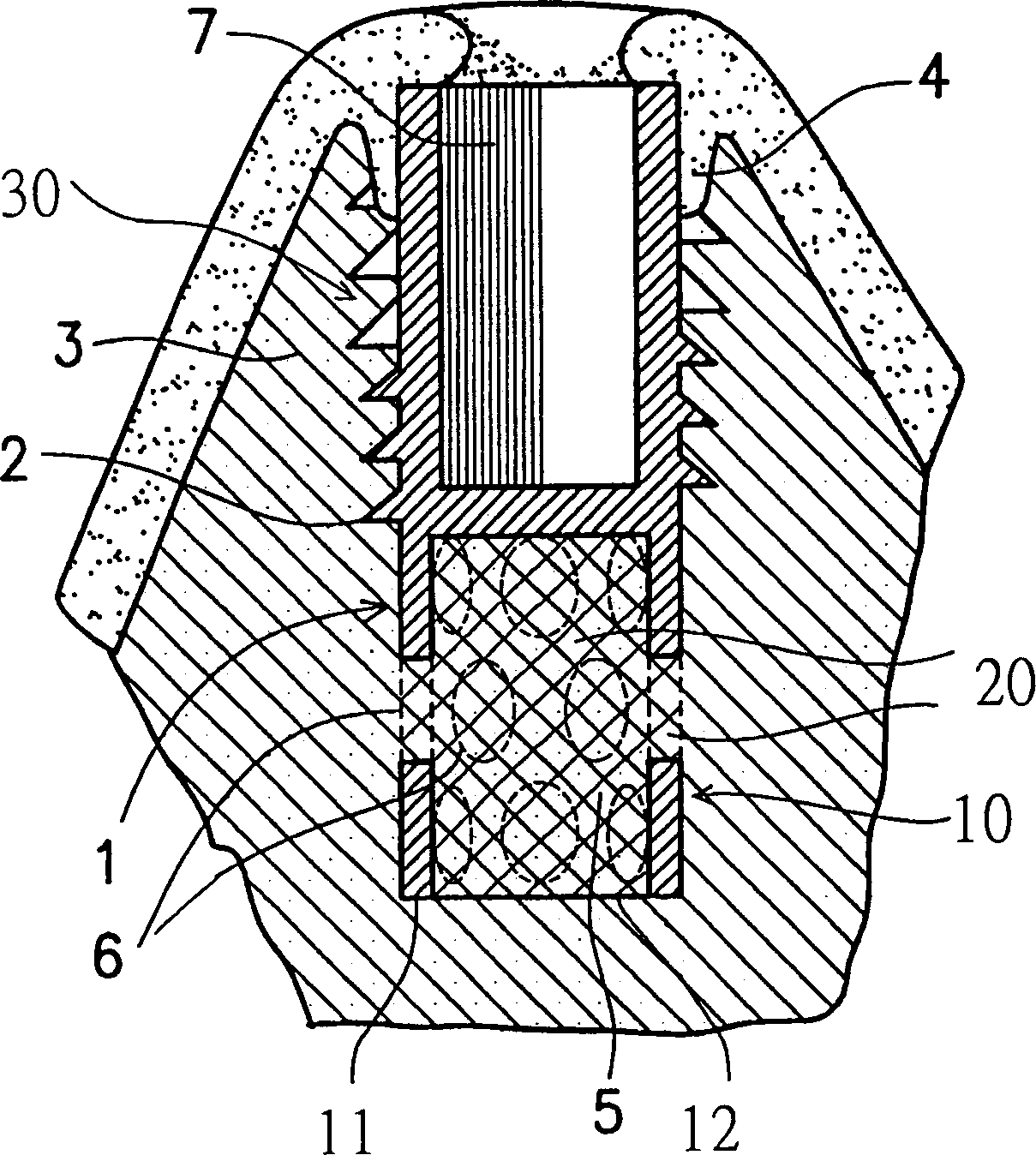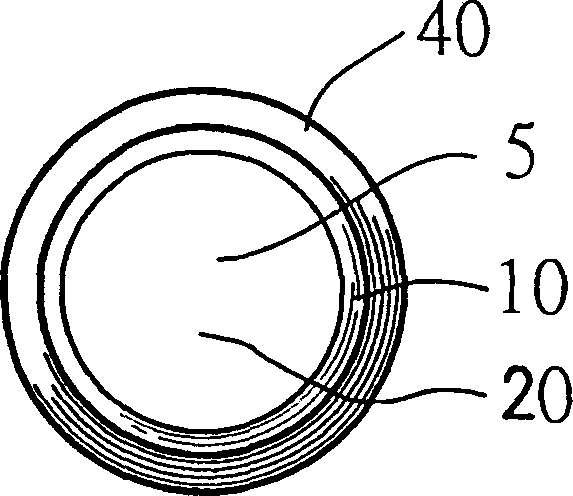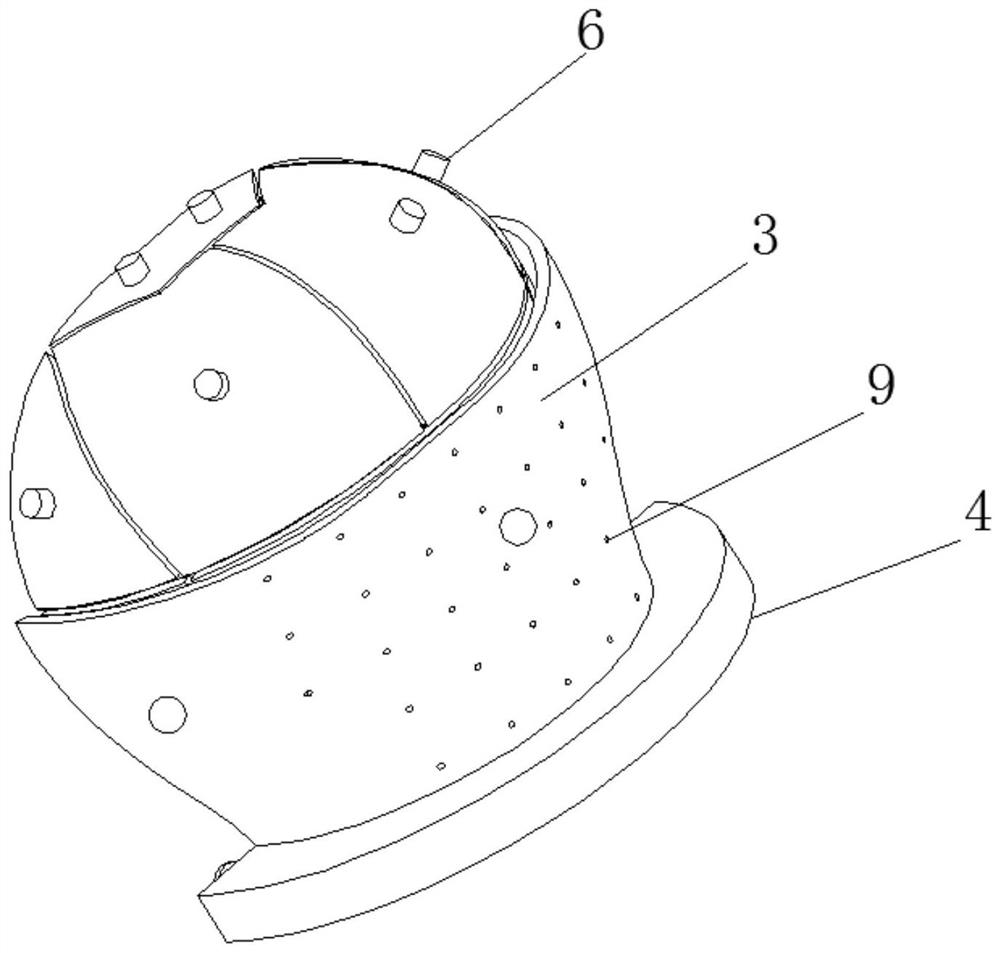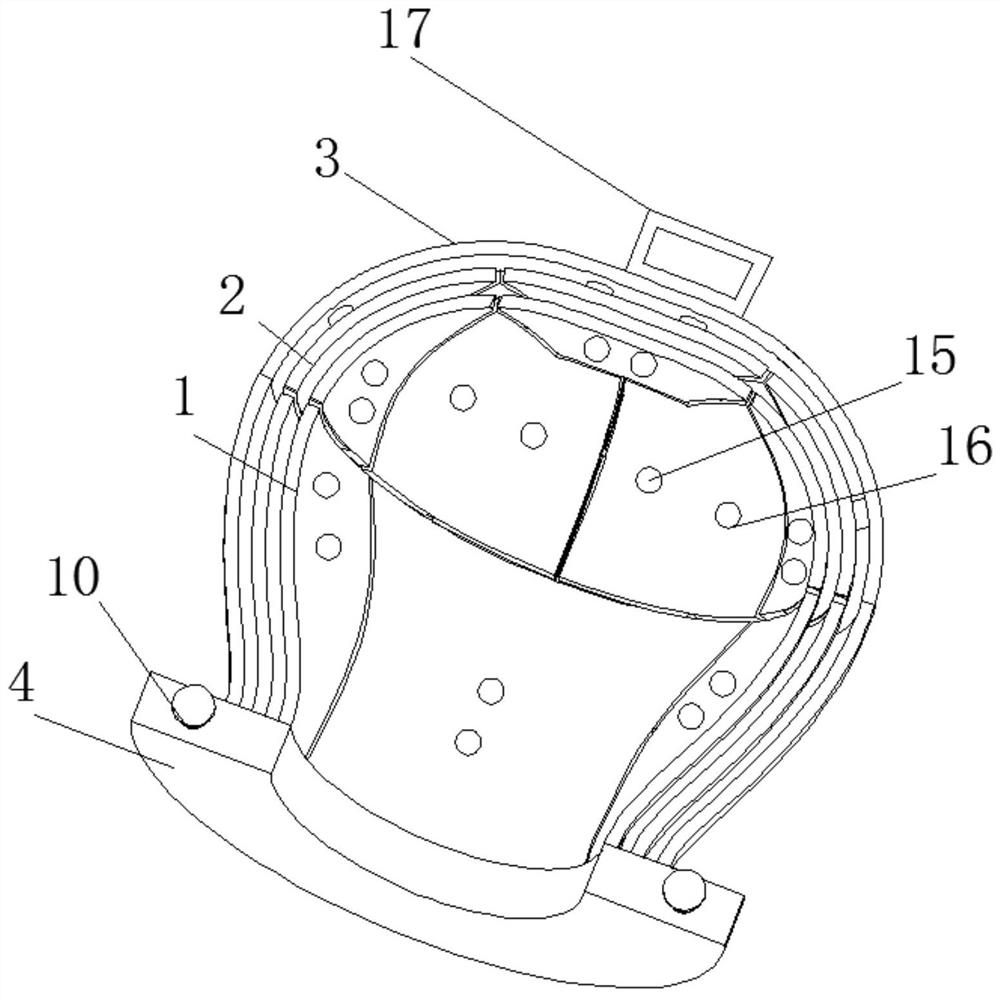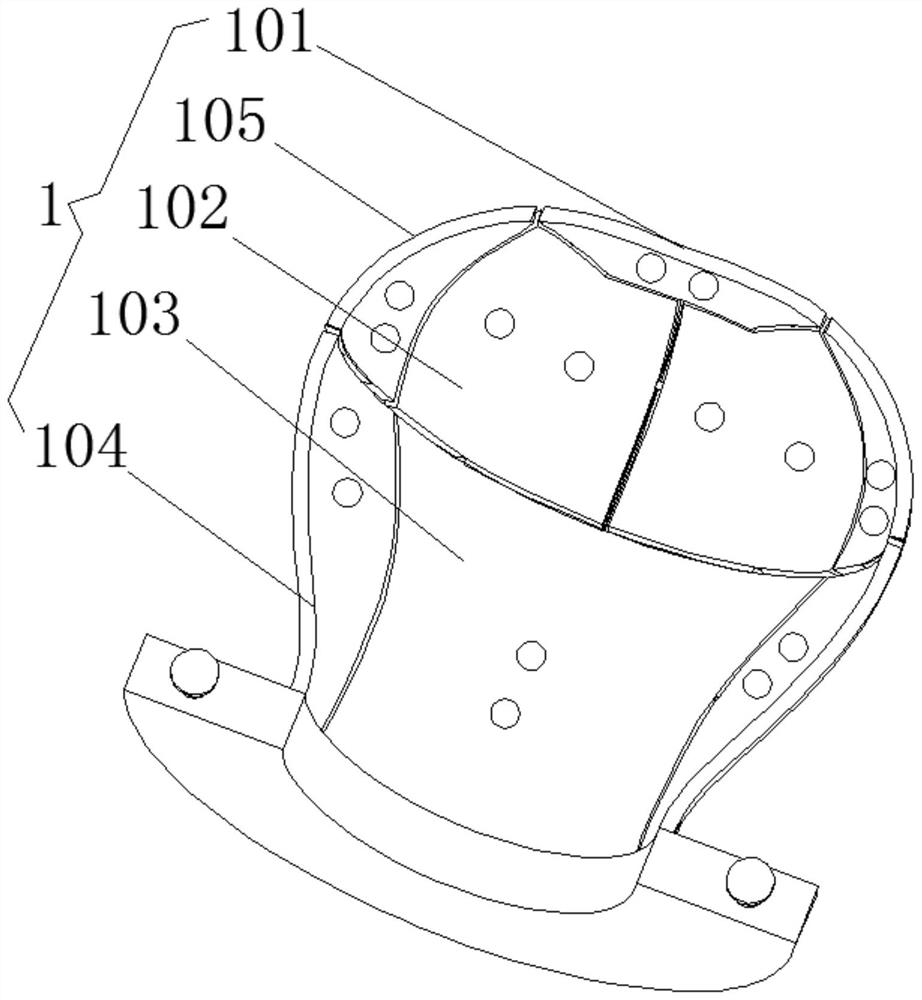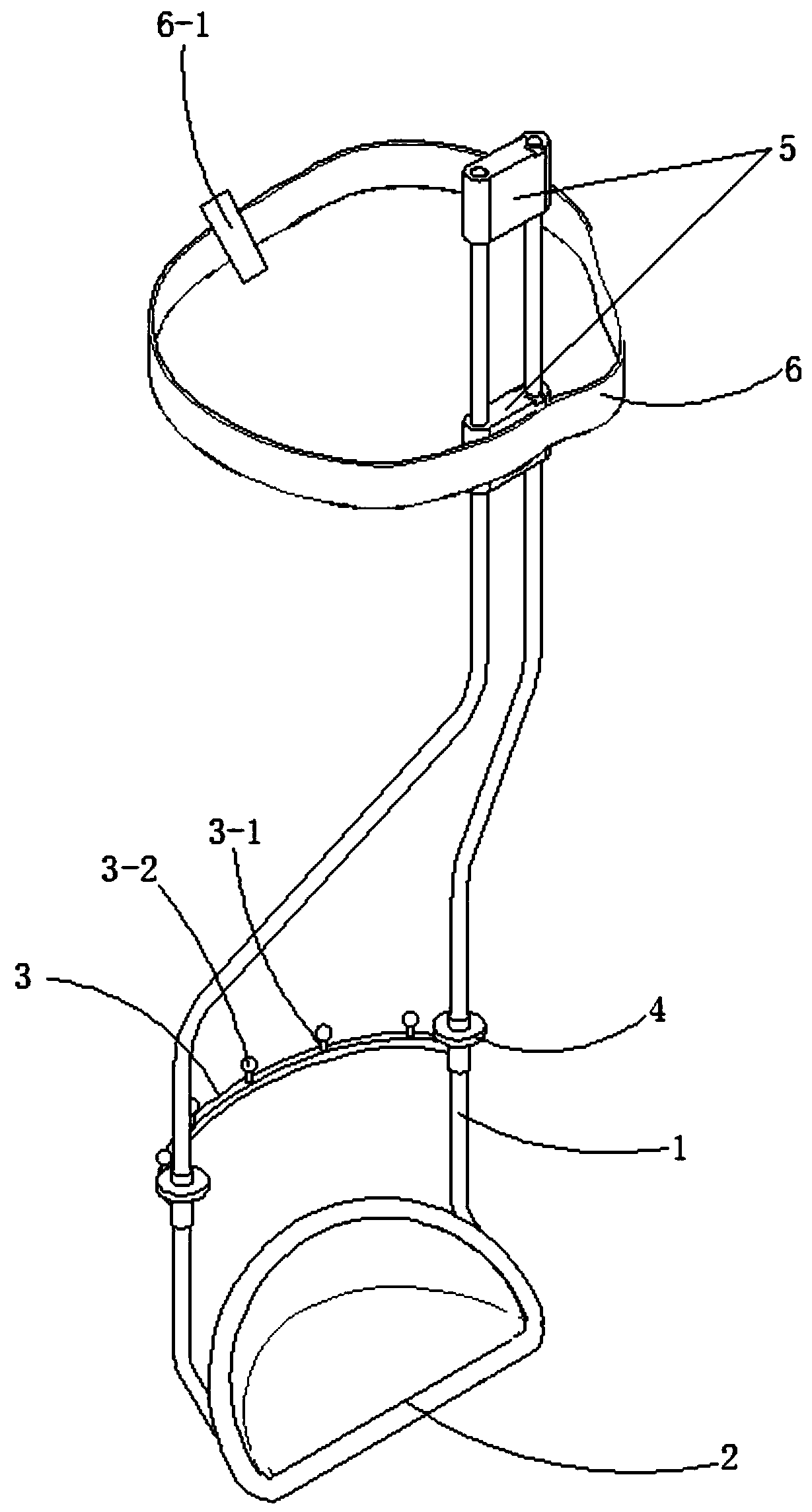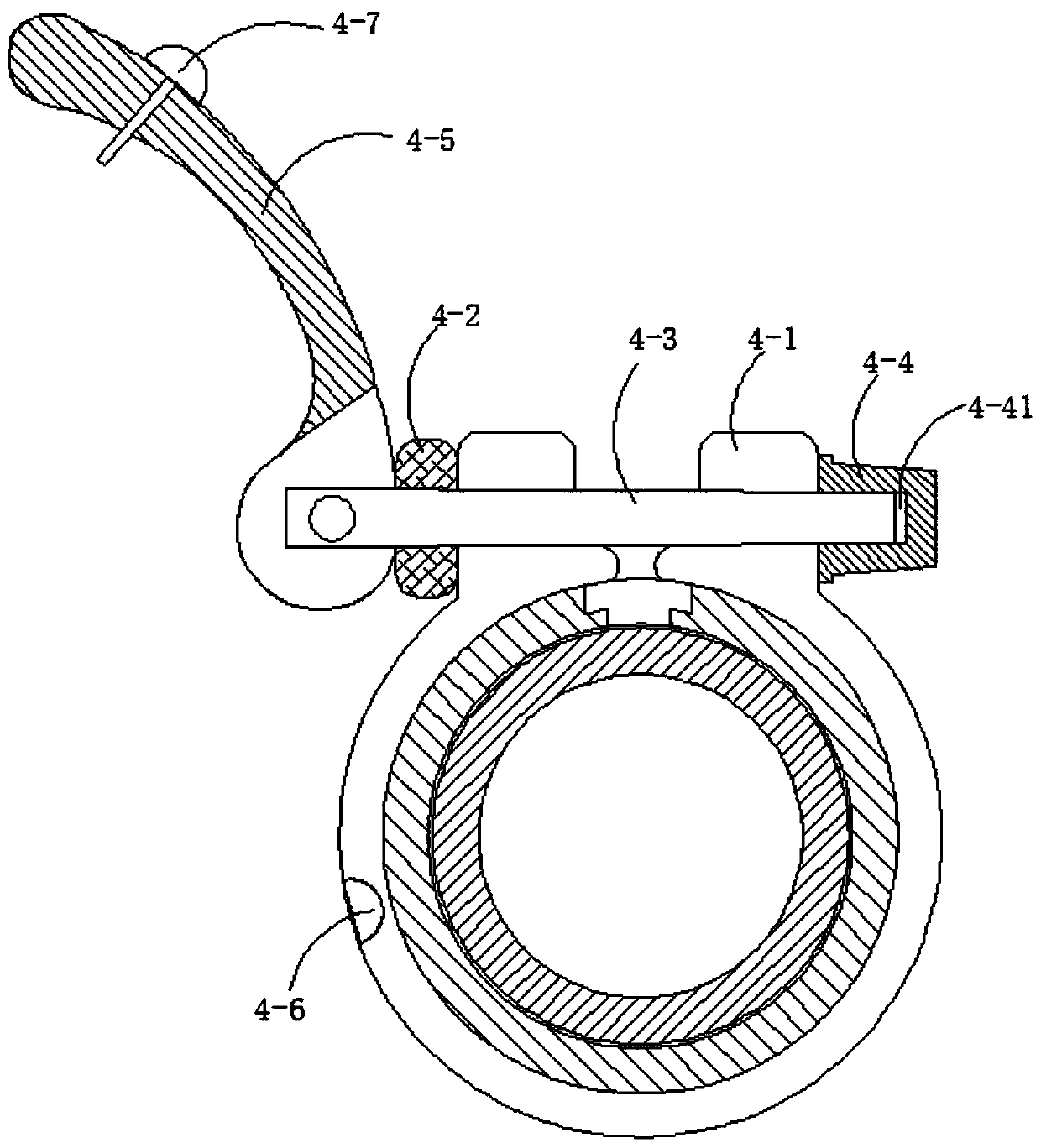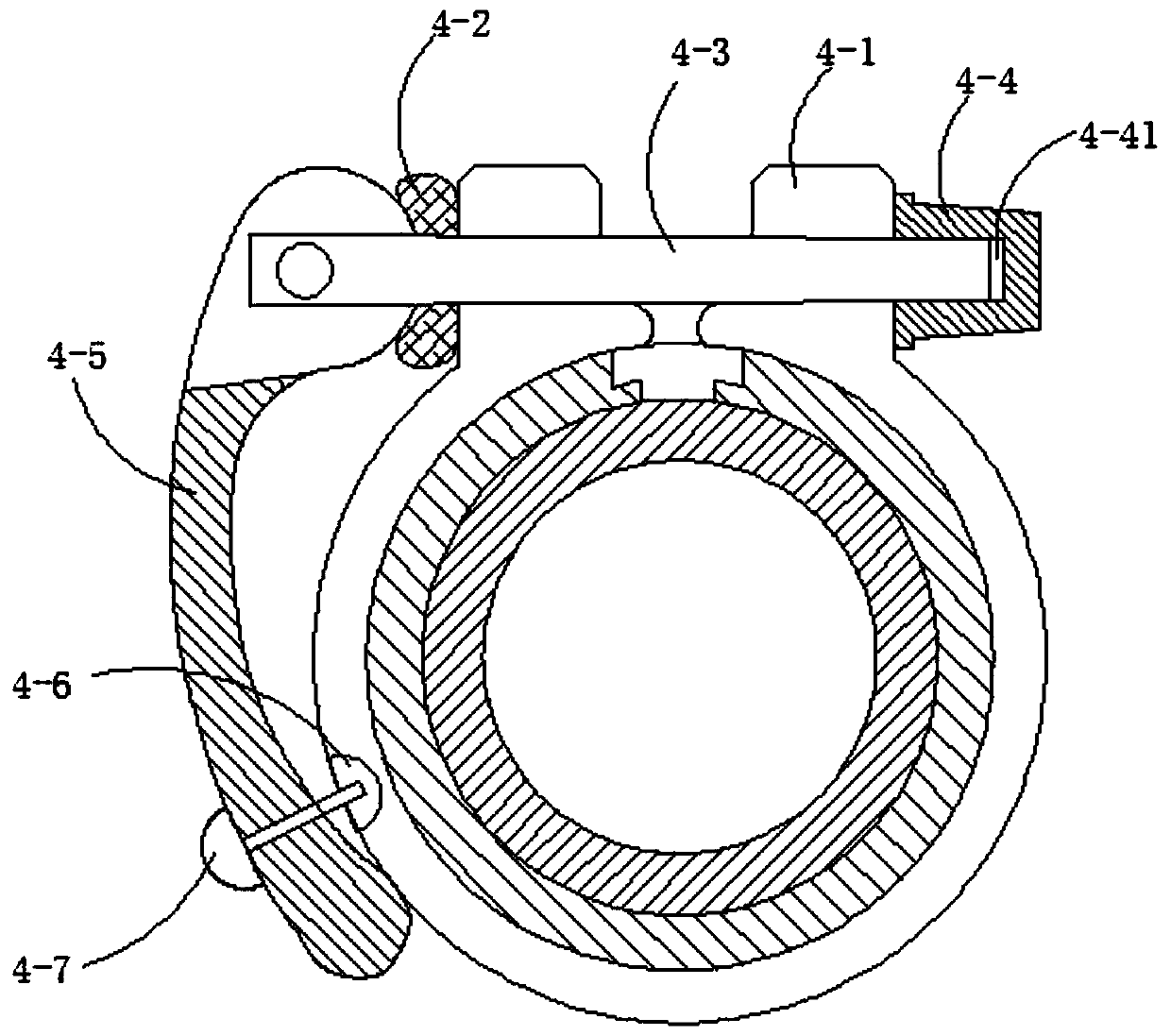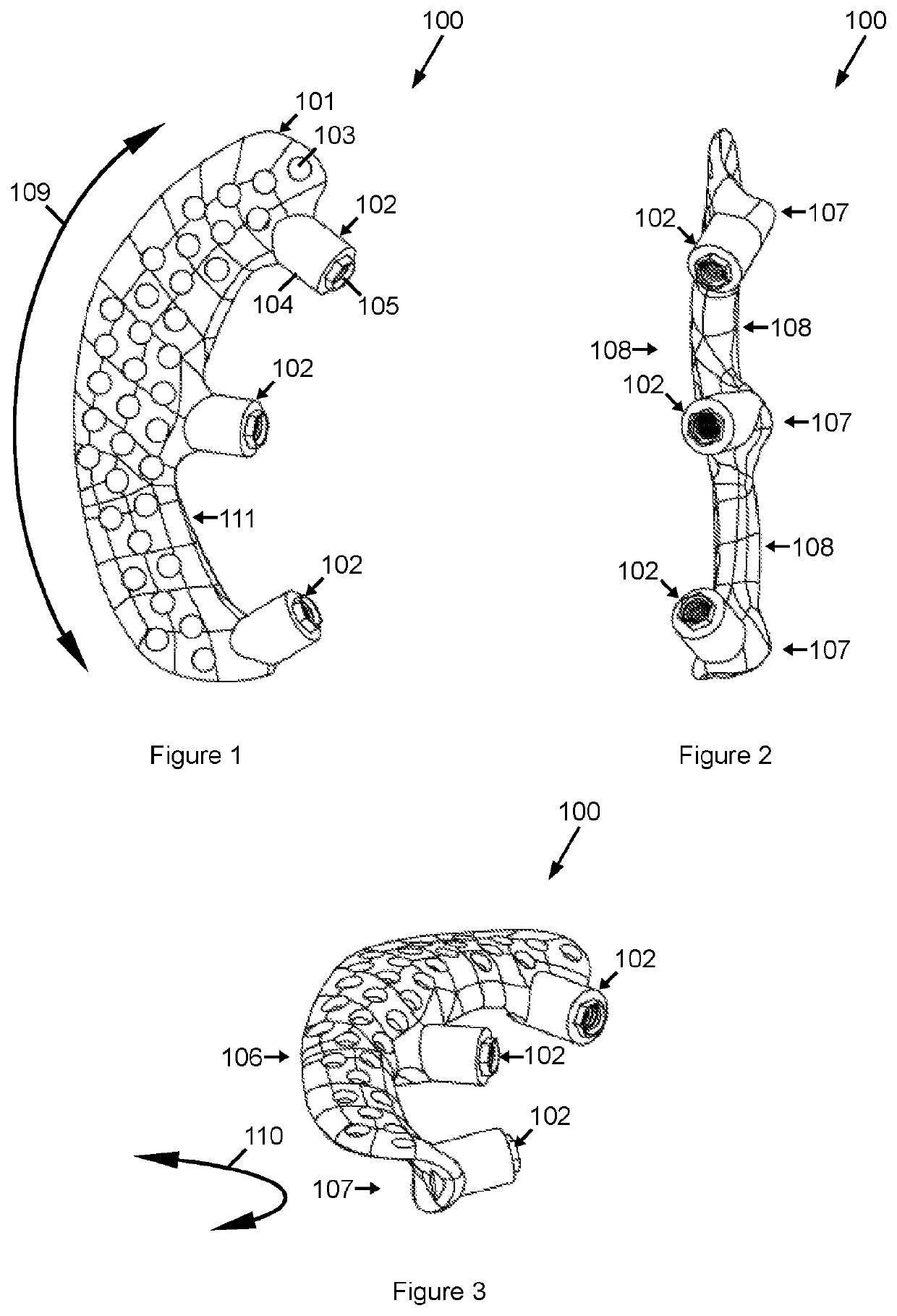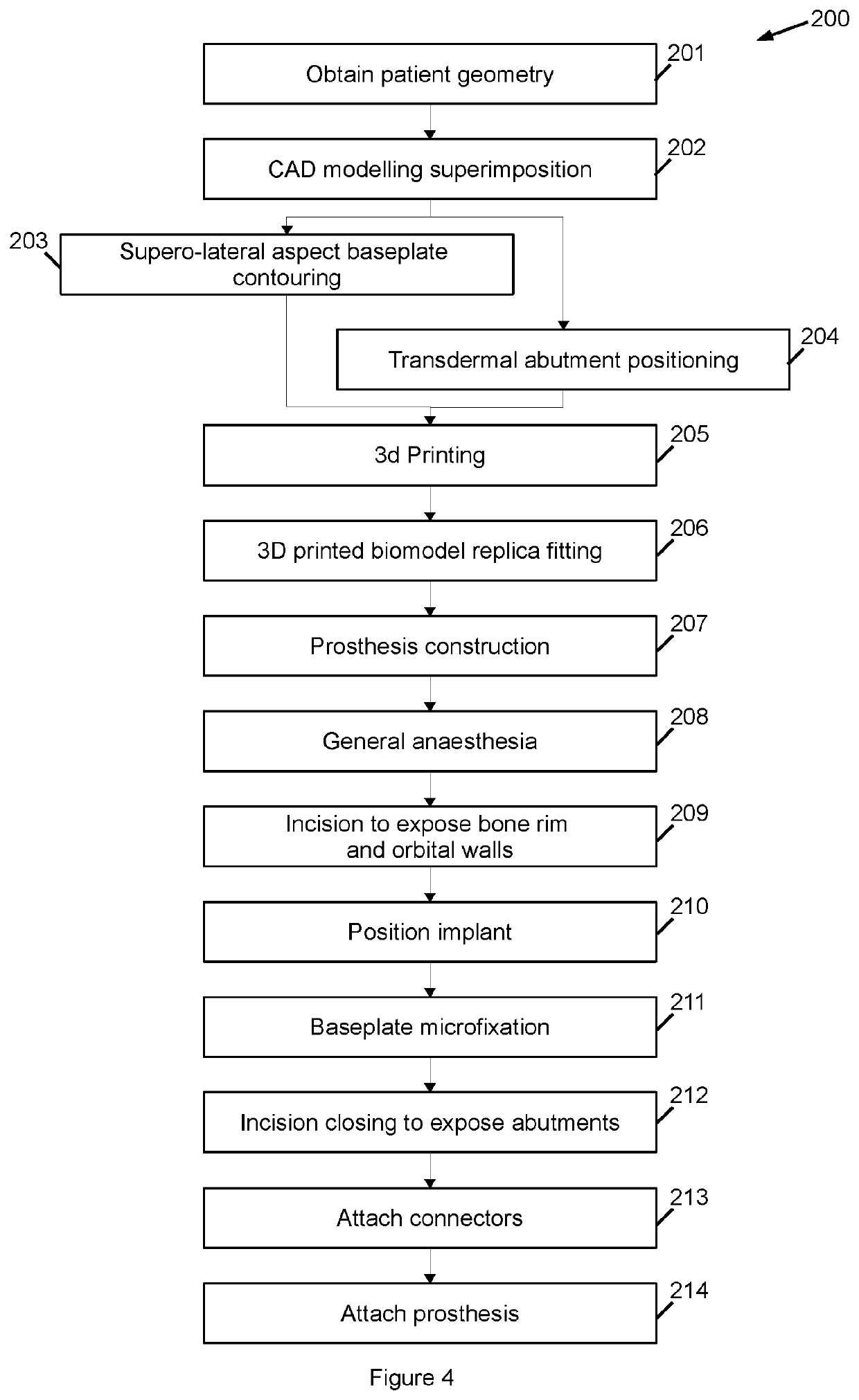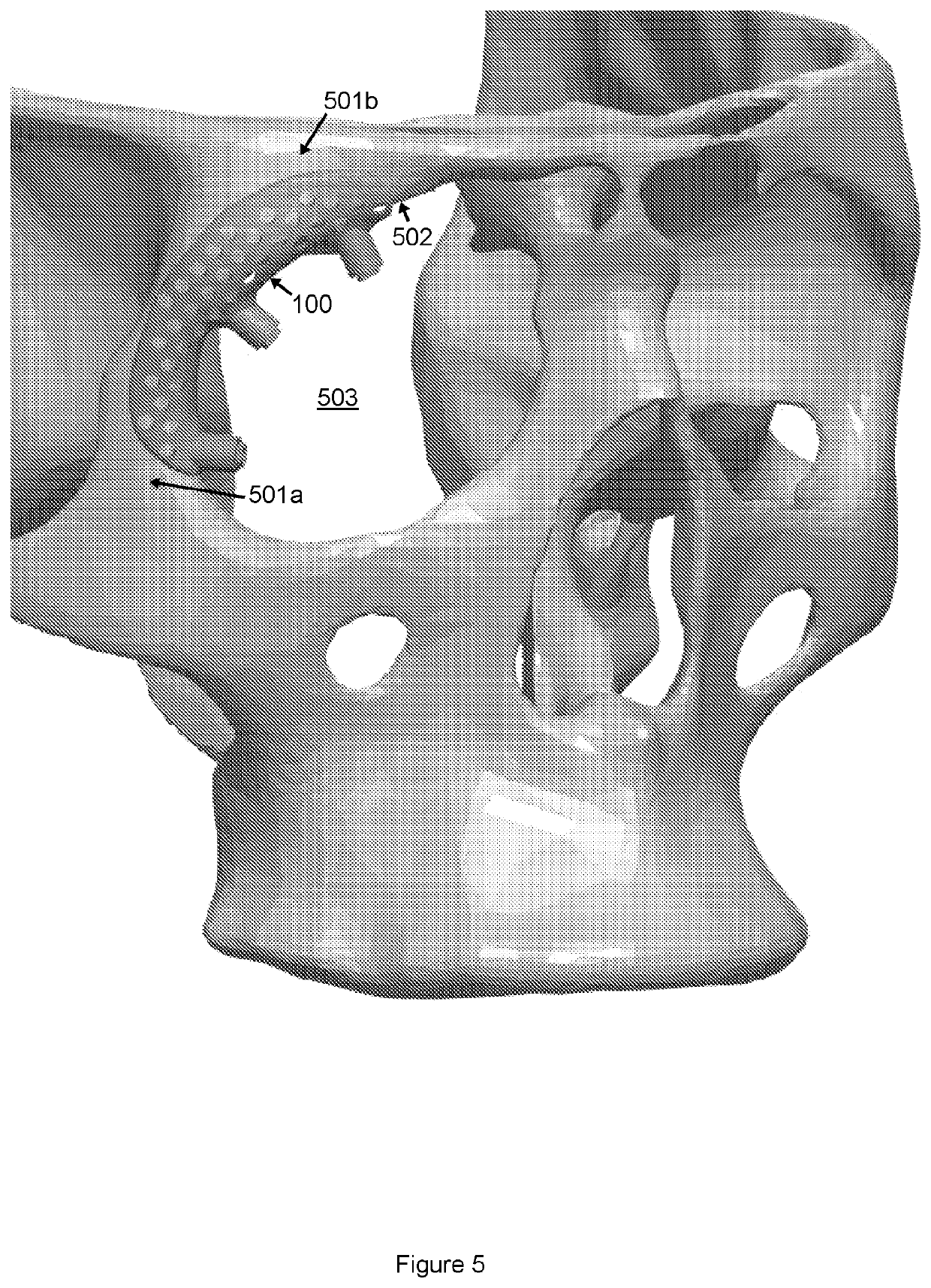Patents
Literature
30 results about "Frontal bone" patented technology
Efficacy Topic
Property
Owner
Technical Advancement
Application Domain
Technology Topic
Technology Field Word
Patent Country/Region
Patent Type
Patent Status
Application Year
Inventor
The frontal bone is a bone in the human skull. The bone consists of two portions. These are the vertically oriented squamous part, and the horizontally oriented orbital part, making up the bony part of the forehead, part of the bony orbital cavity holding the eye, and part of the bony part of the nose respectively. The name comes from the Latin word frons (meaning "forehead").
Football Helmet, Testing Method, and Testing Apparatus
InactiveUS20080256685A1Reduce decreaseImprove rigidityAcceleration measurementSport apparatusFrontal boneEngineering
In one embodiment, a method for testing a helmet comprising the steps of: placing a strike helmet on a first headform; placing a target helmet on a second headform, colliding the strike helmet against the target helmet; and measuring the acceleration of the second headform caused by the collision.In a second embodiment, an apparatus for testing a helmet comprising: a strike helmet placed on a first headform; a target helmet placed on a second headform; a motion device for moving the strike helmet to collide with the target helmet.In a third embodiment, a helmet comprising: a shell having a zone of a greater rigidity; having a zone of a lesser rigidity; wherein the zone of lesser rigidity covers a portion of the frontal bone of a wearer.
Owner:LAMPE JOHN KARL +1
Head mounted display
ActiveCN109752848AImprove comfortCasings with display/control unitsPortable casingsFrontal boneEngineering
A head mounted display including a main strap, a display part, an adjusting mechanism, a forehead pad, a plurality of holders and a lace is provided. The main strap surrounds a user's head. The display part is connected to the main strap and corresponds to the user's eyes. The adjusting mechanism is disposed on the main strap. The forehead pad corresponds to the user's frontal bone. The holders are disposed on the main strap and the forehead pad. A path of the lace in sequence passes through a retractable portion, a portion of the main strap near a first side of the display part, a first sideof the forehead pad, a fixed portion of the lace, a second side of the forehead pad and a portion of the main strap near a second side of the display part. The adjusting mechanism connects the retractable portion and is adapted to adjust a magnitude of tension of the lace at the retractable portion. The lace is fixed at the main strap and the forehead pad by the holders.
Owner:HTC CORP
High-intensity porous bone repair material and method for preparing same
The invention discloses a high-intensity porous bone repair material and a method for preparing the same. The method comprises the following: (1) a step of preparing a porous body, which is to use beta-tricalcium phosphate, bio-glass and a stable tetragonal zirconia power as a solid phase, add deionized water into the solid phase, add ammonium polyacrylate serving a dispersant, process the mixture by ball milling to prepare pulp, soak polyurethane foam completely into the pulp, take out the soaked foam, extrude excessive pulp out of the product so as to evenly coat the pulp on the pore walls of the porous body, dry the obtained product, place the dried product in a program control furnace or an electric resistance furnace, film the obtained product at a rising temperature and sinter the filmed product to form the porous body; (2) a step of soaking the obtained porous body in a water solution of NaOH, washing the product with deionized water in the atmosphere of ultra waves and drying the resulting product to obtain the high-intensity porous bone repair material. The high-intensity porous bone repair material of the invention has a high intensity and a high compressive strength, can be widely applied to repair skulls, frontal bones and the like and can also be used to reconstruct scaffolds of cell carriers in tissue engineering and repairing organs.
Owner:HEBEI UNIV OF TECH
Head mounted display
ActiveUS20190141847A1Comfortable user experienceComfort experienceCasings with display/control unitsCasings/cabinets/drawers detailsFrontal boneDisplay device
A head mounted display including a main strap, a display part, an adjusting mechanism, a forehead pad, a plurality of holders and a lace is provided. The main strap surrounds a user's head. The display part is connected to the main strap and corresponds to the user's eyes. The adjusting mechanism is disposed on the main strap. The forehead pad corresponds to the user's frontal bone. The holders are disposed on the main strap and the forehead pad. A path of the lace in sequence passes through a retractable portion, a portion of the main strap near a first side of the display part, a first side of the forehead pad, a fixed portion of the lace, a second side of the forehead pad and a portion of the main strap near a second side of the display part. The adjusting mechanism connects the retractable portion and is adapted to adjust a magnitude of tension of the lace at the retractable portion. The lace is fixed at the main strap and the forehead pad by the holders.
Owner:HTC CORP
Head rest for operating table
InactiveCN103040580AInflict physical damageEasy to take x-rayOperating tablesFrontal boneEngineering
The invention provides a head rest for an operating table. The head rest for the operating table comprises a base and a head fixture, wherein the base is connected with an operating table; and the head fixture is connected with the base. The head fixture comprises a first supporting part, a second supporting part, a first clamping part and a second clamping part, wherein the first supporting part is used for supporting the frontal bone of a patient's head; the second supporting part rotatably connected with the first supporting part is used for supporting the cheekbone of the patient's head; the first clamping part which is connected with the first supporting part and capable of rotating in the vertical direction is used for clamping the occipital bone of the patient's head; and the second clamping part arranged on the second supporting part is used for clamping the mandibular angle of the patient's head. The base is provided with a hollow projection area corresponding to the portion just below the patient's neck. Traction of the patient's neck or accurate displacement of the patient's head in horizontal and vertical directions can be realized by moving the head rest during surgery.
Owner:简月奎
A procedure and orbital implant for orbit anchored bone affixation of an eye prosthesis
ActiveUS20210106424A1Great when social interaction confidenceEye implantsSkullOphthalmologyFrontal bone
An orbital implant adapted for attachment to the very thin bone at the orbit rim (502), such as the zygomatic and frontal bone margin at the supero-lateral aspect (501) of the orbit (503), for the attachment of an eye prosthesis directly to distal ends of inwardly convergently orientated transdermal abutments. The orbital implant has a baseplate (100) having an orbit radius curvature and an orbit rim curvature and a plurality of microfixation apertures therethrough and the plurality of transdermal abutments are located at an inner edge of the baseplate (100).
Owner:TMJ ORTHOPAEDICS PTY LTD
Prior knowledge-based method for reconstructing artificial bone repair model of damaged part
ActiveCN107993277AContinuityHigh precisionImage enhancementImage analysisRight parietal boneSurgical operation
The invention discloses a prior knowledge-based method for reconstructing the artificial bone repair model of a damaged part. According to the method, firstly, a skeleton outer contour is extracted from a medical tomographic CT image, and a repairing template is introduced. Meanwhile, a contour line is re-sampled from the repairing template according to the thickness of a broken layer. Secondly, atemplate layer which is the most matched with a to-be-repaired layer is searched out of the repairing template by utilizing a characteristic value method, and the template layer and the to-be-repaired layer are aligned and transformed. Thirdly, the isomorphic points of the breakpoint of the to-be-repaired layer are obtained on the template layer through a common included angle method, and a fitting equation between isomorphic points is calculated. The values are reversely substituted into a fitting equation and then the coordinate of the interpolation point of the to-be-repaired layer can beobtained. Fourthly, an inner contour is generated according to the given thicknesses of the inner and outer layers of the bone. Finally, an artificial bone repair model is obtained by utilizing the VTK three-dimensional reconstruction. The method disclosed by the invention is applied to the actual implantation operative procedure of personalized artificial bones when cranial bones are broken too seriously to be directly repaired by the surgical operation after human frontal bones, parietal bones and other parts are heavily damaged.
Owner:HOHAI UNIV CHANGZHOU
Transplantation of cells into the nasal cavity and the subarachnoid cranial space
A method of transplanting cells into a subject is disclosed. The method comprises transplanting the cells into the paranasal sinus of the subject or the subarachnoid cavity situated between the frontal bone of skull and the olfactory bulb of the subject. Devices for paranasal sinus transplantation and subarachnoid cavity transplantation are also disclosed.
Owner:RAMOT AT TEL AVIV UNIV LTD
After-brain-surgery cranial nerve care device
ActiveCN110215362AClose contactProtective structureNursing bedsAmbulance serviceCranial nervesSphenoid bone
The invention discloses an after-brain-surgery cranial nerve care device which comprises an inner layer protection cushion, a middle layer air bag, an outer layer cooling shell and a bottom fixing ring. The inner layer protection cushion comprises a frontal bone cushion, a parietal bone cushion, an occipital bone cushion, a temporal bone cushion and a sphenoid bone cushion which are fixedly connected with one another through locking and fixing devices. The cushions, the middle layer air bag and the outer layer cooling shell form a three-layer protection structure. Through the after-brain-surgery cranial nerve care device, by simulating a human brain skeleton structure, by means of the split type structural design, the product makes closer contact with the head, and the after-brain-surgerycranial nerve care device is convenient to detach and assembly; through the middle layer air bag, the after-brain-surgery cranial nerve care device can massage and protect the head bone through compression or depressurization in use; the inner layer protection cushion is made of silica gel and can make soft contact with the head, and therefore pressure sores are prevented, the brain tissue structure is protected, and the safety protection capacity of the product is improved.
Owner:THE FIRST AFFILIATED HOSPITAL OF ZHENGZHOU UNIV
Tokay gecko brain three-dimensional positioning device and positioning method based on quadrate bone and maxillary dental top
The invention discloses a tokay gecko brain three-dimensional positioning device and a positioning method based on a quadrate bone and a maxillary dental top. The special concave structure of the quadrate bone in the auditory meatus of a tokay gecko is utilized by the positioning device, an ear rod end adaptive to the structure of the quadrate bone is designed, left-right leveling and centering effects in clamping the skull of the tokay gecko are ensured; and then the maxillary dental top of the tokay gecko is positioned and clamped by a maxillary support plate, so that the head of the tokay gecko is fully fixed. The positioning device comprises a left-right ear rod clamp, a tokay gecko adapter, a three-dimensional electrode moving device and the like. By the special structure design of the ear rod and the ear rod end and under the cooperation of the positioning to the maxillary dental top of the tokay gecko by the maxillary support plate, the parietal bone and the frontal bone of the tokay gecko no more rotate relatively when tokay gecko opens or closes the mouth and when the body of the tokay gecko moves drastically, so that the standard position of the brain tissue of the tokay gecko in an experiment is ensured; and the positioning device not only achieves firm and reliable positioning, but also has the characteristics of correct positioning and simple operation. The positioning method is also suitable for positioning and clamping other Gekkonidae animals.
Owner:NANJING UNIV OF AERONAUTICS & ASTRONAUTICS
Body structure mold for teaching
The invention belongs to the technical field of medical teaching, and particularly discloses a body structure mold for teaching. The body structure mold comprises a frontal bone, a parietal bone, an occipital bone, a temporal bone, a sphenoid bone, a nasal bone, an ethmoid bone, insertion holes and pins. The parietal bone is fixedly installed on the right side wall of the frontal bone. The occipital bone is fixedly installed on the right side of the bottom of the parietal bone. The temporal bone is fixedly installed at the bottom of the parietal bone. The bottom of the left side end of the parietal bone is fixedly connected with the right side end of the temporal bone. The sphenoid bone is fixedly installed on the boundary of the frontal bone, the parietal bone and the temporal bone. The ethmoid bone is fixedly installed at the bottom of the frontal bone and the sphenoid bone. An upper jaw bone is fixedly installed at the left side end of the ethmoid bone. The nasal bone is fixedly installed in the middle of the upper jaw bone. A lower nasal bone is fixedly installed at the bottom of the nasal bone. A lower jaw bone is fixedly installed at the bottom of the upper jaw bone. The leaching interestingness of students is improved, the good learning effect is realized, and meanwhile the comprehensive effect of applying and teaching can be better realized.
Owner:苗永丰
Headgear system with impact reduction feature
A headgear system with first and second helmets is provided. The first helmet has a frontal bone section that covers a frontal bone of a wearer of the first helmet, and a first magnet component that is located at the frontal bone section of the first helmet. The first magnet component extends at least 90 degrees around the central axis of the first helmet. The second helmet has a frontal bone section that covers a frontal bone of the wearer, and a second magnet component is located at the frontal bone section of the second helmet. The magnet forces of the first and second magnet components repel one another when the first and second magnet components are located proximate to one another to help reduce force onto the head from impact.
Owner:BIOSPORT ATHLETECHS LLC
Skull counter virtual scale calibration method
PendingCN111522057AImplementing a virtual calibration scaleRadiation measurementHuman bodyAnalogue computation
The invention provides a skull counter virtual scale calibration method which comprises the following steps: (1) establishing a Chinese reference human skull digital model according to a Chinese adultmale reference voxel model; (2) performing virtual representation on the detector, and establishing a detector model with a fine structure; (3) reconstructing a coordinate system of an irradiation scene, and uniformly distributing radionuclides on the inner and outer surfaces of the forebone and the overhead bone; (4) setting a particle transport process in Geant4, and establishing a Monte Carlosimulation process; and (5) simulating and calculating the detection efficiency, and carrying out virtual scale calibration. The skull counter virtual scale calibration method provided by the invention does not need a simulation skull model containing a radioactive source to carry out experimental measurement calibration, but directly calculates a calibration coefficient by utilizing a Monte Carlomethod through establishing a virtual experimental scene, so that the virtual calibration scale of the skull counter can be quickly and accurately realized.
Owner:CHINA INST FOR RADIATION PROTECTION
Head mounted display
ActiveUS10412845B2Comfort experienceAvoid problemsCasings with display/control unitsCasings/cabinets/drawers detailsFrontal boneDisplay device
A head mounted display including a main strap, a display part, an adjusting mechanism, a forehead pad, a plurality of holders and a lace is provided. The main strap surrounds a user's head. The display part is connected to the main strap and corresponds to the user's eyes. The adjusting mechanism is disposed on the main strap. The forehead pad corresponds to the user's frontal bone. The holders are disposed on the main strap and the forehead pad. A path of the lace in sequence passes through a retractable portion, a portion of the main strap near a first side of the display part, a first side of the forehead pad, a fixed portion of the lace, a second side of the forehead pad and a portion of the main strap near a second side of the display part. The adjusting mechanism connects the retractable portion and is adapted to adjust a magnitude of tension of the lace at the retractable portion. The lace is fixed at the main strap and the forehead pad by the holders.
Owner:HTC CORP
Traditional Chinese medicine composition for treatment of bone cancer and preparation method of traditional Chinese medicine composition
PendingCN109078123AMildEasy to operateAnthropod material medical ingredientsAntineoplastic agentsFritillaria cirrhosaBletilla striata
The invention discloses a traditional Chinese medicine composition for treatment of bone cancer and a preparation method of the traditional Chinese medicine composition. The traditional Chinese medicine composition comprises astragalus membranaceus, eucommia ulmoides carbon, semen cuscutae, gastrodia elata, radix pseudostellariae, psychropotes longicauda, radix paeoniae rubra, radix paeoniae alba,bletilla striata, dendrobe, radix ophiopogonis, radix adenophorae, peach kernels, rhizoma anemarrhenae, oldenlandia diffusa, parasitic loranthus, radix achyranthis bidentatae, rhizoma corydalis, chaenomeles speciosa, gecko, earthworms, silkworm larva, fructus trichosanthis, fritillaria cirrhosa, rhizoma polygonati, cortex moutan, cornu cervi degelatinatum, caulis spatholobi, honeysuckle stem, spina data seeds, semen boitae, liquorice, tortoise plastron and carapax trionycis. The preparation method includes: adding fried tortoise plastron and carapax trionycis to remaining ingredients after soaking; performing soaking continuously prior to decocting and filtering to obtain first drugs and residues; adding water to the residues, performing decoction once again and filtering to obtain seconddrugs; mixing the first drugs with the second drugs to obtain the traditional Chinese medicine composition. The traditional Chinese medicine composition has certain curative effect on vertebra, thoracic vertebra, ribs, lumbar vertebra, cervical vertebra, sacrum, frontal bone, shoulder blades and the like in truncal bones and is safe and reliable.
Owner:陈海林
Transplantation of cells into the nasal cavity and the subarachnoid cranial space
A method of transplanting cells into a subject is disclosed. The method comprises transplanting the cells into the paranasal sinus of the subject or the subarachnoid cavity situated between the frontal bone of skull and the olfactory bulb of the subject. Devices for paranasal sinus transplantation and subarachnoid cavity transplantation are also disclosed.
Owner:RAMOT AT TEL AVIV UNIV LTD
Head thin-layer CT scanning data based frontal bone angle measurement method
InactiveCN106251372AEasy to operateThe result is accurateImage enhancementMedical data miningHuman bodyImaging data
The invention discloses a head thin-layer CT scanning data based frontal bone angle measurement method. According to the invention, head thin-layer CT scanning DICOM image data of a frontal suture premature closure patient is imported by using MINICS software, and a reconstructed three-dimensional image of the head of patient skull is acquired according to the difference of human body bone CT density values. A plane required to be measured is acquired by using methods such as region growing and orthogonal cutting in the MIMICS software, and a frontal bone angle is measured accurately. The method disclosed by the invention is simple in operation and accurate in result, so that a reliable method for measuring the frontal bone angle of frontal suture premature closure child patients is provided, an error caused by human factors such as operations of a doctor in head CT scanning can be significantly reduced, and the method has high accuracy in estimating both the disease severity and surgery effects of the child patients. The frontal bone angle measurement method is simple and convenient to operate and low in time consumption, and does not need to be equipped with professionals, thereby being widely applicable to front-line clinical work.
Owner:NANJING CHILDRENS HOSPITAL AFFILIATED TO NANJING MEDICAL UNIV
Head rest for operating table
InactiveCN103040580BInflict physical damageEasy to take x-rayOperating tablesFrontal boneEngineering
The invention provides a head rest for an operating table. The head rest for the operating table comprises a base and a head fixture, wherein the base is connected with an operating table; and the head fixture is connected with the base. The head fixture comprises a first supporting part, a second supporting part, a first clamping part and a second clamping part, wherein the first supporting part is used for supporting the frontal bone of a patient's head; the second supporting part rotatably connected with the first supporting part is used for supporting the cheekbone of the patient's head; the first clamping part which is connected with the first supporting part and capable of rotating in the vertical direction is used for clamping the occipital bone of the patient's head; and the second clamping part arranged on the second supporting part is used for clamping the mandibular angle of the patient's head. The base is provided with a hollow projection area corresponding to the portion just below the patient's neck. Traction of the patient's neck or accurate displacement of the patient's head in horizontal and vertical directions can be realized by moving the head rest during surgery.
Owner:简月奎
Bioreconstructed material for treating skeletal defects
The invention discloses a bioreconstructed material for treating skeletal defects and belongs to the field of medical biomaterials. The invention mainly aims at solving the problem of restoring original structures of skeletons after skull, frontal plan bone, nasal bone and phalanx are damaged in the current clinic. By establishing a balance point between biological reconstruction and material degradation-absorption speed, postoperative collapse is prevented; in addition, the aim of skeleton reconstruction is realized by providing an osteoprogenitor cell growth matrix and a crawling channel fora receptor. A material prepared by the method is prepared by the following steps: carrying out structural reconstruction on hydrophobic polysaccharide and collagen, remodulating mineralized calcium phosphorus ions by collagen, forming hydroxyapatite composite, and finally cross-linking, dehydrating and molding. The bioreconstructed material is a stable, hard and porous material with good biocompatibility. The bioreconstructed material is beneficial to reconstructing the skeleton of the damaged skull, frontal plan bone, nasal bone and phalanx.
Owner:孔祥圣
Brain nerve maintenance device and control method after brain surgery
The invention relates to the field of medical auxiliary equipment, in particular to a brain nerve maintenance device and control method after brain surgery. The brain nerve maintenance device after brain surgery of the present invention comprises: a shell, the shell is hemispherical, and the occipital bone support plate, the parietal bone support plate, the frontal bone support plate, the sphenoid bone support plate and the temporal bone support plate are all arranged on the In the shell; the liquid bag is set in the shell and located in the gap, the liquid bag is connected with the liquid circulation pipeline, and the liquid circulation line is connected with a heat exchanger in series; the occipital bone support plate, the parietal bone support plate, the frontal bone support plate, and the sphenoid bone support plate And at least one of the temporal bone support plate is provided with a pressure sensor; and at least one of the occipital bone support plate, the parietal bone support plate, the frontal bone support plate, the sphenoid bone support plate and the temporal bone support plate is provided with a temperature sensor; the controller, and the temperature sensor , the pressure sensor and the flow valve communication connection of the heat exchanger. Through the above setting method, the liquid sac can exchange heat with the head to realize intracranial temperature regulation.
Owner:HENAN PROVINCE HOSPITAL OF TCM THE SECOND AFFILIATED HOSPITAL OF HENAN UNIV OF TCM
Sizing pillow for infant
The invention discloses a sizing pillow for an infant. The sizing pillow comprises a pillow body and a filler, wherein the pillow body comprises surface-layer cloth, bottom-layer cloth and a middle layer, the surface-layer cloth is positioned above the bottom-layer cloth, the surface-layer cloth and the bottom-layer cloth are combined to form a first cavity, the middle layer is positioned at the middle-lower part of the first cavity, a pit adaptive to the head of the infant is arranged at the position, at the middle layer, of the pillow body, the upper surface of the middle layer attaches to and is fixed to the surface-layer cloth, the lower surface of the middle layer attaches to and is fixed to the bottom-layer cloth, the middle layer, the surface-layer cloth and the bottom-layer cloth are combined to form a second cavity, a plurality of feeding holes are arranged at the edge of the inside of the middle layer, the second cavity communicates with the first cavity through the feeding holes, one part of the filler is positioned in the first cavity, the other part of the filler is positioned in the second cavity, and the filler is ball-shaped kapok fibers. For the sizing pillow for the infant, the phenomenon that the kapok fibers form blocks which generate displacement can be avoided, while the sizing of the back of the brain is realized, the growth and development demands for face shaping are also satisfied, and thus the deformation of two sides of the frontal bone of the face is prevented.
Owner:杨一伟
Head operation positioning equipment for neurosurgery department
PendingCN114272067APrevents slight deflection displacementAchieve deflectionOperating tablesDrive wheelMedicine
The invention discloses neurosurgery head operation positioning equipment which comprises a supporting base, driving wheels are symmetrically and rotationally arranged at the four corners of the lower end face of the supporting base, and the supporting base is driven by the driving wheels to run on the ground; the bearing base plate is transversely arranged on the upper end face of the supporting base through a lifting seat; the bearing cushion layer is embedded in the middle of the upper end face of the bearing base plate, and the bearing cushion layer is used for bearing the afterbrain of the head of the patient; the diffusion and forehead protection assemblies are symmetrically arranged on the upper end face of the bearing base plate and located on the left side and the right side of the bearing cushion layer, and the diffusion and forehead protection assemblies conduct two-side positioning on the frontal bone of the patient and preferentially conduct external diffusion on the cortex of the frontal bone before positioning; and the jaw locking and neck lifting assembly is arranged on the middle side of the interior of the bearing base plate, and one end of the jaw locking and neck lifting assembly is connected with the diffusion and forehead protection assembly.
Owner:THE FIRST AFFILIATED HOSPITAL OF HENAN UNIV
Headnet for first responders
A headnet (20) for first responders has a net lattice (22) formed to cover the first responder's head (100) from the first responder's frontal bone area (102) to the occipital bone area (104) in support of protective turnout gear for respiratory protection (44) with a first set of straps (24a, 24b) extending forward from a level approximate to the intersection of the first responder's parietal bone (108) and occipital bone (104) and a second set of straps (28a, 28b) extending forward from a level approximate to the lower portion of the first responder's occipital bone (104). The headnet (22) has an opening (36) formed within the headnet (22) that is vertically centered with the back of the first responder and horizontally between the two straps (24, 28), having sufficient area in either anextended state or non-extended state to pull through the first responder's hair (46).
Owner:SCOTT TECH INC
High-intensity porous bone repair material and method for preparing same
The invention discloses a high-intensity porous bone repair material and a method for preparing the same. The method comprises the following: (1) a step of preparing a porous body, which is to use beta-tricalcium phosphate, bio-glass and a stable tetragonal zirconia power as a solid phase, add deionized water into the solid phase, add ammonium polyacrylate serving a dispersant, process the mixture by ball milling to prepare pulp, soak polyurethane foam completely into the pulp, take out the soaked foam, extrude excessive pulp out of the product so as to evenly coat the pulp on the pore walls of the porous body, dry the obtained product, place the dried product in a program control furnace or an electric resistance furnace, film the obtained product at a rising temperature and sinter the filmed product to form the porous body; (2) a step of soaking the obtained porous body in a water solution of NaOH, washing the product with deionized water in the atmosphere of ultra waves and drying the resulting product to obtain the high-intensity porous bone repair material. The high-intensity porous bone repair material of the invention has a high intensity and a high compressive strength, can be widely applied to repair skulls, frontal bones and the like and can also be used to reconstruct scaffolds of cell carriers in tissue engineering and repairing organs.
Owner:HEBEI UNIV OF TECH
Dental implanting object containing calcium phosphate cementing agent
InactiveCN1265770CIncrease contactMechanical stabilityDental implantsBone implantCalcium biphosphateFrontal bone
A dental implant able to be installed in a predrilled hole in frontal bone for holding the reparing part of tooth has a basically cylindrical hollow base part, which has a wall to limit a space and multiple through holes on said wall, the solidified calcium phosphate as cementing agent filled in said holes and part of the space limited by wall, and a receptor integrated with one end of base part for recepting said repairing part of tooth.
Owner:NAT CHENG KUNG UNIV
A device for maintaining brain nerves after brain surgery
ActiveCN110215362BSpeed up healingAvoid pressure soresNursing bedsAmbulance serviceHuman bodyCranial nerves
The invention discloses a brain nerve maintenance device after brain surgery, which comprises an inner protective pad, a middle air bag, an outer cooling shell and a bottom fixing ring. The inner protective pad includes a frontal bone pad, a parietal bone pad, an occipital bone pad, and a temporal bone pad. Pad and sphenoid bone pad, the frontal bone pad, parietal bone pad, occipital bone pad, temporal bone pad and sphenoid bone pad are fixedly connected by a locking fixture and form a three-layer protective structure with the middle airbag and the external cooling shell. The brain nerve maintenance device after brain surgery, by simulating the bone structure of the human brain, adopts a block structure design to make the contact between the product and the head closer, and it is easy to disassemble and assemble. Through the setting of the middle airbag, it can be used Massage and protect the skull through pressurization or decompression, and the inner protective pad is made of silicone, which can be in gentle contact with the head, thereby preventing pressure sores, protecting the brain tissue structure, and improving the safety protection ability of the product.
Owner:THE FIRST AFFILIATED HOSPITAL OF ZHENGZHOU UNIV
Front traction device for correcting anterior crossbite
The invention relates to a front traction device for correcting anterior crossbite. The front traction device comprises a support, a graduated holder, a traction member, an adjusting device and a digitizing module. The graduated holder is arranged at the bottom of the support, the traction member is clamped to the support through a slot and can slide relative to the support, the adjusting device is mounted at the slot of the traction member in a sleeving mode, a pressure sensor connected with the digitizing module is arranged in the graduated holder, the digitizing module is mounted on the support through a strap, and two ends of the strap are wound around the frontal bone of the human body by one circle to be fastened through a connecting device. The front traction device has the advantages that the traction angle can be rapidly and conveniently adjusted through the adjusting device, traction strength and traction time can be displayed in real time, and immeasurable injuries caused byabnormity of the traction strength and the traction time, namely the wearing time, to patients are avoided; the front traction device is humanized through the application of the digitizing module, and the correction accuracy and the treatment effect are improved.
Owner:QINGDAO STOMATOLOGICAL HOSPITAL
Procedure and orbital implant for orbit anchored bone affixation of an eye prosthesis
ActiveUS11491012B2Great when social interaction confidenceEye implantsJoint implantsOphthalmologyFrontal bone
An orbital implant adapted for attachment to the very thin bone at the orbit rim (502), such as the zygomatic and frontal bone margin at the supero-lateral aspect (501) of the orbit (503), for the attachment of an eye prosthesis directly to distal ends of inwardly convergently orientated transdermal abutments. The orbital implant has a baseplate (100) having an orbit radius curvature and an orbit rim curvature and a plurality of microfixation apertures therethrough and the plurality of transdermal abutments are located at an inner edge of the baseplate (100).
Owner:TMJ ORTHOPAEDICS PTY LTD
Artificial bone repair model reconstruction method based on prior knowledge
ActiveCN107993277BContinuityHigh precisionImage enhancementImage analysisPersonalizationSurgical operation
Owner:HOHAI UNIV CHANGZHOU
Tokay gecko brain three-dimensional positioning device and positioning method based on quadrate bone and maxillary dental top
The invention discloses a tokay gecko brain three-dimensional positioning device and a positioning method based on a quadrate bone and a maxillary dental top. The special concave structure of the quadrate bone in the auditory meatus of a tokay gecko is utilized by the positioning device, an ear rod end adaptive to the structure of the quadrate bone is designed, left-right leveling and centering effects in clamping the skull of the tokay gecko are ensured; and then the maxillary dental top of the tokay gecko is positioned and clamped by a maxillary support plate, so that the head of the tokay gecko is fully fixed. The positioning device comprises a left-right ear rod clamp, a tokay gecko adapter, a three-dimensional electrode moving device and the like. By the special structure design of the ear rod and the ear rod end and under the cooperation of the positioning to the maxillary dental top of the tokay gecko by the maxillary support plate, the parietal bone and the frontal bone of the tokay gecko no more rotate relatively when tokay gecko opens or closes the mouth and when the body of the tokay gecko moves drastically, so that the standard position of the brain tissue of the tokay gecko in an experiment is ensured; and the positioning device not only achieves firm and reliable positioning, but also has the characteristics of correct positioning and simple operation. The positioning method is also suitable for positioning and clamping other Gekkonidae animals.
Owner:NANJING UNIV OF AERONAUTICS & ASTRONAUTICS
Features
- R&D
- Intellectual Property
- Life Sciences
- Materials
- Tech Scout
Why Patsnap Eureka
- Unparalleled Data Quality
- Higher Quality Content
- 60% Fewer Hallucinations
Social media
Patsnap Eureka Blog
Learn More Browse by: Latest US Patents, China's latest patents, Technical Efficacy Thesaurus, Application Domain, Technology Topic, Popular Technical Reports.
© 2025 PatSnap. All rights reserved.Legal|Privacy policy|Modern Slavery Act Transparency Statement|Sitemap|About US| Contact US: help@patsnap.com
